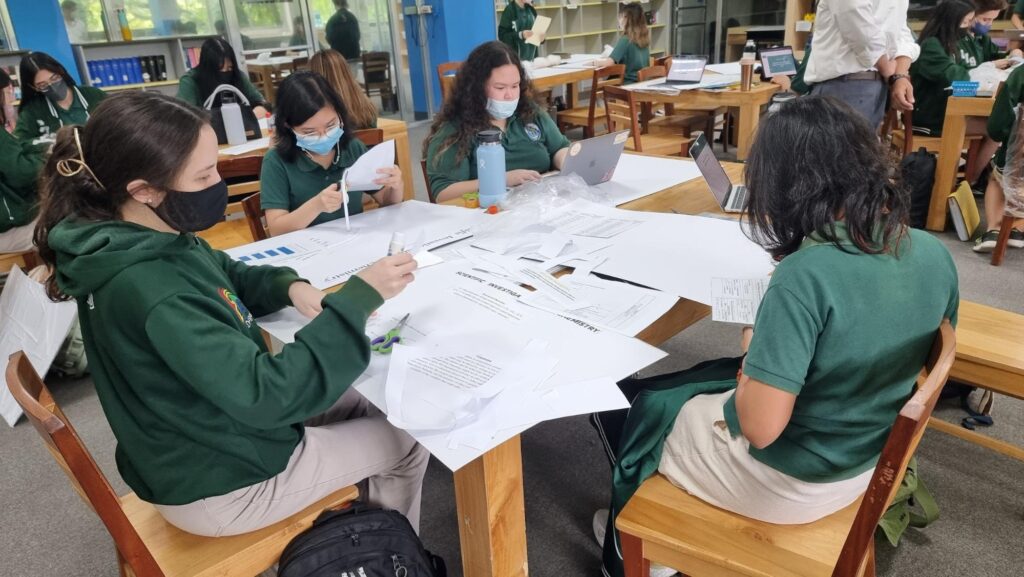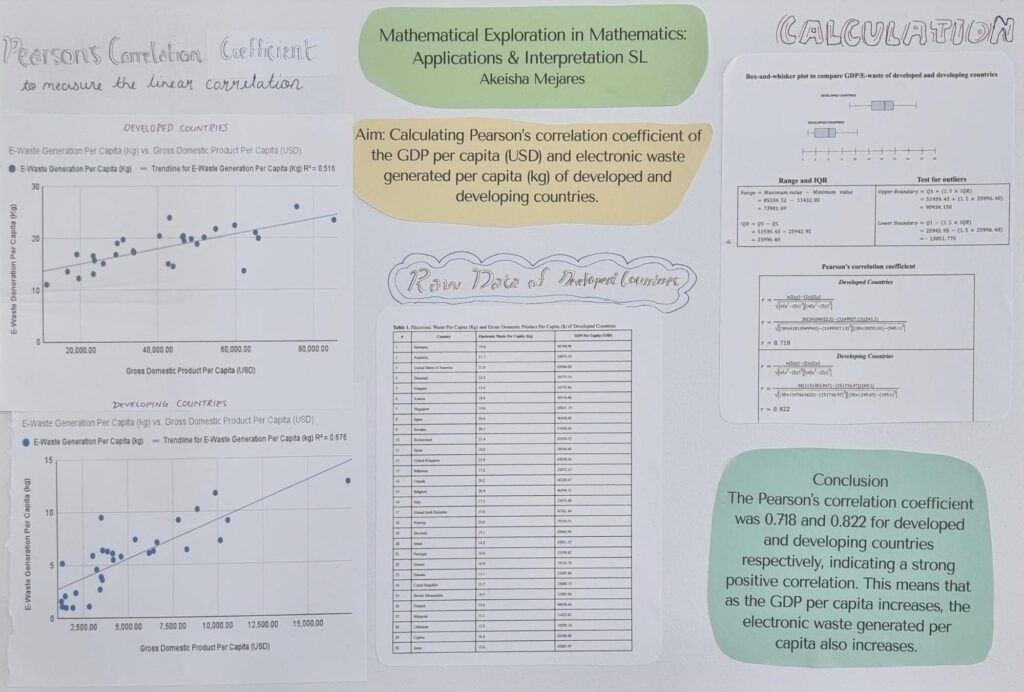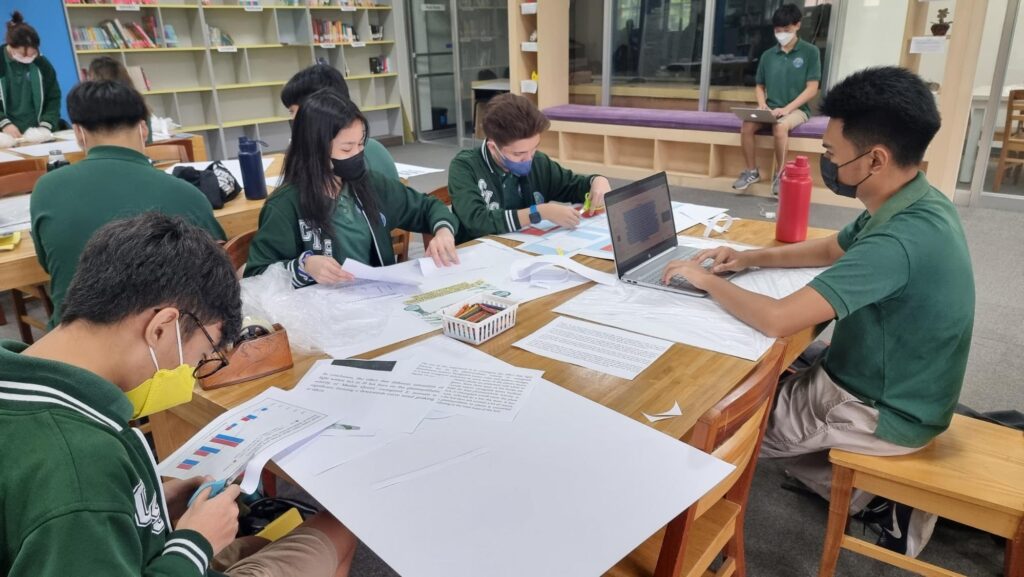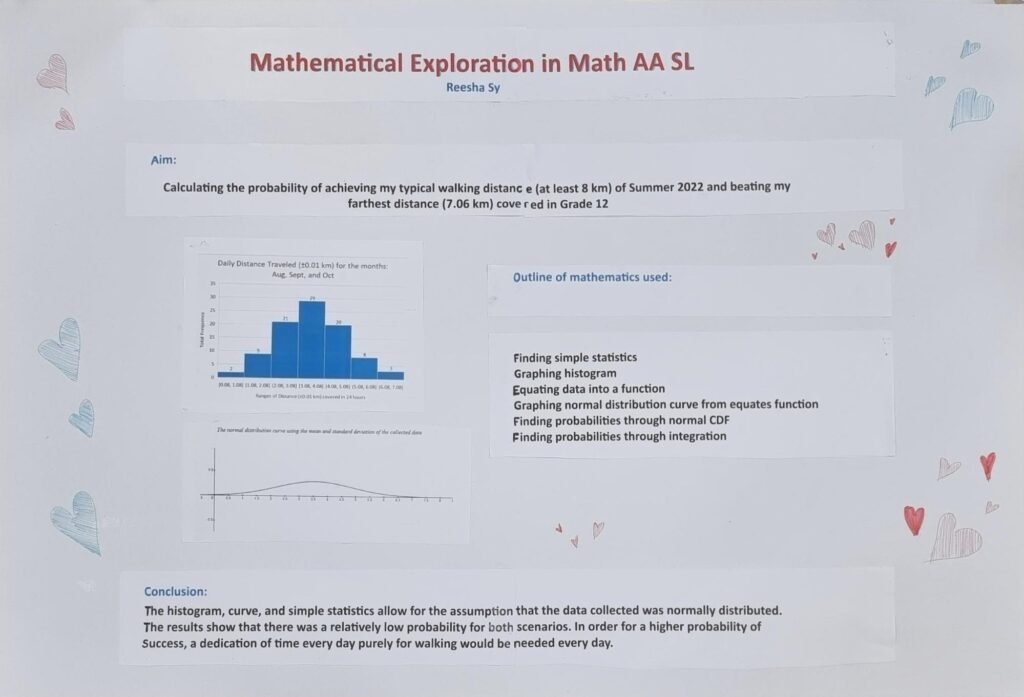
Principal’s Corner
by Mr. Andrew Powell, Ey-12 Principal
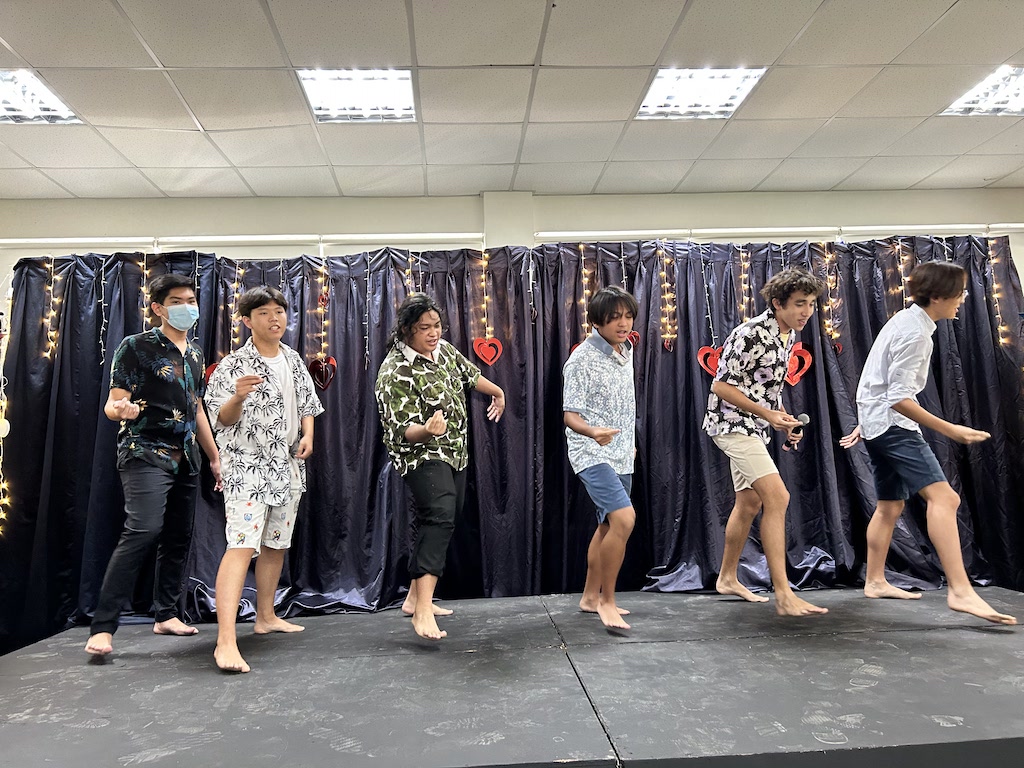 We are blessed with an outstanding group of Visual and Performing Arts teachers at CIS. While the work of the department has featured prominently throughout the year, this week they worked with their students to showcase some of their ongoing projects. This included an Art Exhibit, interactive posters with QR codes of student musical compositions, student musical performances during lunch and a Grade 10 Musical Revue, presented by the Grade 10 drama class. A special performance was also held for parents and PTA members, which was particularly well attended.
We are blessed with an outstanding group of Visual and Performing Arts teachers at CIS. While the work of the department has featured prominently throughout the year, this week they worked with their students to showcase some of their ongoing projects. This included an Art Exhibit, interactive posters with QR codes of student musical compositions, student musical performances during lunch and a Grade 10 Musical Revue, presented by the Grade 10 drama class. A special performance was also held for parents and PTA members, which was particularly well attended.
At CIS we intentionally strive to inspire and one of the qualities that we look to model and value is creativity. While often referred to in the context of the arts, creativity is defined by the ability to produce or use original or unusual ideas. Throughout the year there have certainly been a great deal of creative ideas, approaches, and solutions at play.
Prospective families are increasingly looking to CIS for its creative culture. Our Virtual Arts programmes are in demand by students who are looking to nurture their creative talents. This is not only providing our students with opportunities to learn and experiment with new techniques and skills but as I have mentioned previously, it is resulting in their heightened visibility to prospective universities.
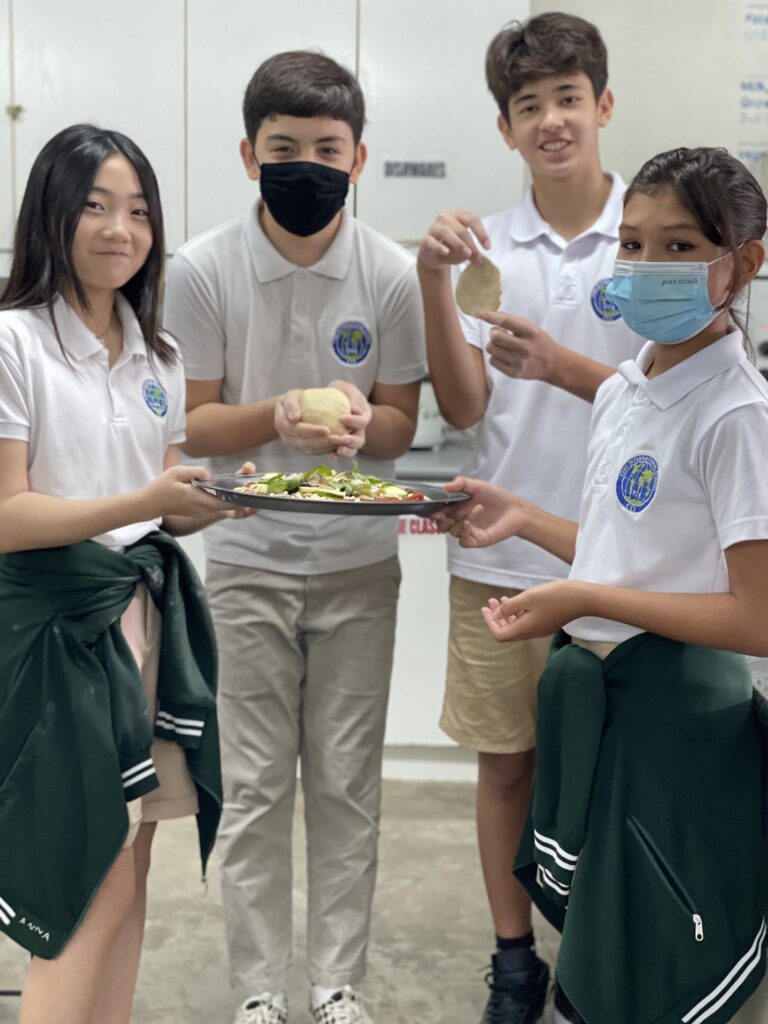
The nature of our program encourages student agency and consequently is open to creative possibilities. While our faculty work hard to inspire, we have such an incredible group of students that they also serve to motivate our teachers. They provide them with a vivid image of future possibilities which leads to a dynamic approach to lesson planning and unit development, enhancing the overall school experience.
One important aspect of the way our visual and performing arts programmes are delivered, is the commitment that our teachers have to making this learning joyful. As a key principle of the school’s Guiding Statements, this provides a mode of learning in which students are given the opportunity to experience happiness while nurturing curiosity and interacting with meaningful content through a supportive community of peers and teachers.
Upcoming events of note
- April 27-May 19: IBDP Exams
- May 19: School holiday
- June 2: Graduation Day (*Note adjusted date from previous calendar)
- June 8: Last day of school & Moving up ceremonies (half day)
Please refer to the CIS Event Calendar for the complete calendar of school events.
Elementary: Physical and Health Education
by Coach Jay Hermias, Elem PHE Teacher
In a recent physical and health education class, elementary students demonstrated impressive skills in a variety of games and activities. From traditional favorites like slide tag, soccer, basketball, dodgeball and kickball to newer games such as improvised capture the flag and ultimate frisbee, these young athletes showed determination, teamwork, and sportsmanship in our game tournament.
In addition to the physical benefits of these activities, students also learned important lessons about health and wellness. They were taught the importance of staying hydrated, warming up before exercise, and taking breaks when needed to prevent injury.
The students also showcased IB Learner Profiles such as being reflective, risk-takers, communicators, and thinkers, as they participated in a variety of physical activities and challenges. They demonstrated their commitment to teamwork, their ability to persevere through difficult challenges, and their willingness to take calculated risks.
Here are some highlights in PHE for the past few weeks:
Working out to improve strength and endurance
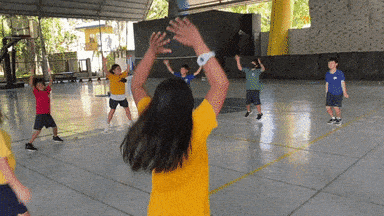
Practicing their attacking and defending strategies in soccer
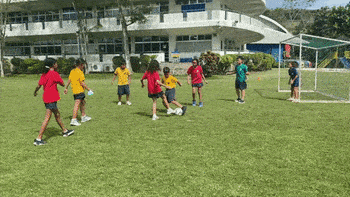
Having fun participating capture the flag
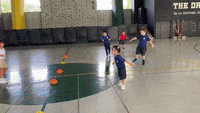
Learning the rules in playing basketball
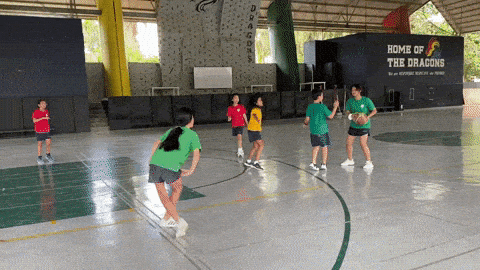
Improving balance and control
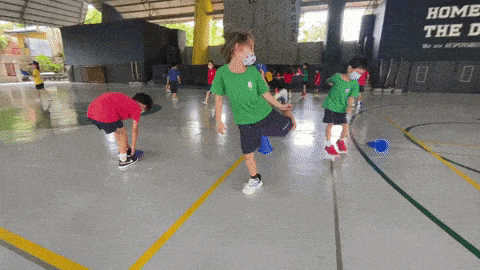
Students showing off their kicking skills in soccer!
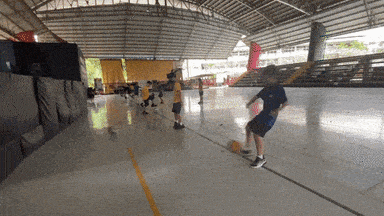
Builders Bulldozers
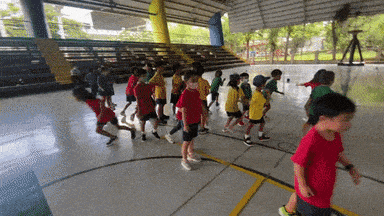
Attacking strategies in touch rugby
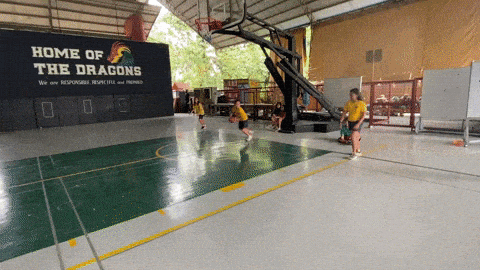
Teamwork in human tug of war
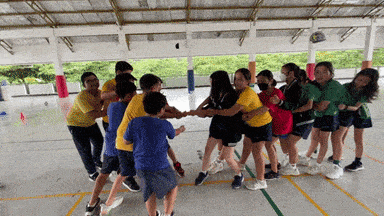
Students learning some strategies in soccer

Students learning how to pass and catch the ball
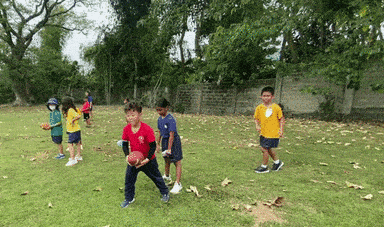
Playing dodging, coordination and agility games
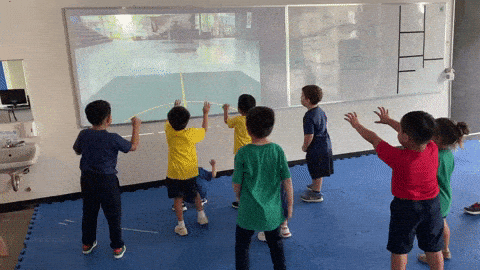
Improving their arms, core strength, and coordination
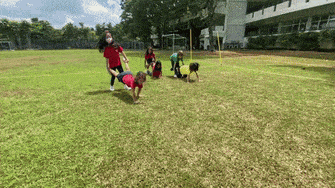
Students practicing their dribbling skills in basketball
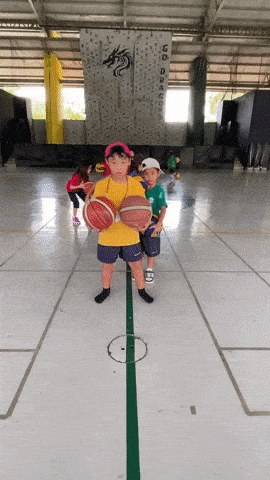
ARTS WEEK!!
by Arts Week Committee
The Annual CIS Arts Week & Student Exhibition ran from Monday, May 8 to May 12, 2023. The week included music and performances and a visual arts exhibition. Here are some photos of the week.
Art Exhibition
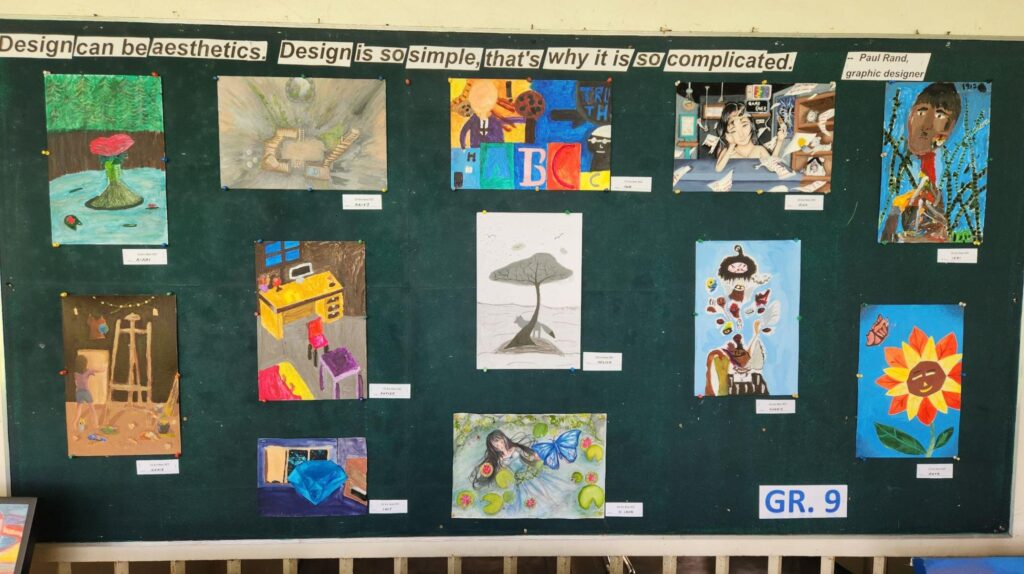
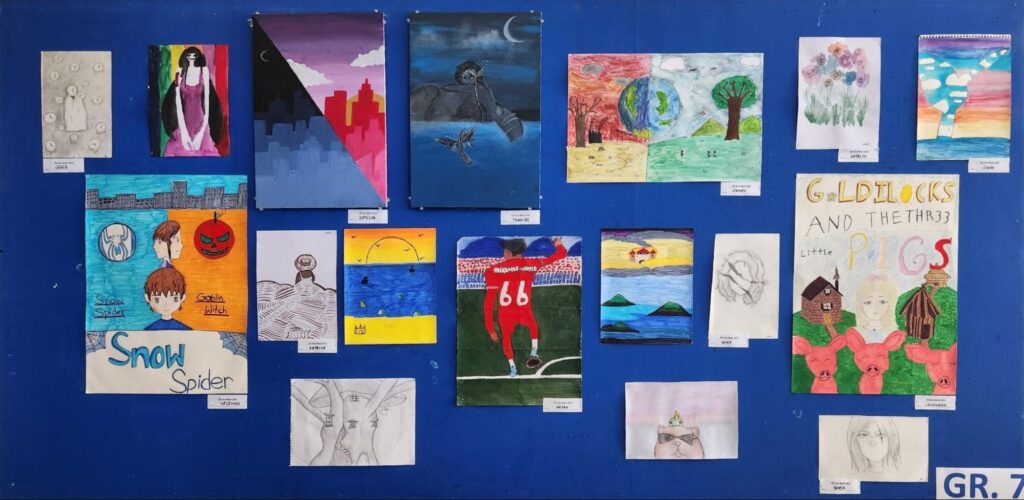
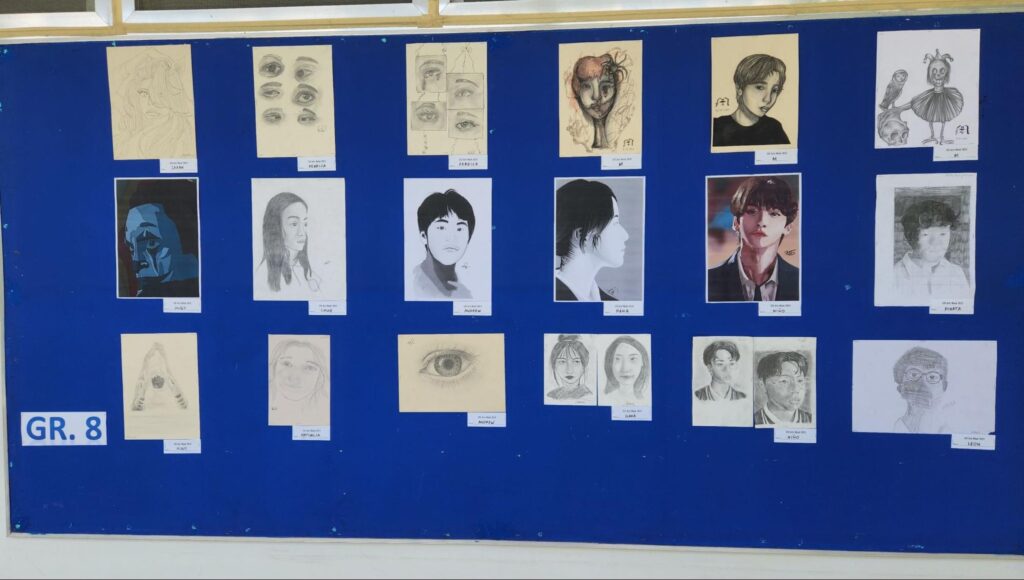
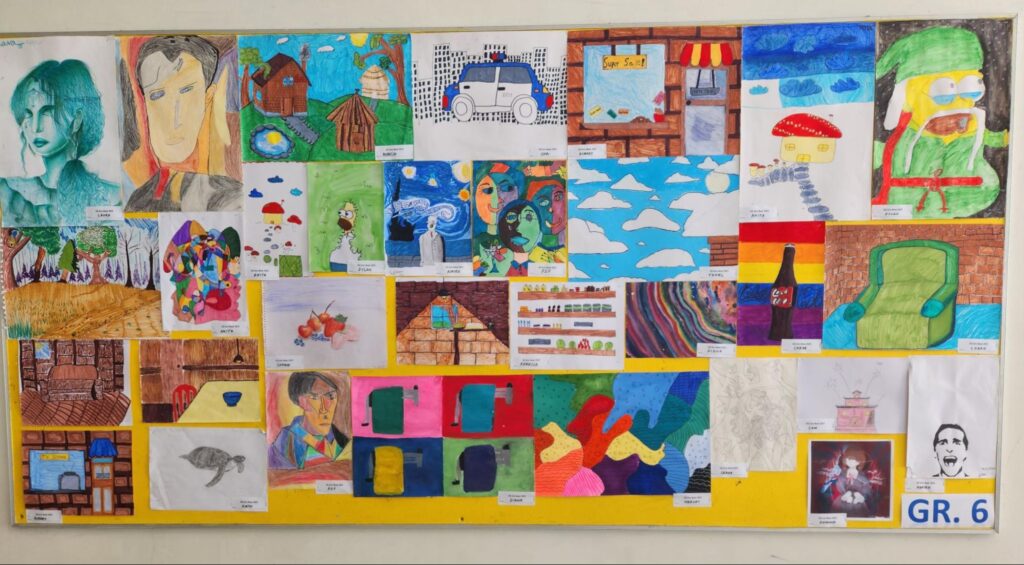
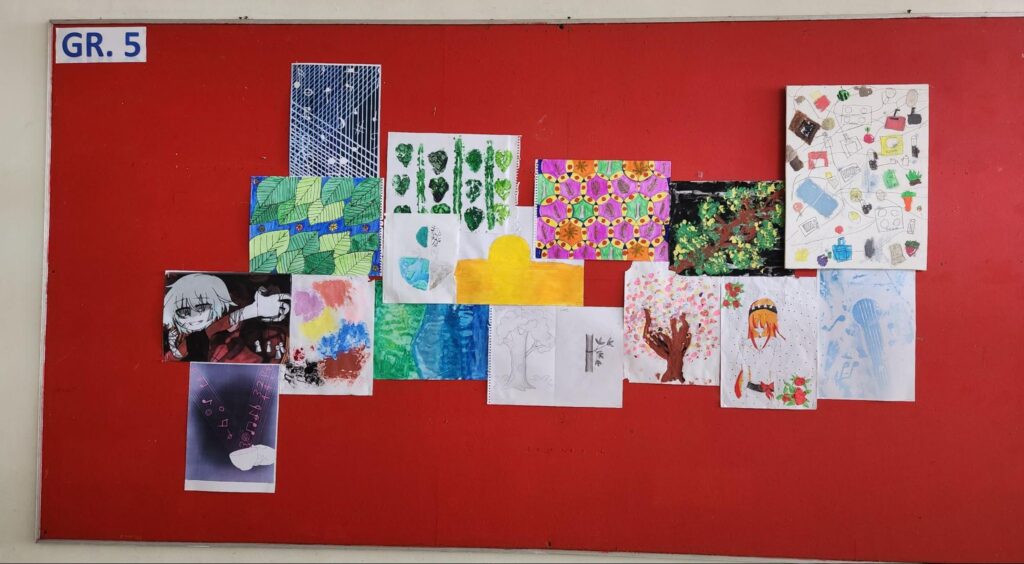
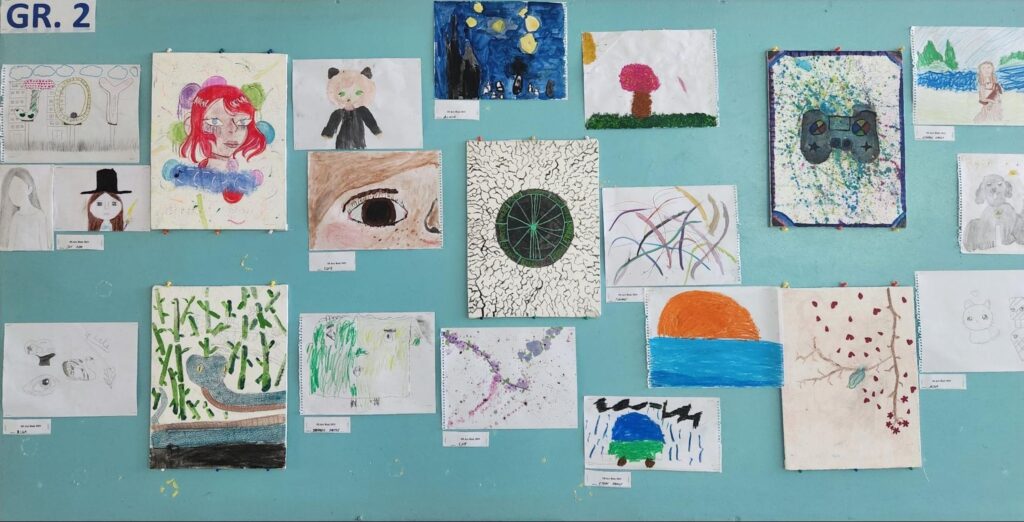
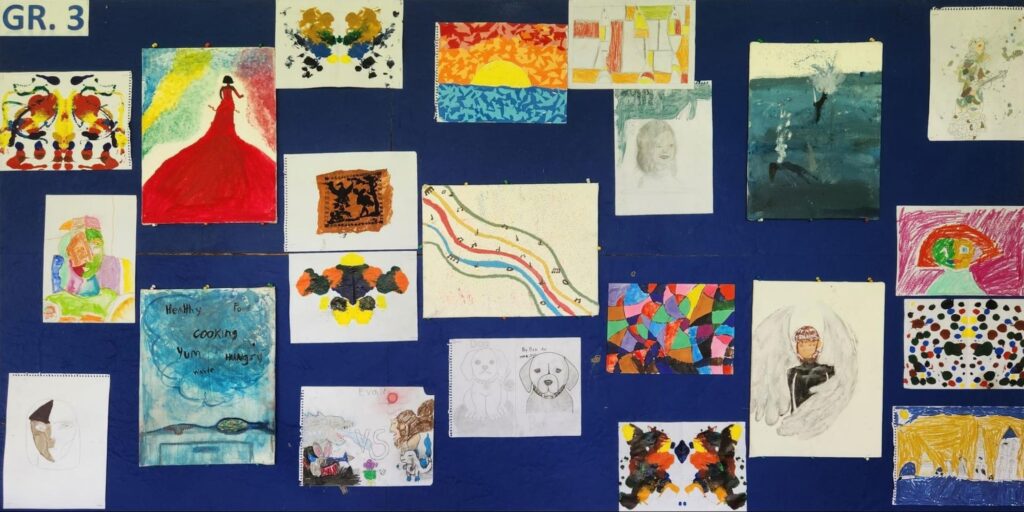
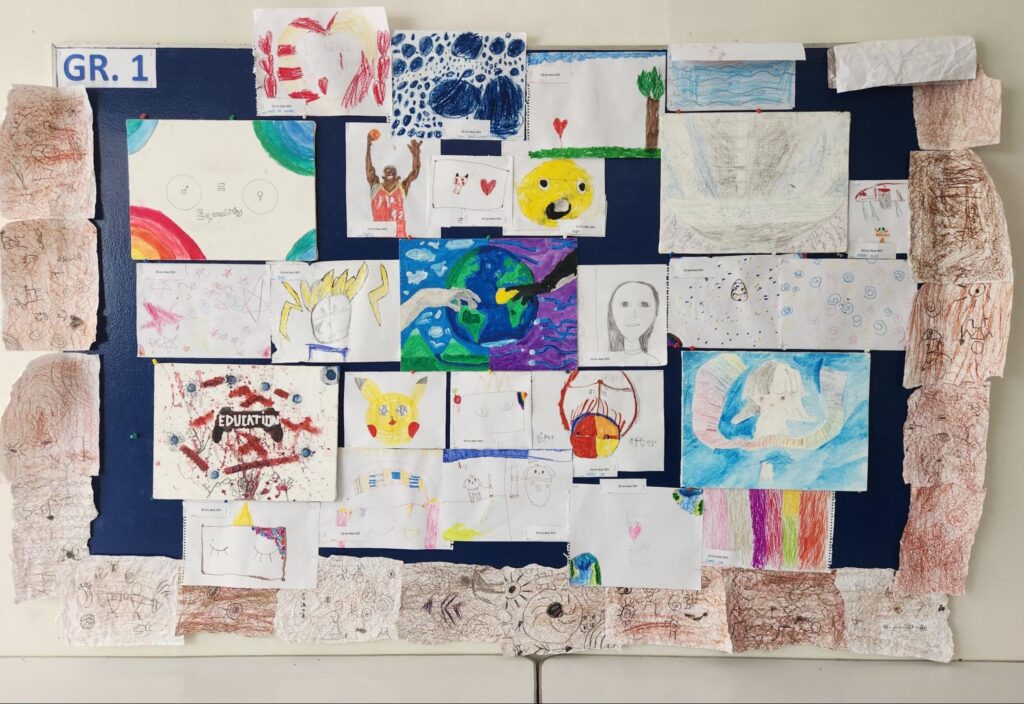
Interactive Posters:

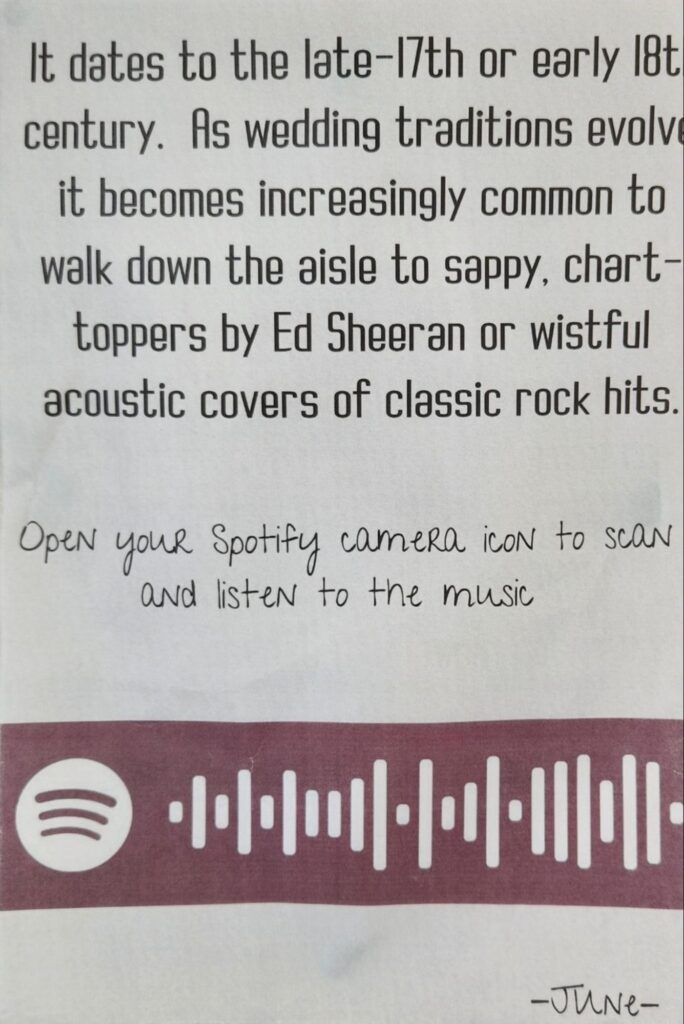
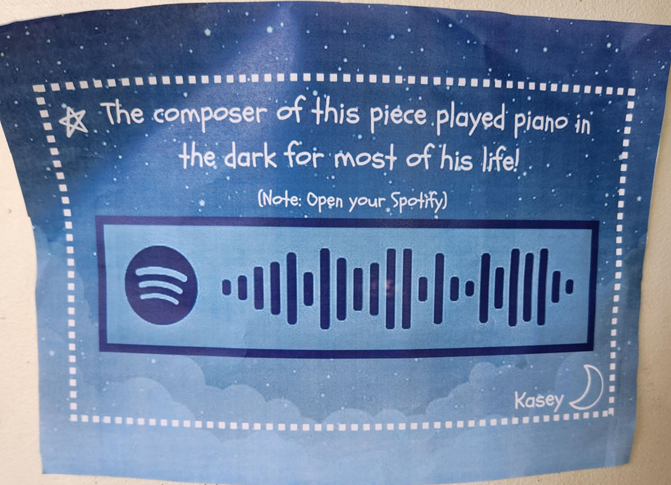
Busking:
Grade 10’s Musical Revue Unit Summative performance
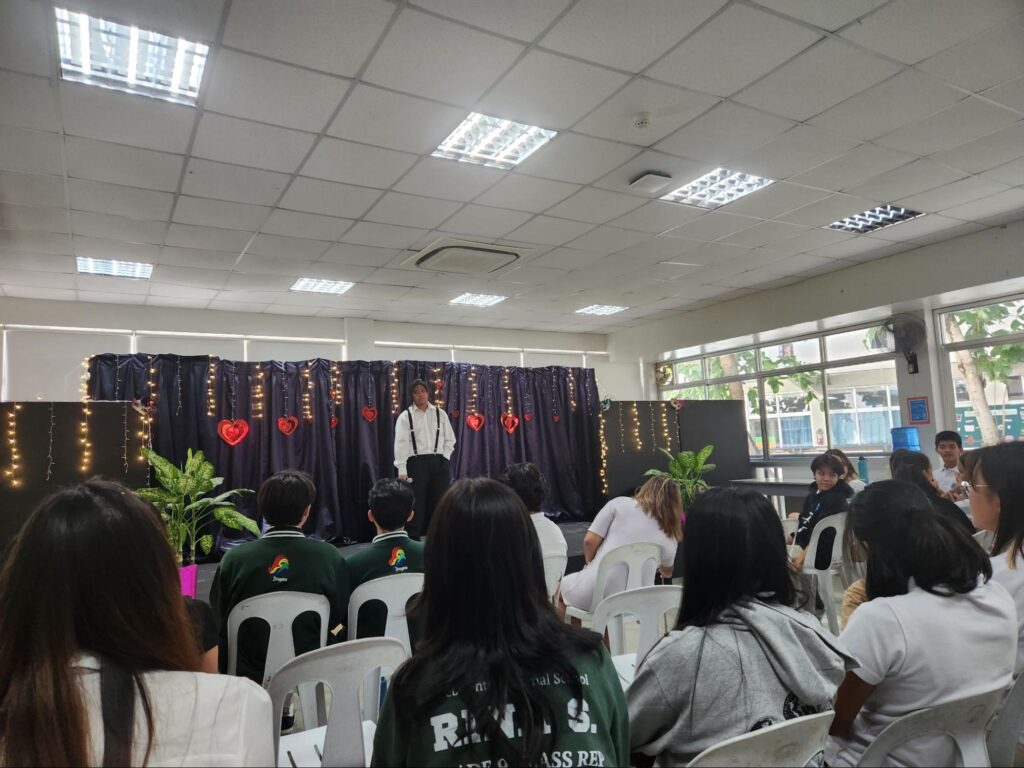
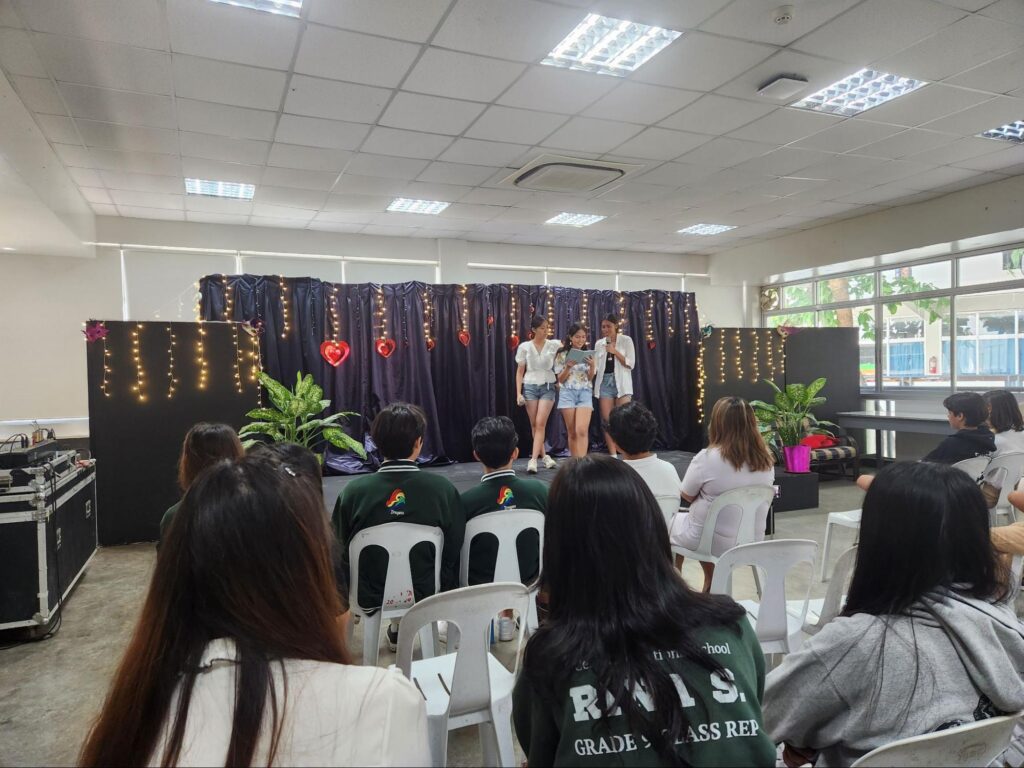
Arts Week
by Ms. Stefanny Hermias, MHS Drama Teacher
Theatre Class Presents Successful Musical Revue!
In celebration of Arts Week, Grade 10 Theatre class has just presented their highly-anticipated class production summative to an audience that 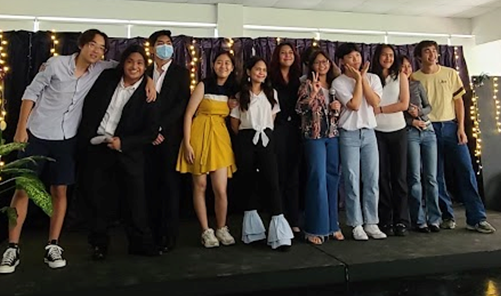 included MHS students and teachers, G10 parents and PTA Board. The performance, which showcased the students’ talents in acting, singing, and dancing, was met with thunderous applause and positive reviews.
included MHS students and teachers, G10 parents and PTA Board. The performance, which showcased the students’ talents in acting, singing, and dancing, was met with thunderous applause and positive reviews.
Students had been working tirelessly for two months to perfect their musical revue, which tackled stages of love. It was filled with catchy songs, elaborate costumes, and stunning choreography. It is sure to be remembered as a highlight of Grade 10’s last year in Theatre class and MYP.
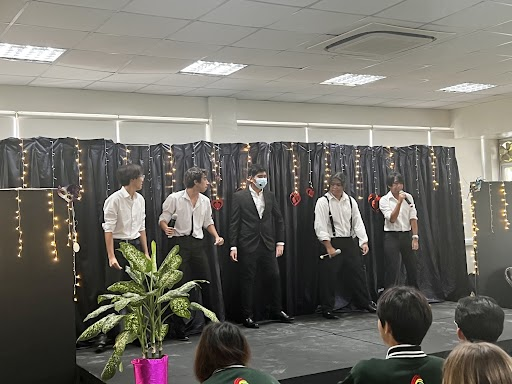
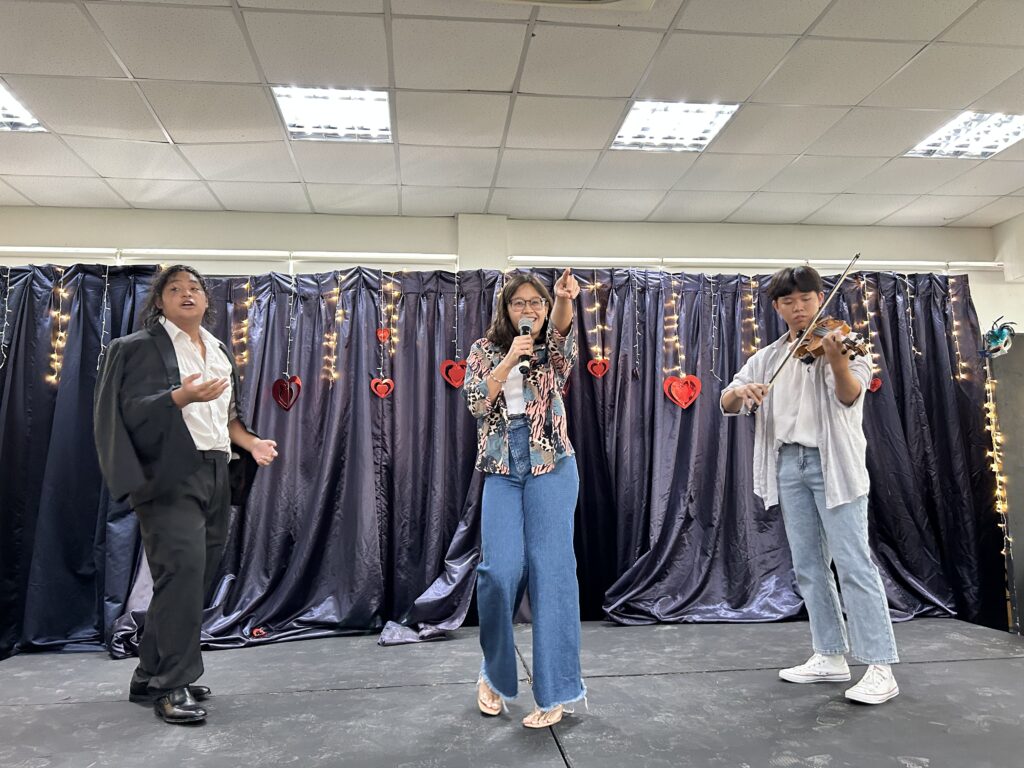
Student Reflections:
Adam
Annika
Xanti
Renzo
Grade 8/9 Creative Body Movement
In 8/9 Theatre class, students engaged in a creative body movement lesson and explored various ways to use their bodies to express emotions and convey messages. With music playing in the background, the class was a flurry of energy as students experimented with different movements, from slow and deliberate to fast and spontaneous. The lesson not only helped to build physical dexterity but also fostered a greater understanding of the importance of body language in theatrical performance. During the unit, the level of creativity and enthusiasm displayed by the Grade 8 and 9 students was remarkable and impressive!
(Please click each photo to watch their ‘Creative Body Movement’ videos!)
Currently, Grade 8/9 theatre students have been quite busy and working hard perfecting their waltz dance routine class. They are looking forward to their next showcase which will be at the End of Year Assembly.
Here are giphy teasers of their Waltz dance!
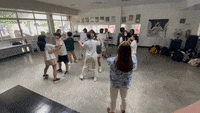
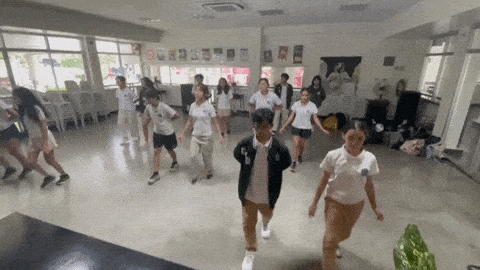
CIS Touch Rugby
by Mr. Damon Freeman & Ms. Leanne Healy, CIS Touch Rugby Coaches
On Saturday May 6th, Cebu International School (CIS) hosted the inaugural CIS Touch Rugby Championship, with teams from Pardo, Guadalupe, Mango and Talamban SOS participating. The event also included exhibition 7’s (seven-a side rugby) games from Cebu Dragons Rugby Club, making it a day filled with rugby excitement.
Families, friends and teachers came out in full force to support, their presence was greatly appreciated. The players and club are fortunate to have such a strong support system, thank you all for your unwavering and generous support!
Aside from the competitive aspect of the tournament, the event also provided an opportunity for the players to develop community ties. Rugby is not just a physical sport, but also a sport that focuses on building character and forging friendships. The players had the chance to interact with other schools and make new friends, which is an important aspect of their overall development.
In the Under 12s division, CIS emerged as the champions, winning a well-deserved trophy. The coaches are extremely proud of all the players, and their hard work and dedication has certainly paid off. The U15`s and U19`s also made it to the finals, losing extremely narrowly.
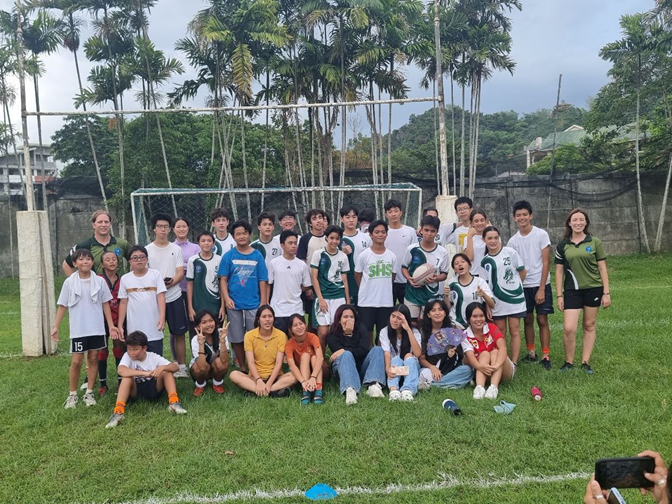
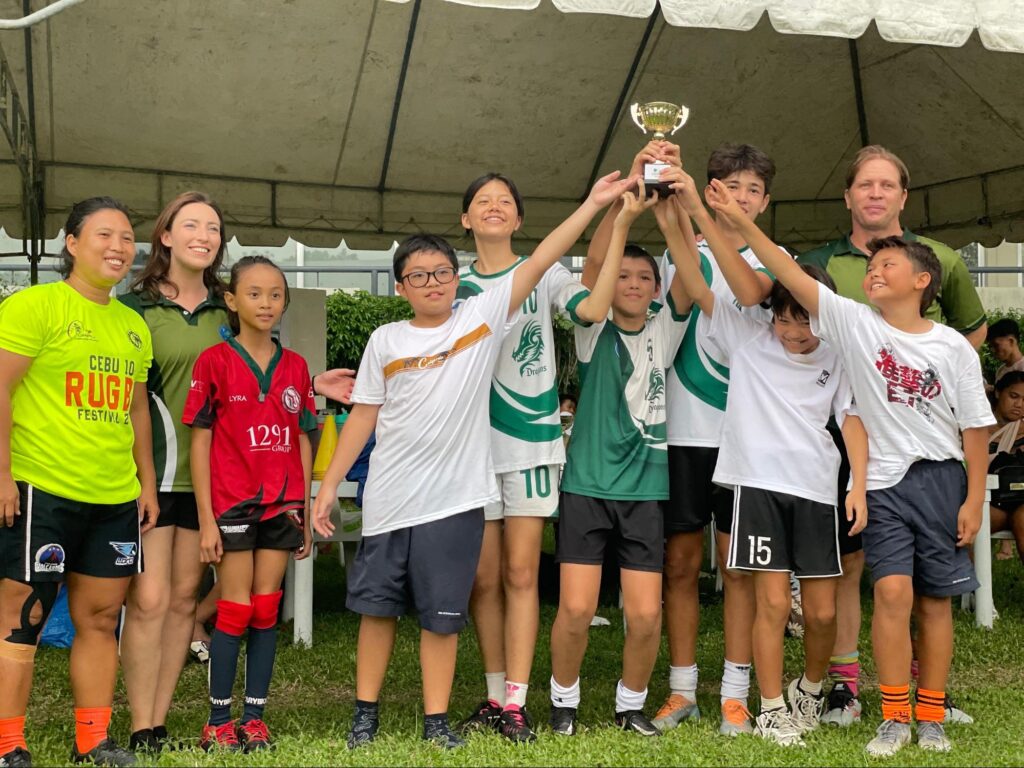
The tournament was a huge success, with all teams displaying impressive skills and teamwork. The players have clearly put in a lot of effort and enthusiasm into their training, and it was demonstrated on the field.
The Touch Rugby Championship is a testament to the growing popularity of rugby in Cebu, and it is heartening to see so many young players taking an interest in the sport. Rugby is a sport that teaches core values; Integrity, Discipline, Solidarity, Respect and Passion. It is clear that the players have embraced these values.
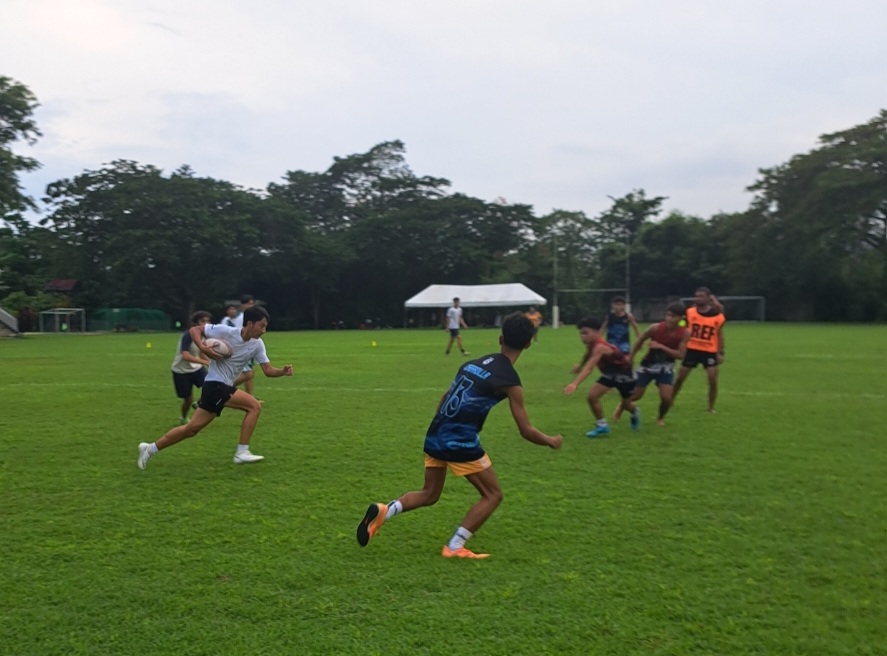
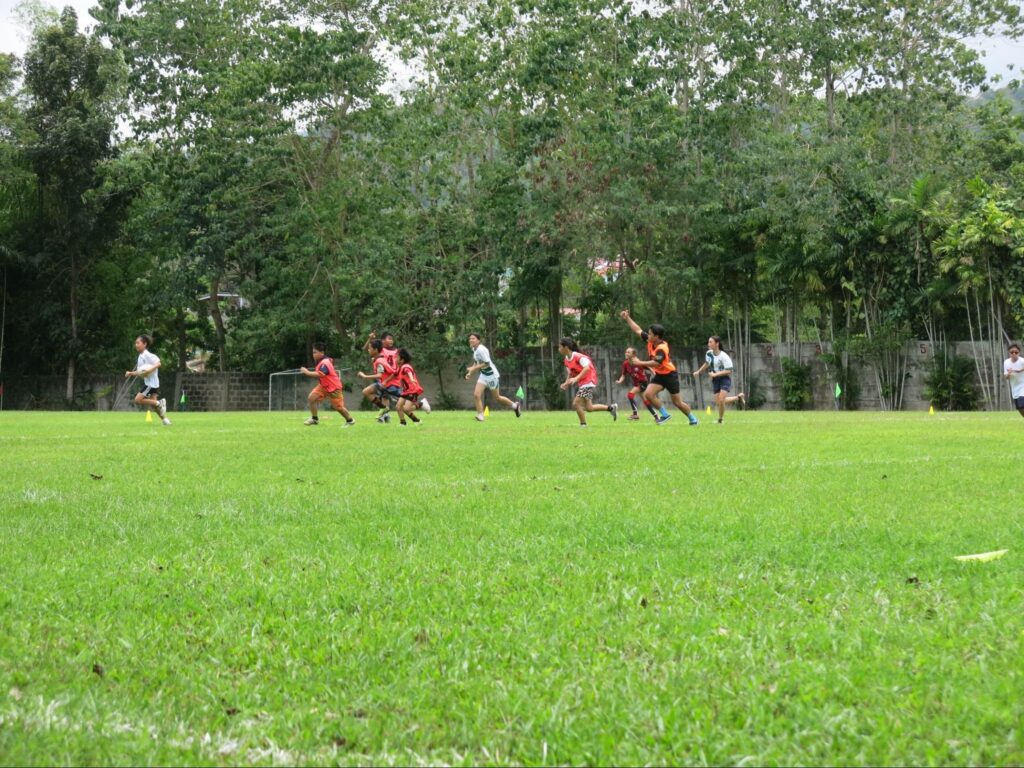
A note from the coaches:
It was a pleasure to witness so many young players displaying their skills on the field. All players should be commended for their hard work and dedication, we are proud of every one of you. Thank you to all staff, parents and guardians who supported the players and event to make the day possible and filled with a community atmosphere. Congratulations to the Under 12s division for their trophy-winning efforts, and to all the teams for their impressive performances. The future of rugby in Cebu looks bright, and we can’t wait to see the players develop their game even more through the rugby events and training.
Thank you all!
College/Careers Counselor Corner
by Ms. Jenny Basa, College/Careers Counselor Corner
Question of the Week: For an incoming 12th grade student, do I need to take the SAT since I’ll be applying to college next school year?
It depends on where you are applying to and if you are going to register for the full IB Diploma. Taking the SAT is an option especially for those who do not present a recognized high school qualification. At CIS, our HS diploma is recognized by universities abroad because we are accredited with the Council of International Schools (CIS) and the Western Association of Schools & Colleges (WASC) In the US, there is a growing number of colleges and universities who have gone test optional. Here is a list list you can refer to. This list can change so the best resource is to check the university’s website.
College Events (Virtual and Face to Face)
DATE
May 23
Tuesday
9:15 – 10:00 AM
Canteen Annex
Link to sign up
EVENT
Bond University (Australia) – An information session with the university rep to learn about the programs, scholarships and the application process.

SAT Update for 2022-2023
| SAT Test Date | Deadline for Registration, Changes and Regular Cancellation |
| June 3, 2023 (Digital) | May 19, 2023 |
Test dates labeled Digital means that students will bring a device to the test center and take the exam using their device. The College Board may provide devices for test-takers who do not have access to a device. All test-takers for Digital SATs are still required to report physically to the test center to take the test.
To register for the SAT, you may click on this link. If you need assistance or have any questions, please feel free to email Ms. Jenny Basa at jbasa@cis.edu.ph.
The Dragon’s Report Card
In this episode, the members of the club reflect on their learning experiences during Week Without Walls, a week outside the classroom learning. They discussed their likes, suggestions for improvements, and more. Hear more from this exciting episode!


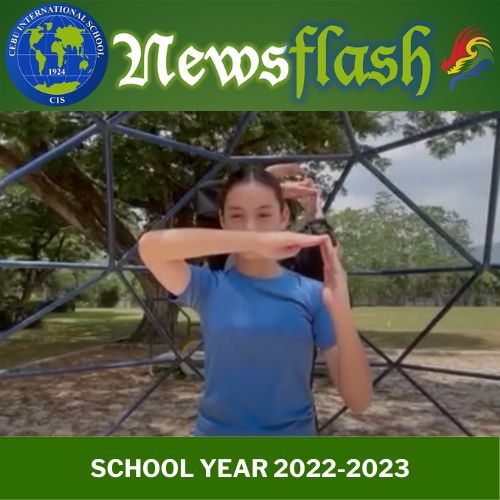
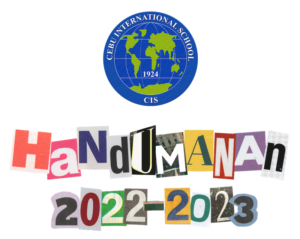
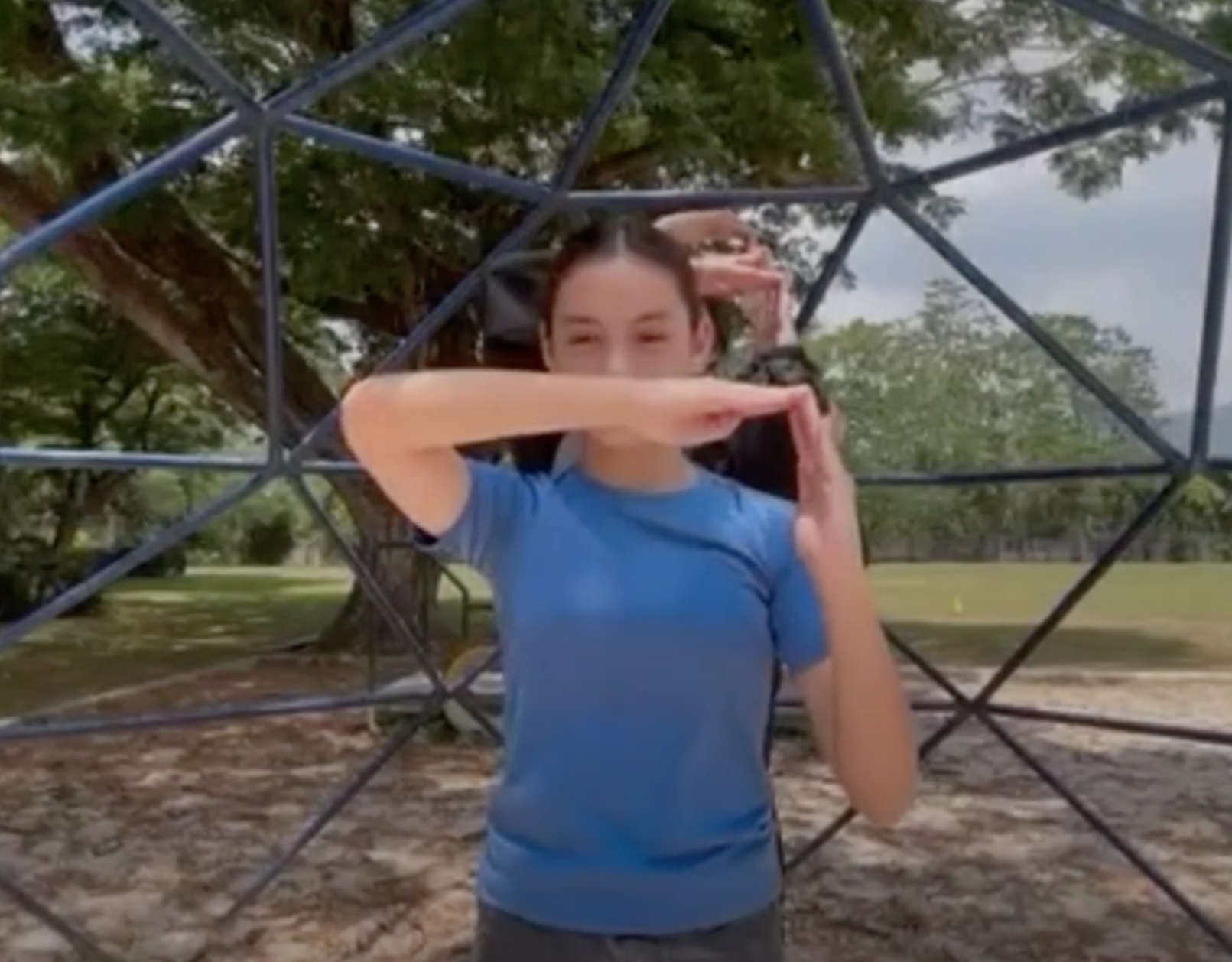
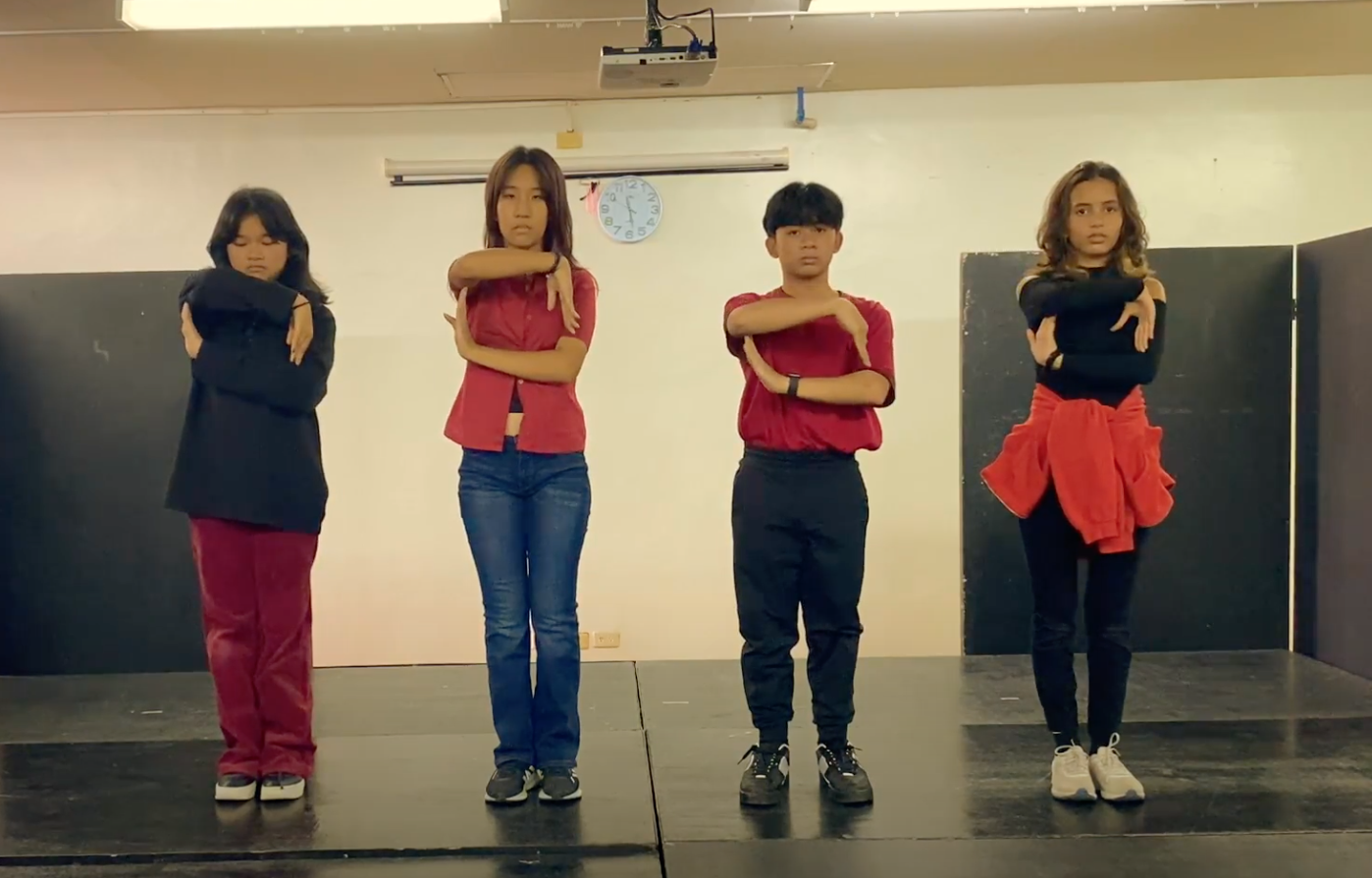
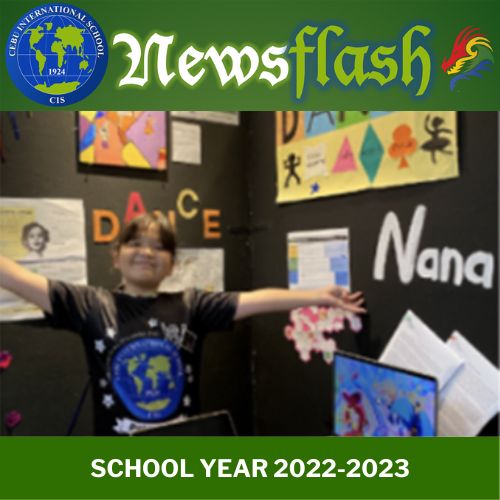
 Dr. Pollock
Dr. Pollock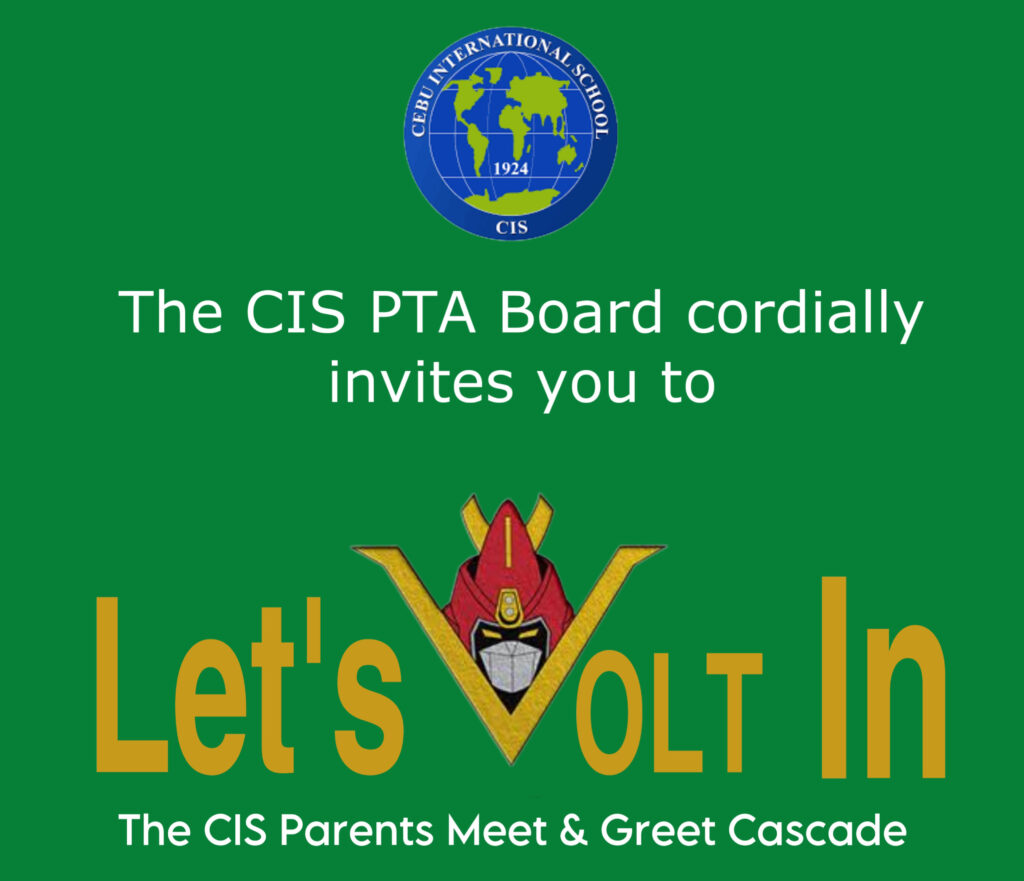
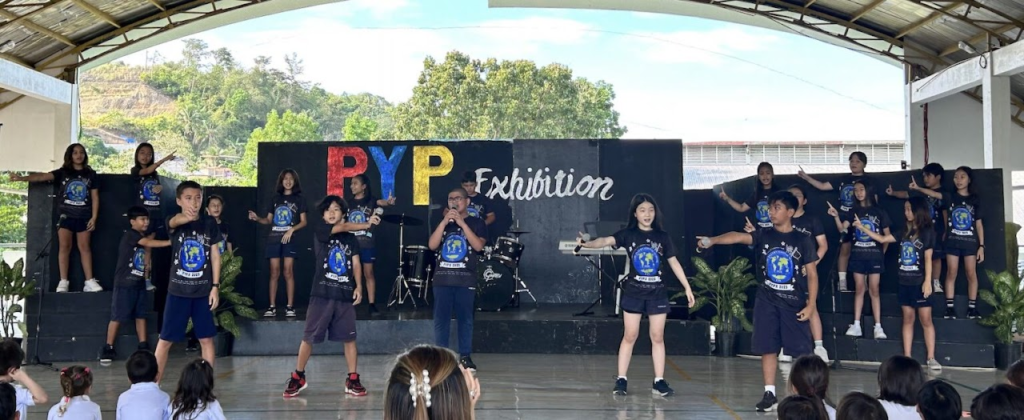
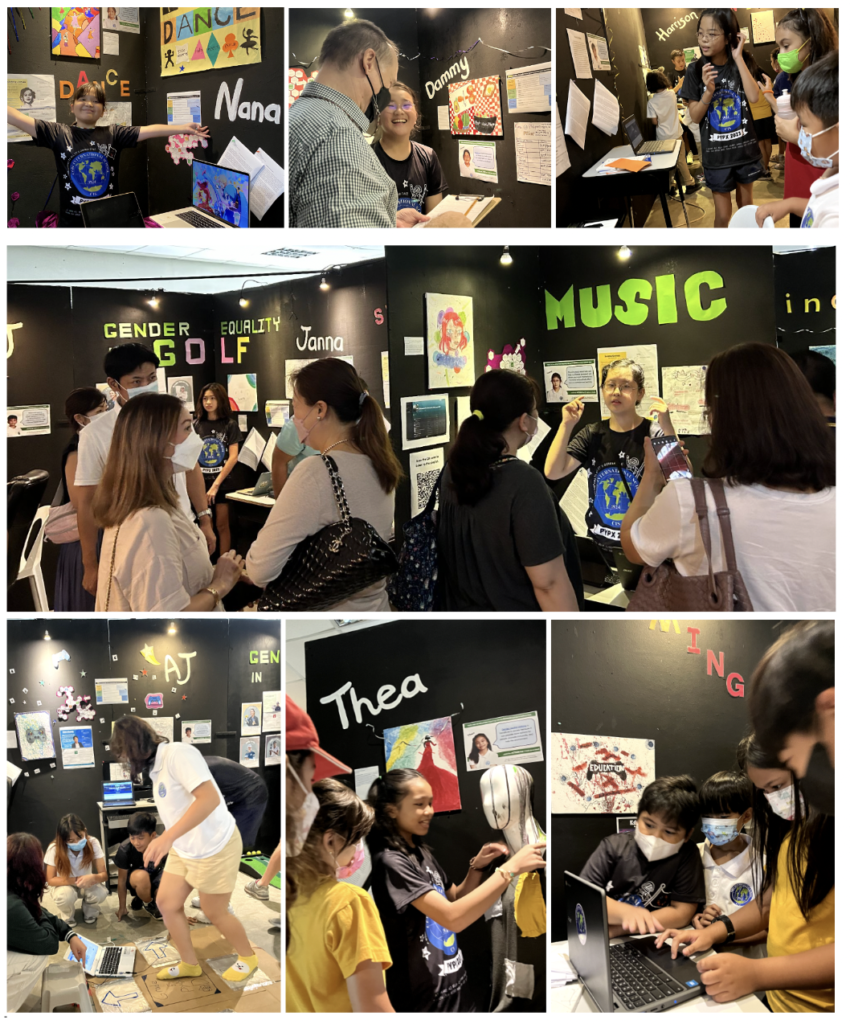
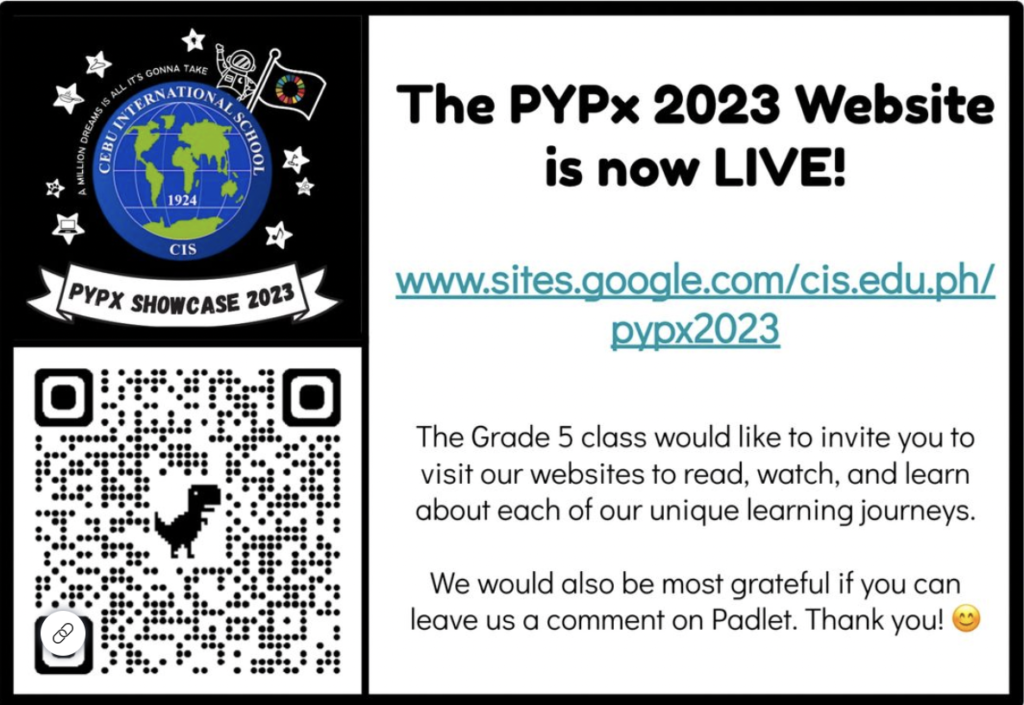
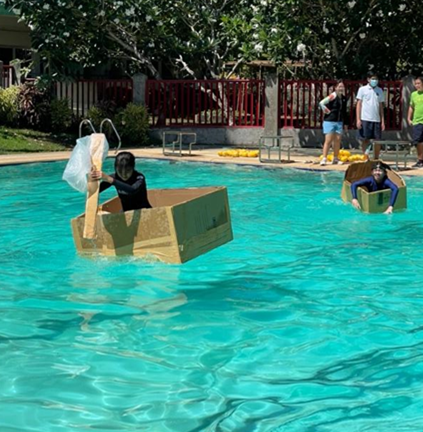
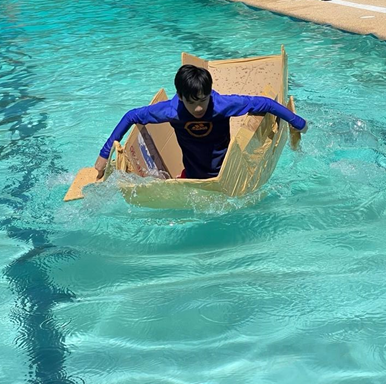
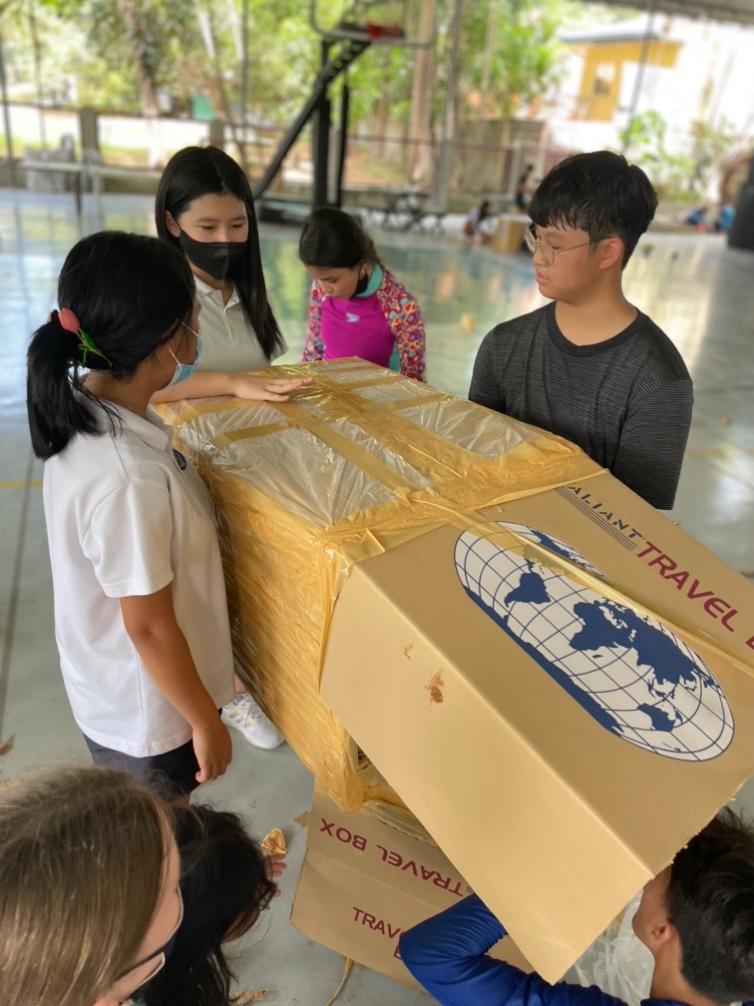 Students had to concentrate on their communication and teamwork skills in addition to the technical components of the activity to ensure that their team worked efficiently. To create the best race design and strategy, they had to assign work, listen to one another’s ideas, and compromise. Making a team flag and chant enabled students to collaborate and build team spirit, making them feel more connected and motivated.
Students had to concentrate on their communication and teamwork skills in addition to the technical components of the activity to ensure that their team worked efficiently. To create the best race design and strategy, they had to assign work, listen to one another’s ideas, and compromise. Making a team flag and chant enabled students to collaborate and build team spirit, making them feel more connected and motivated.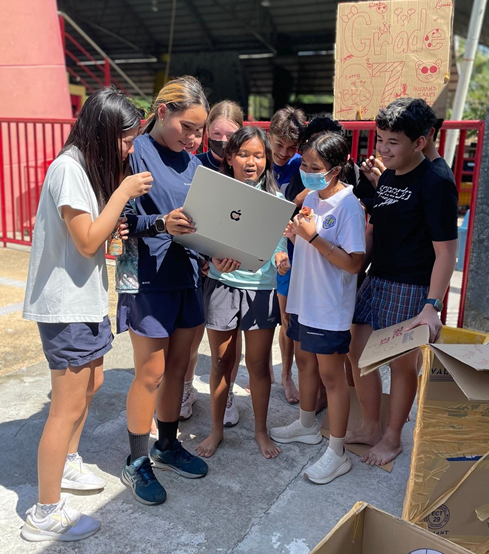
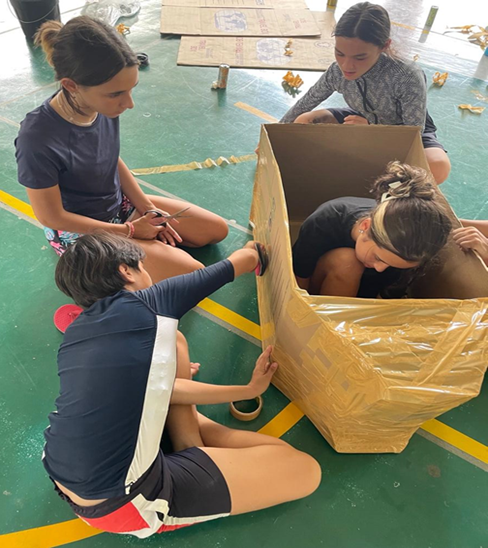
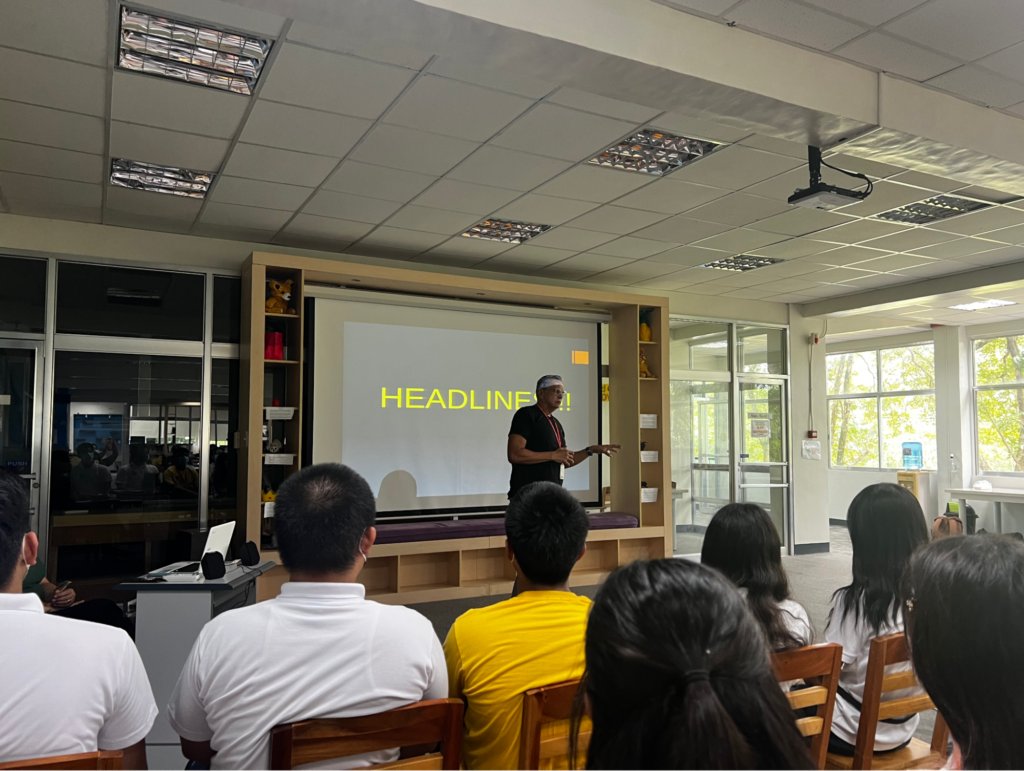
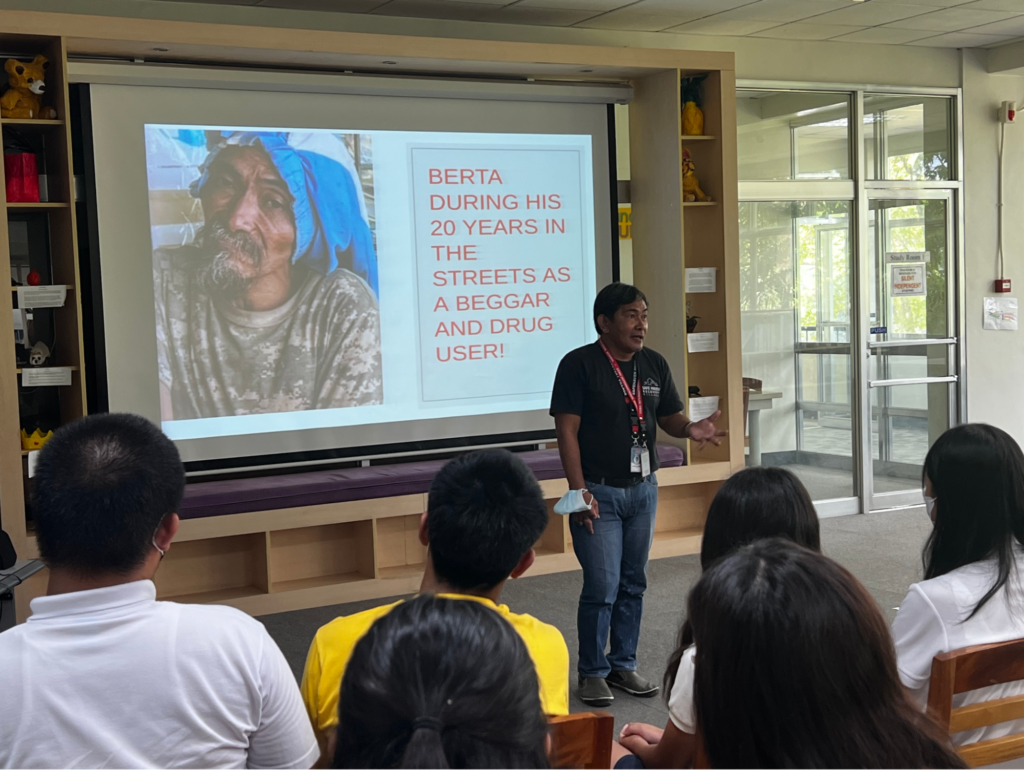
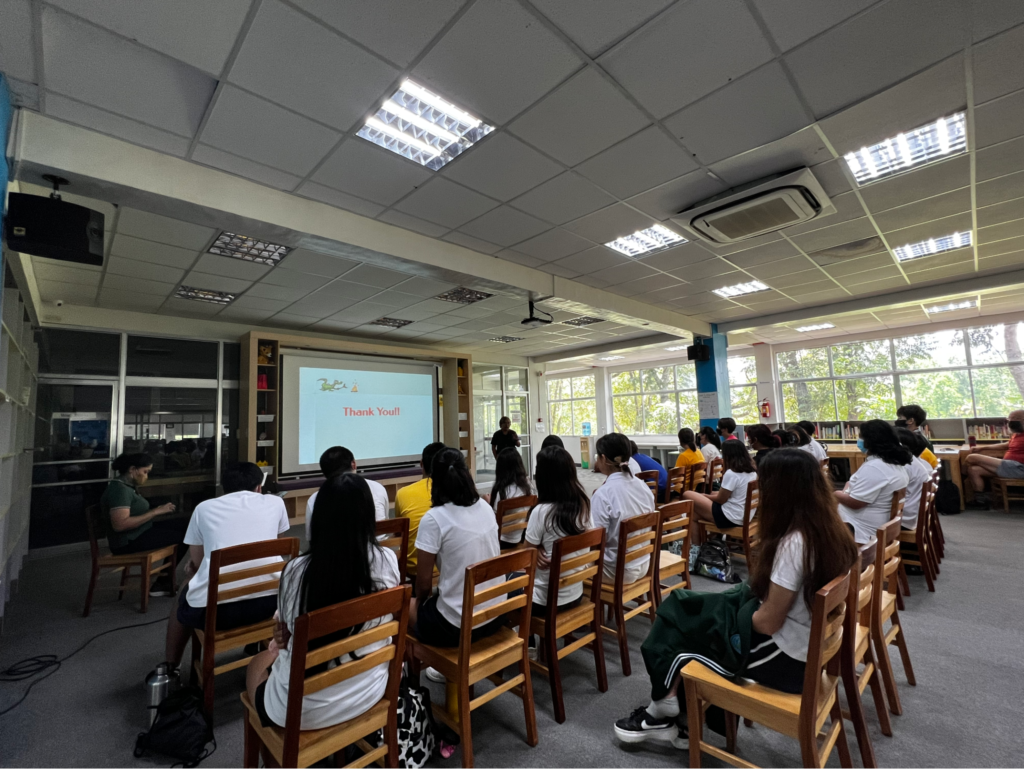
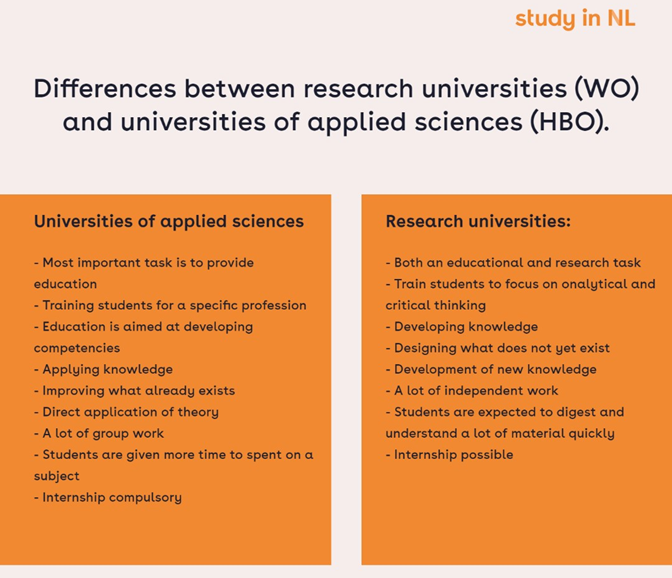
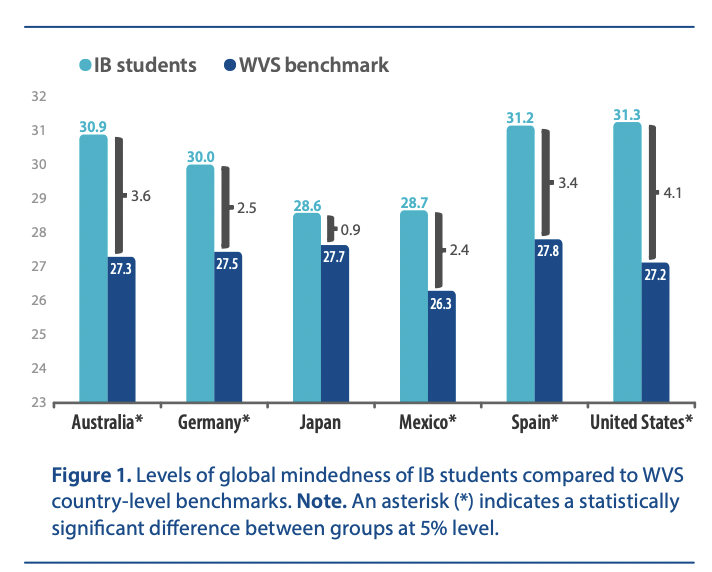
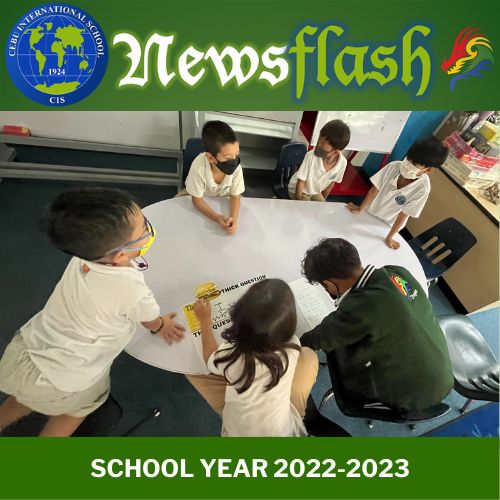
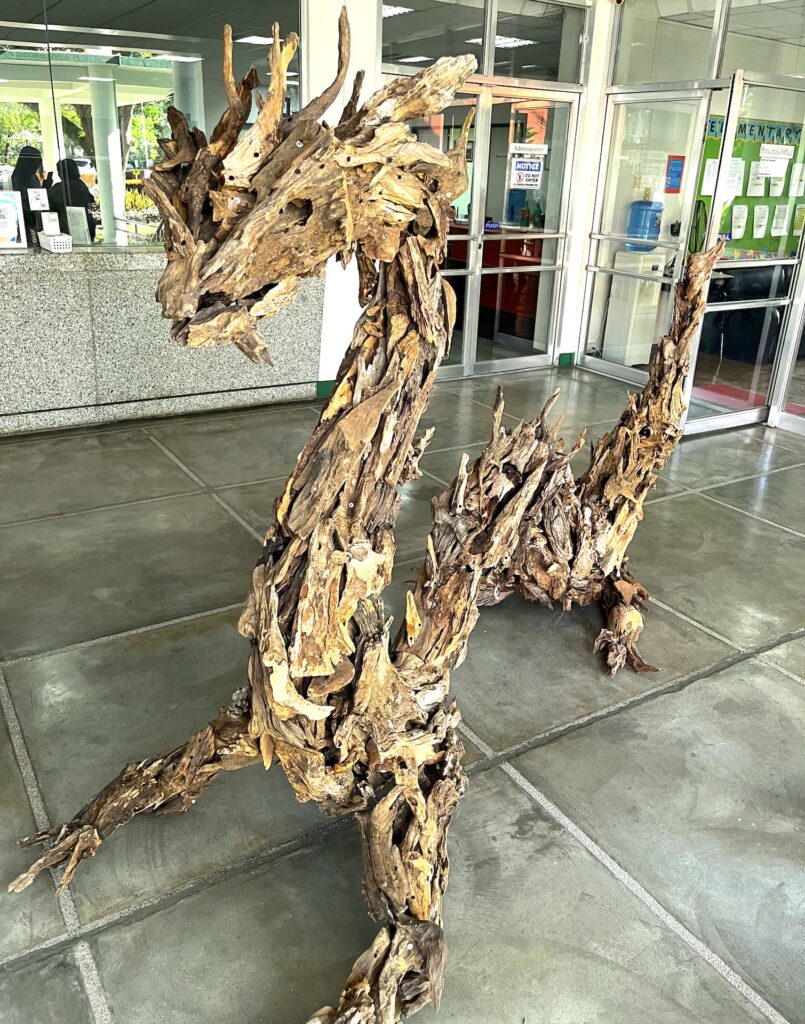 This week the campus has been especially busy as our Grade 5 students prepare for their culminating PYP Exhibition, while Grade 6-11 students engage in a variety of activities on and off campus as part of Week Without Walls. The progressive nature of the education provided to these groups of students is considerably different from that experienced by other students at schools in the Philippines. This approach places students at the center of the learning experience while offering them a safe and supportive environment that prepares them for life beyond the classroom.
This week the campus has been especially busy as our Grade 5 students prepare for their culminating PYP Exhibition, while Grade 6-11 students engage in a variety of activities on and off campus as part of Week Without Walls. The progressive nature of the education provided to these groups of students is considerably different from that experienced by other students at schools in the Philippines. This approach places students at the center of the learning experience while offering them a safe and supportive environment that prepares them for life beyond the classroom.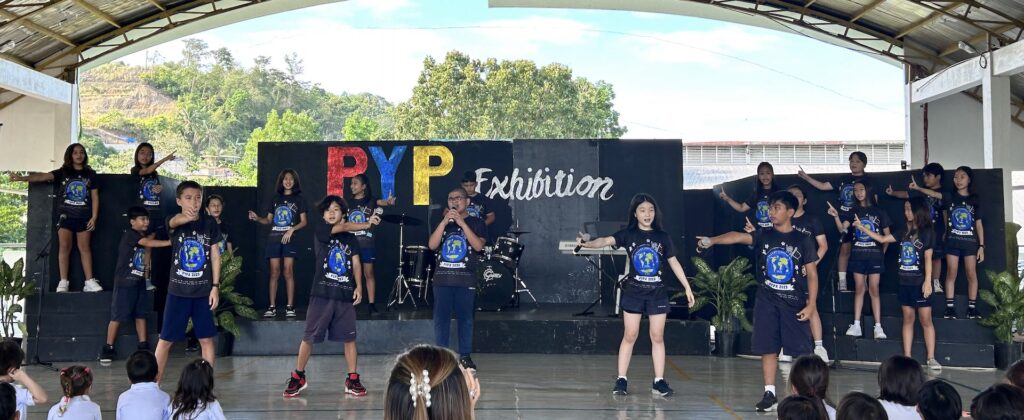
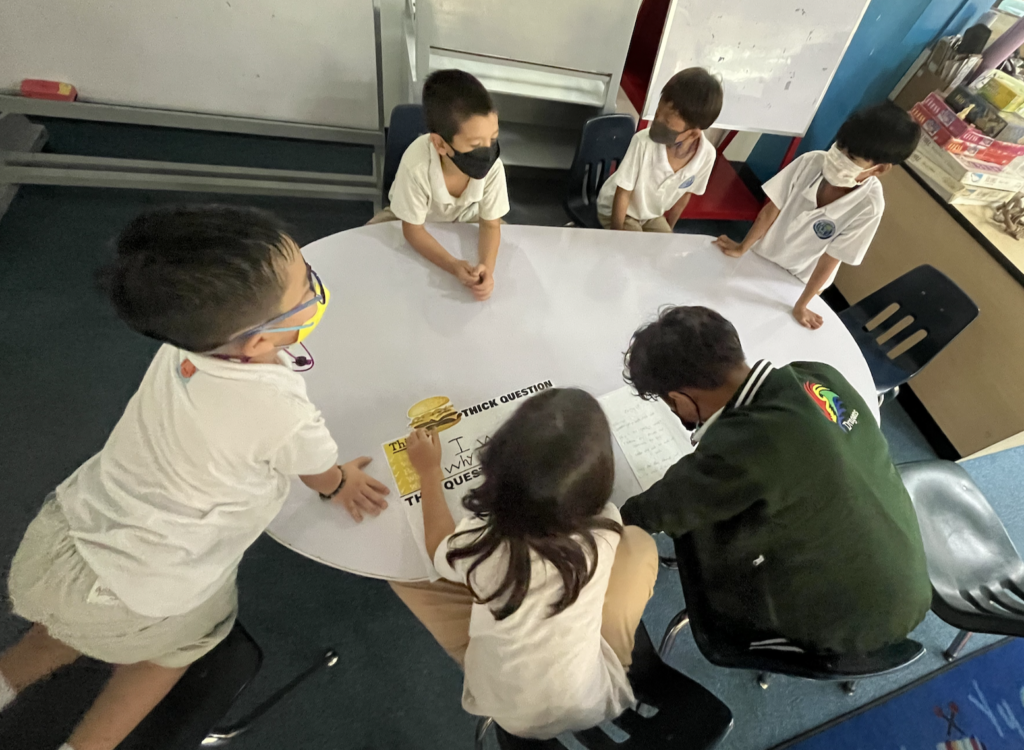
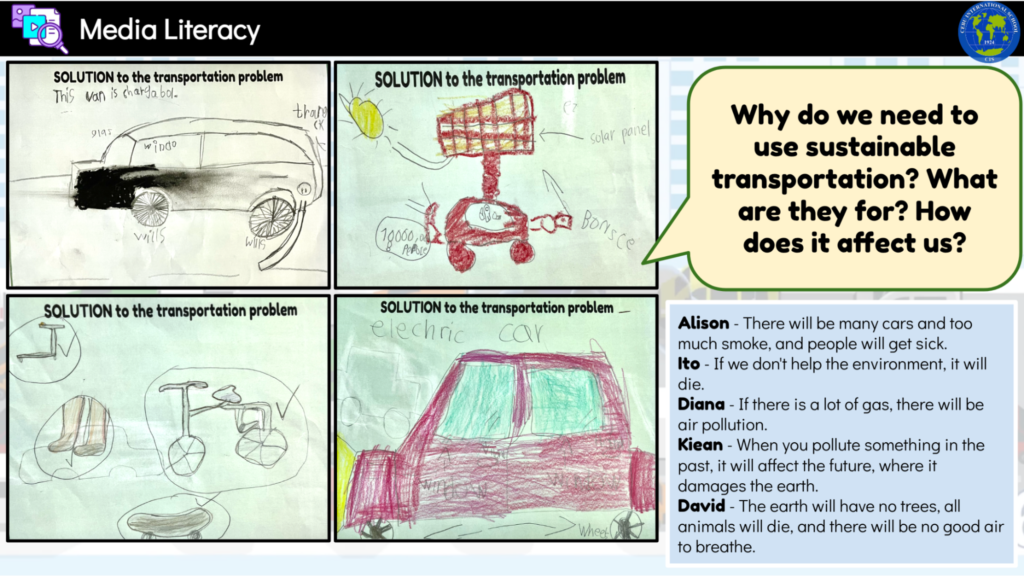
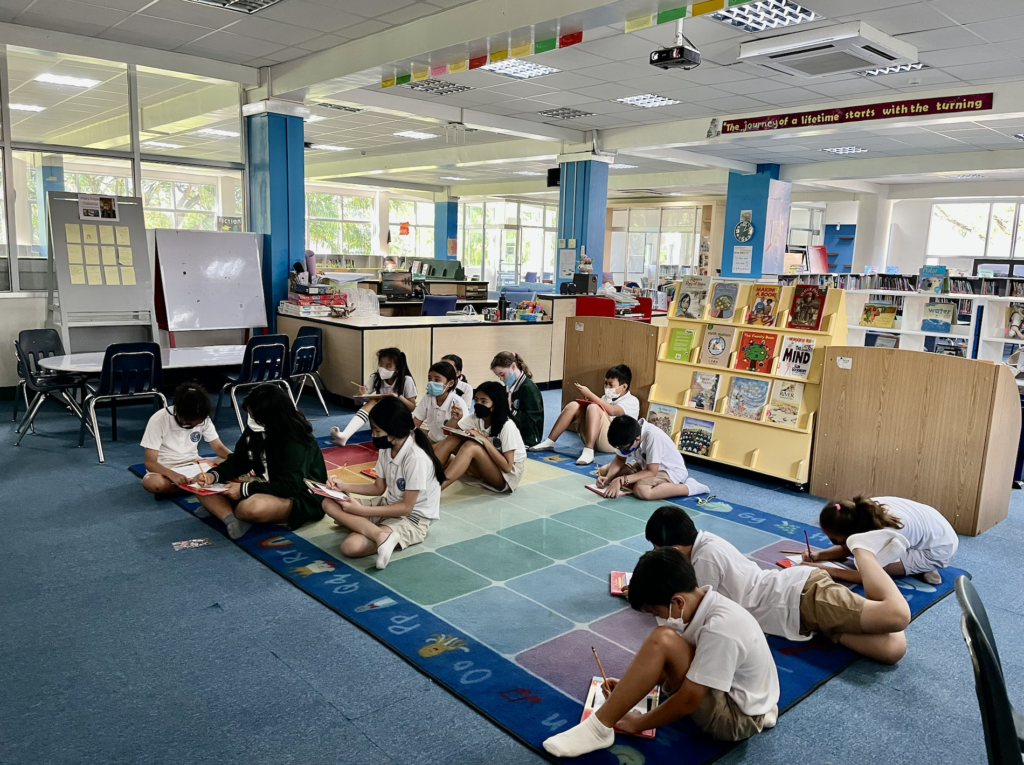
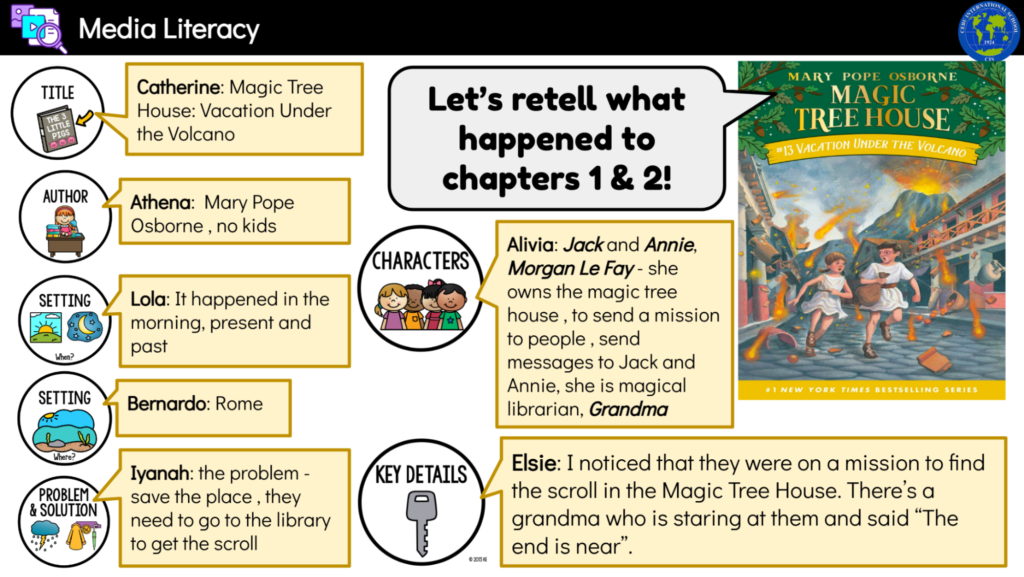
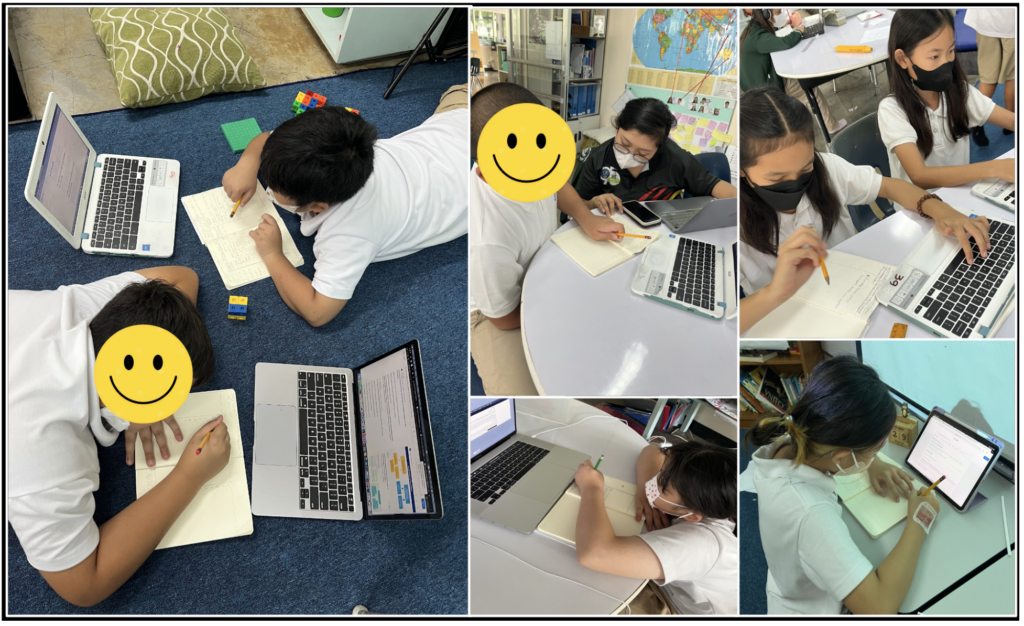
 Grades 8 and 9 really like to play, so for Spanish class, they created diverse board games to express their learning, realizations, and discoveries, according to their level of readiness, on the topic of the 3 Rs: recycle, reuse, repurpose. Here are some of the students’ comments in Spanish about the nature of these activities.
Grades 8 and 9 really like to play, so for Spanish class, they created diverse board games to express their learning, realizations, and discoveries, according to their level of readiness, on the topic of the 3 Rs: recycle, reuse, repurpose. Here are some of the students’ comments in Spanish about the nature of these activities.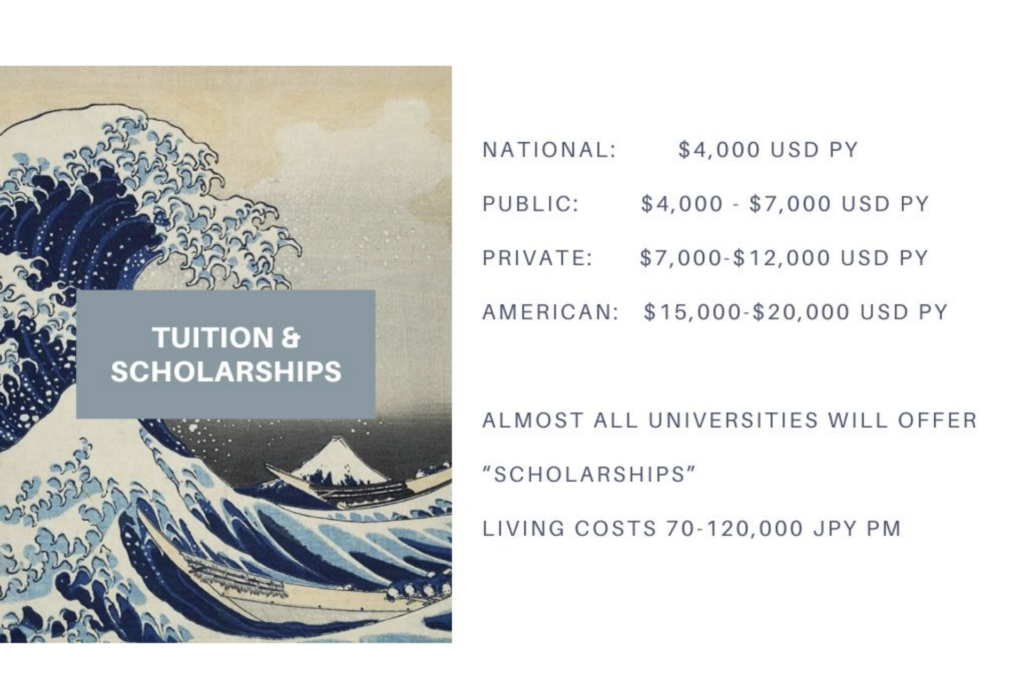
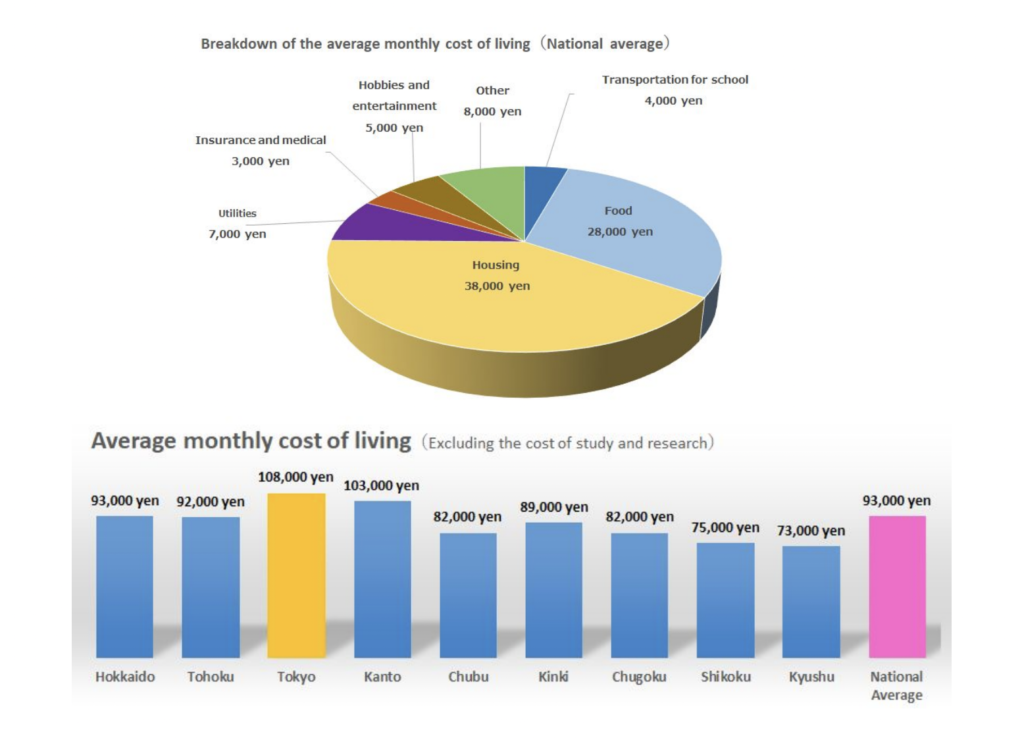
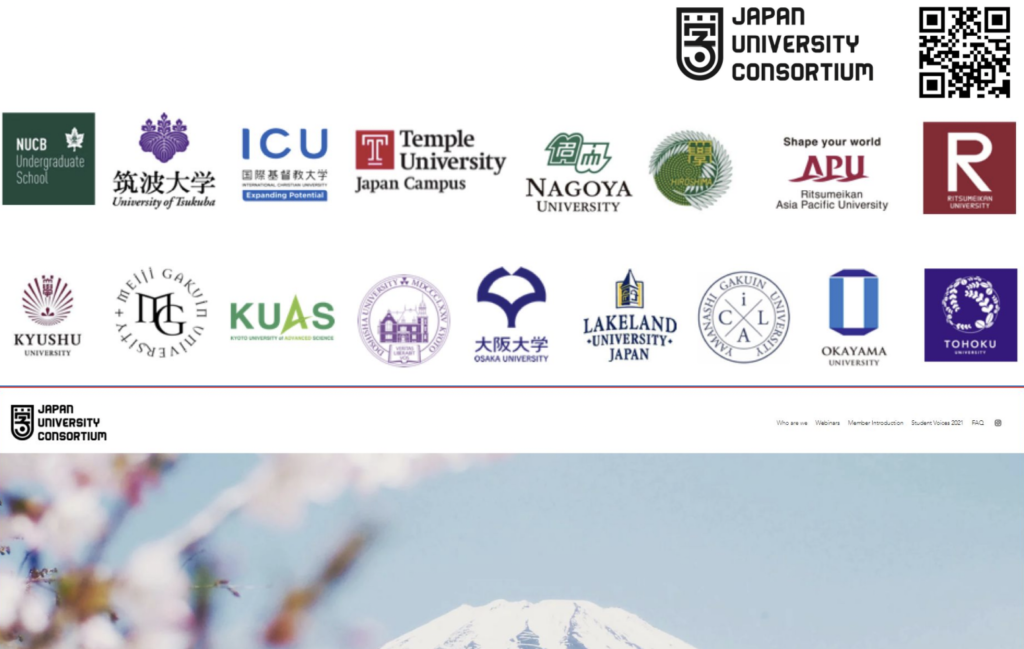

 We in the Middle/High School are excited to share with you our plans for our upcoming Week Without Walls Experience on
We in the Middle/High School are excited to share with you our plans for our upcoming Week Without Walls Experience on 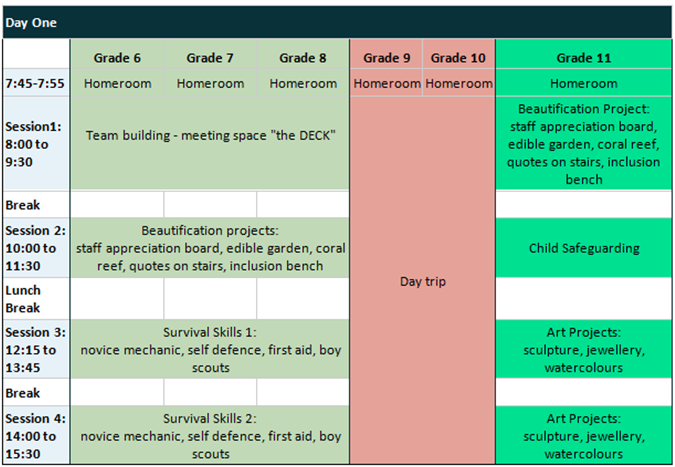
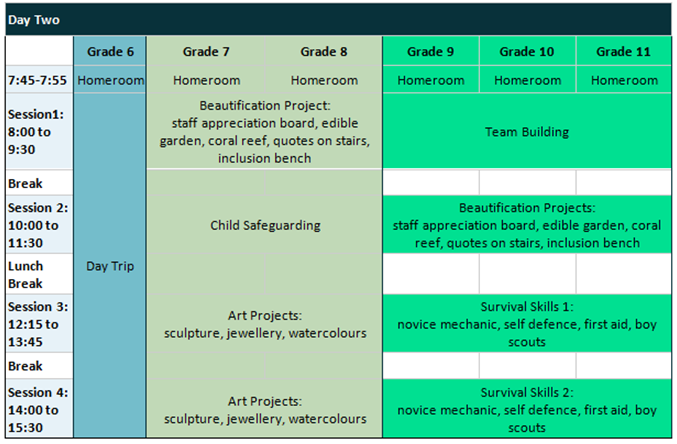
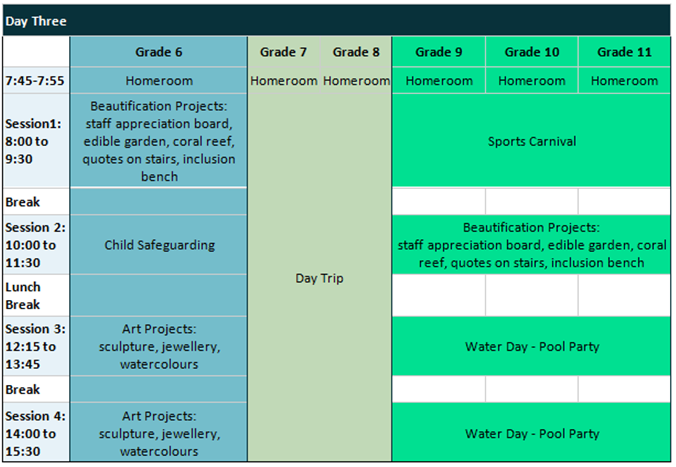
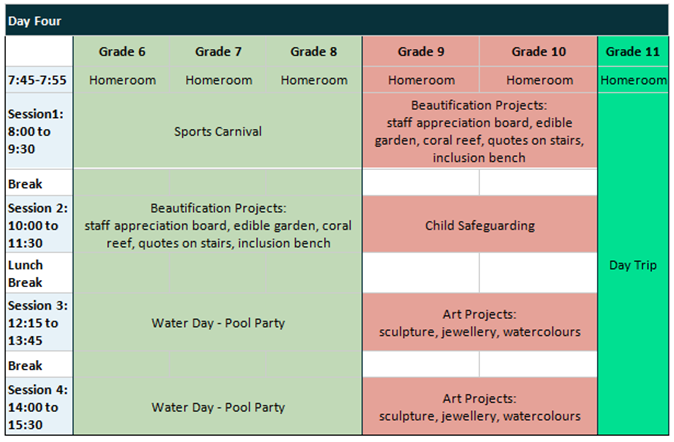
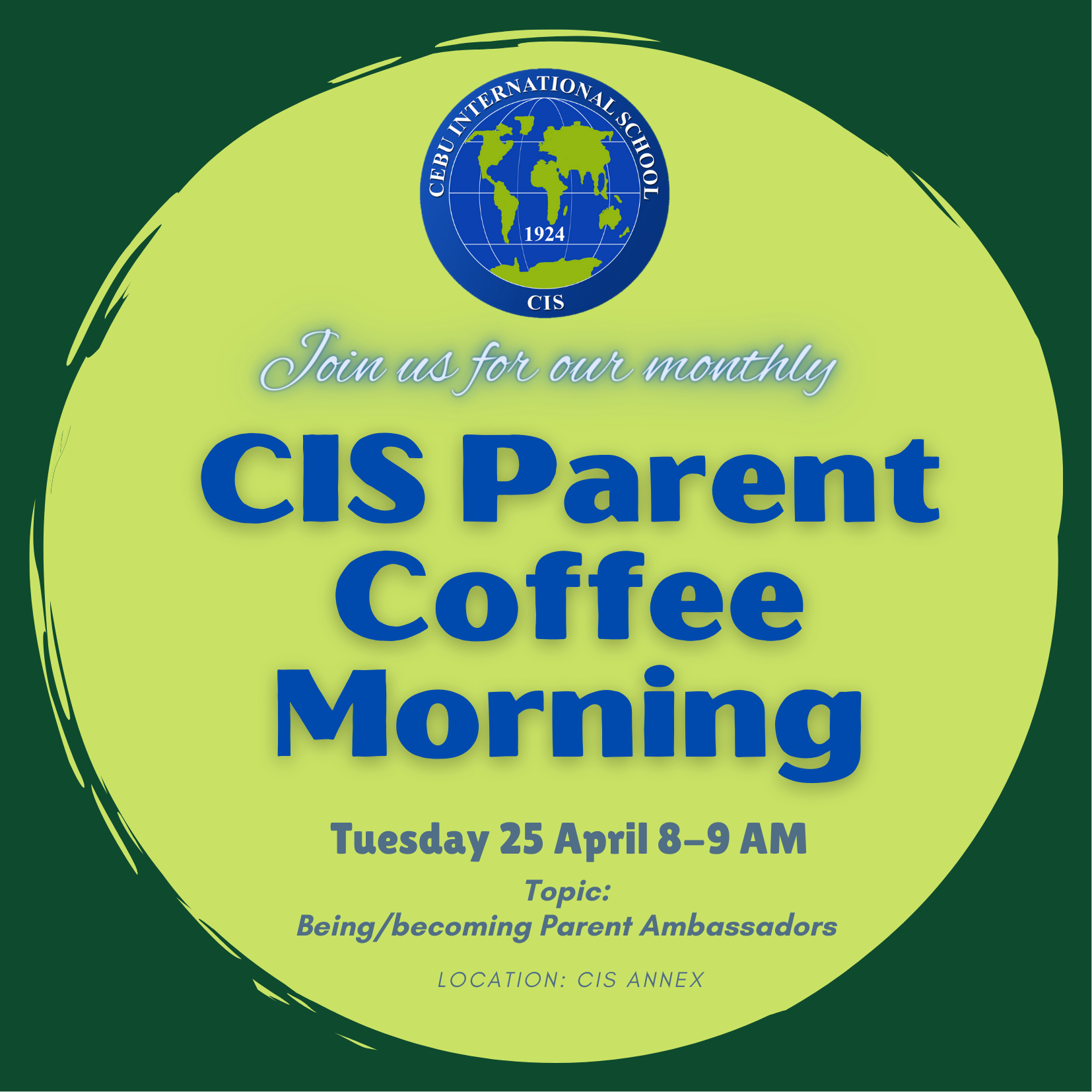
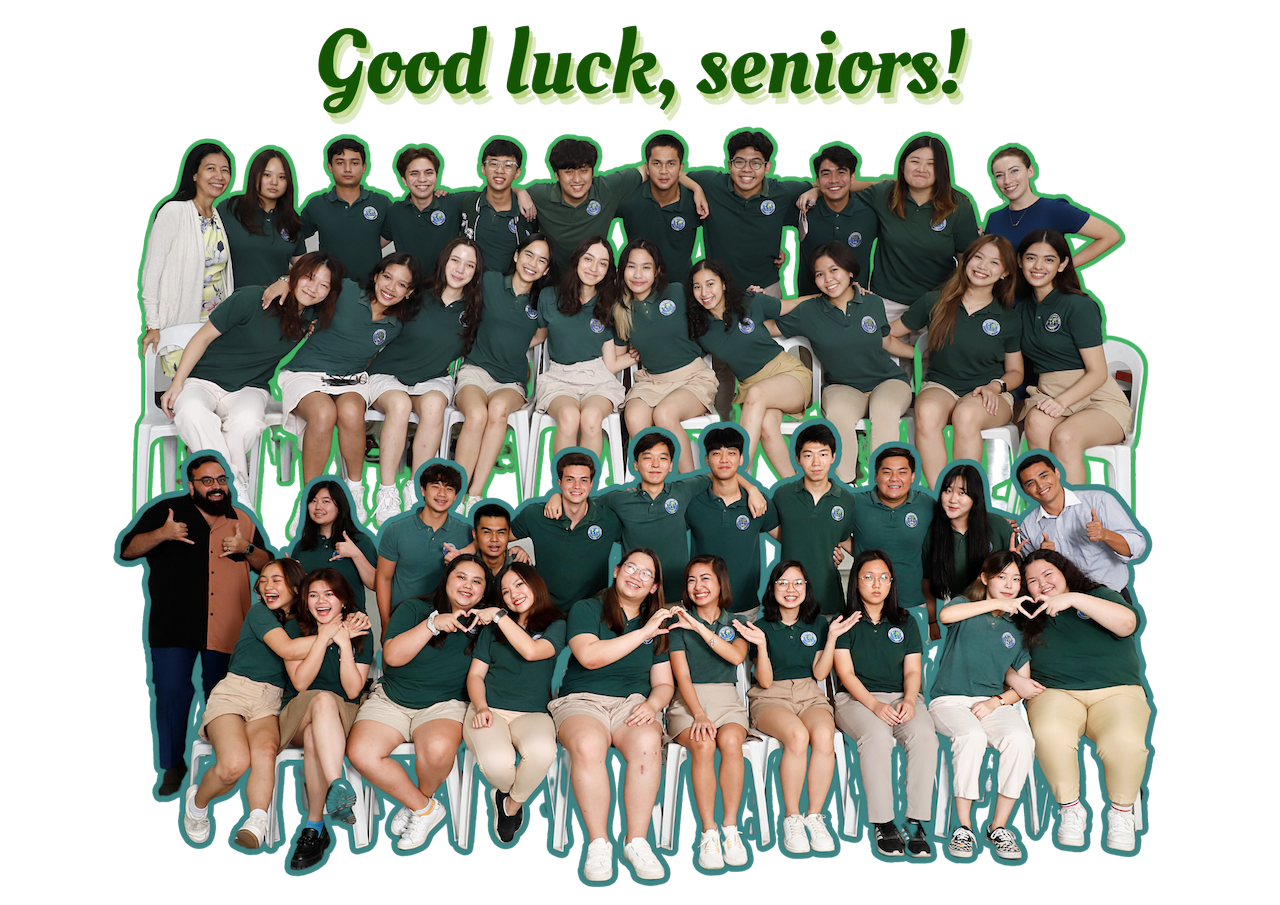
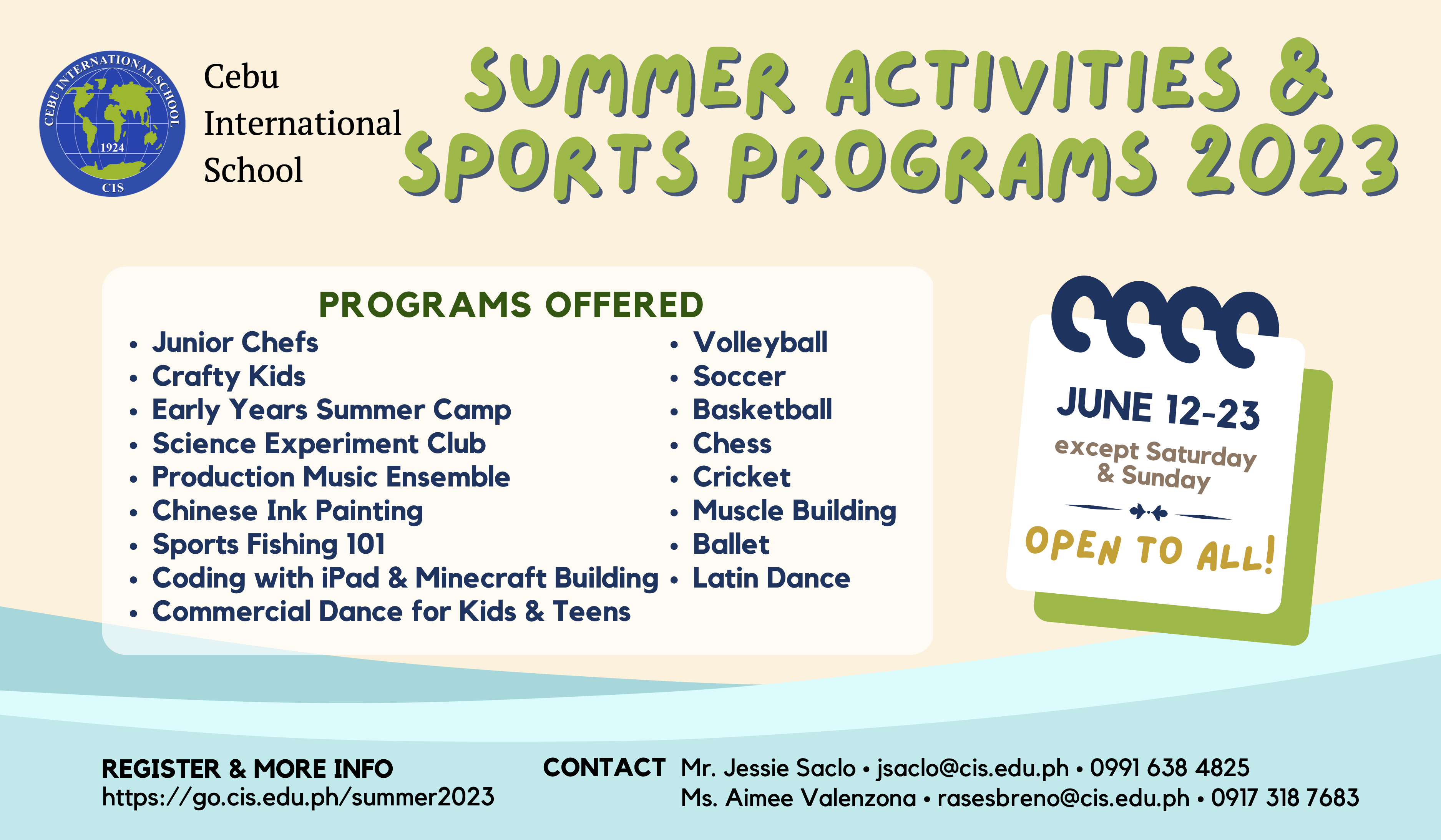
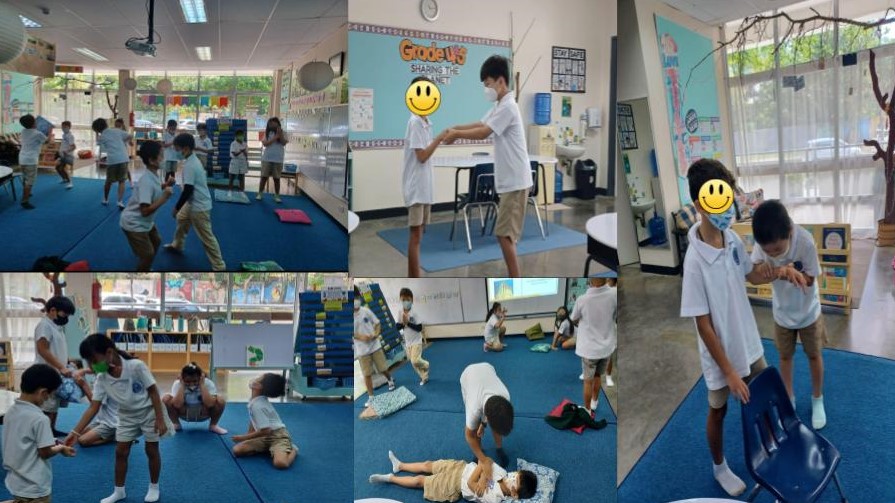
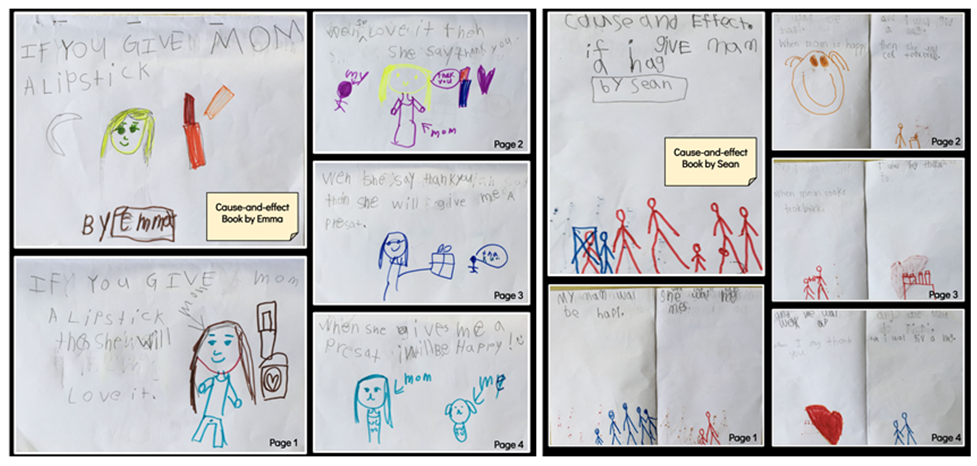
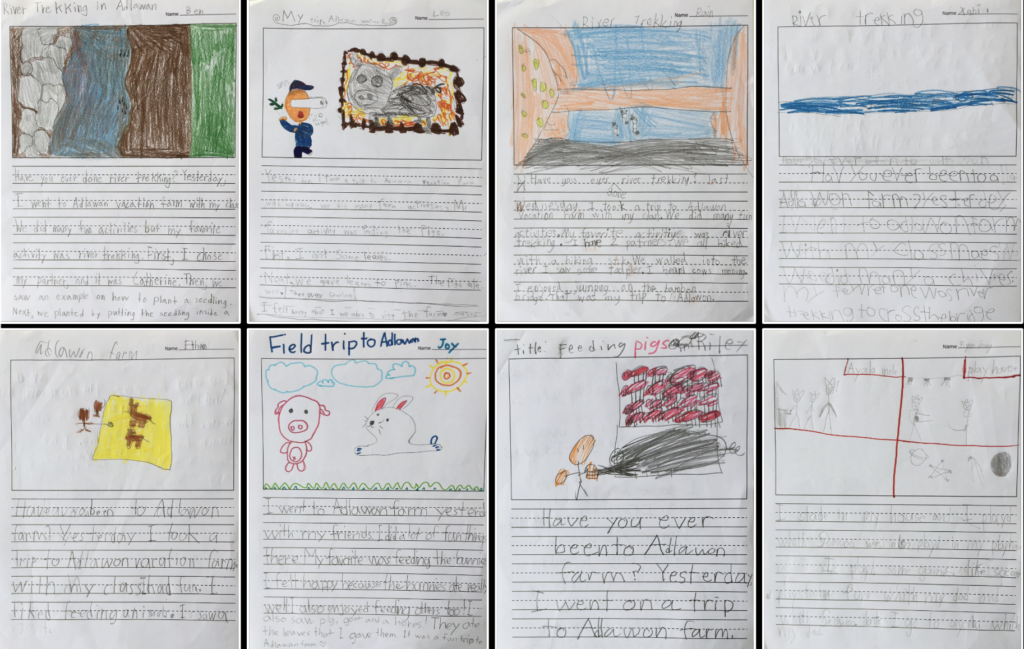
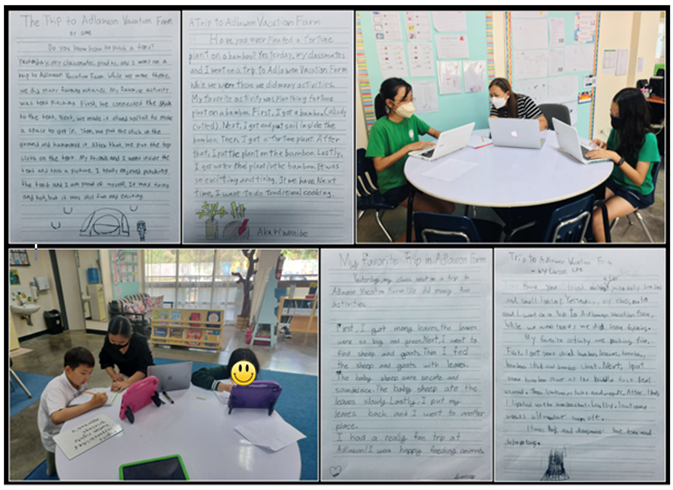
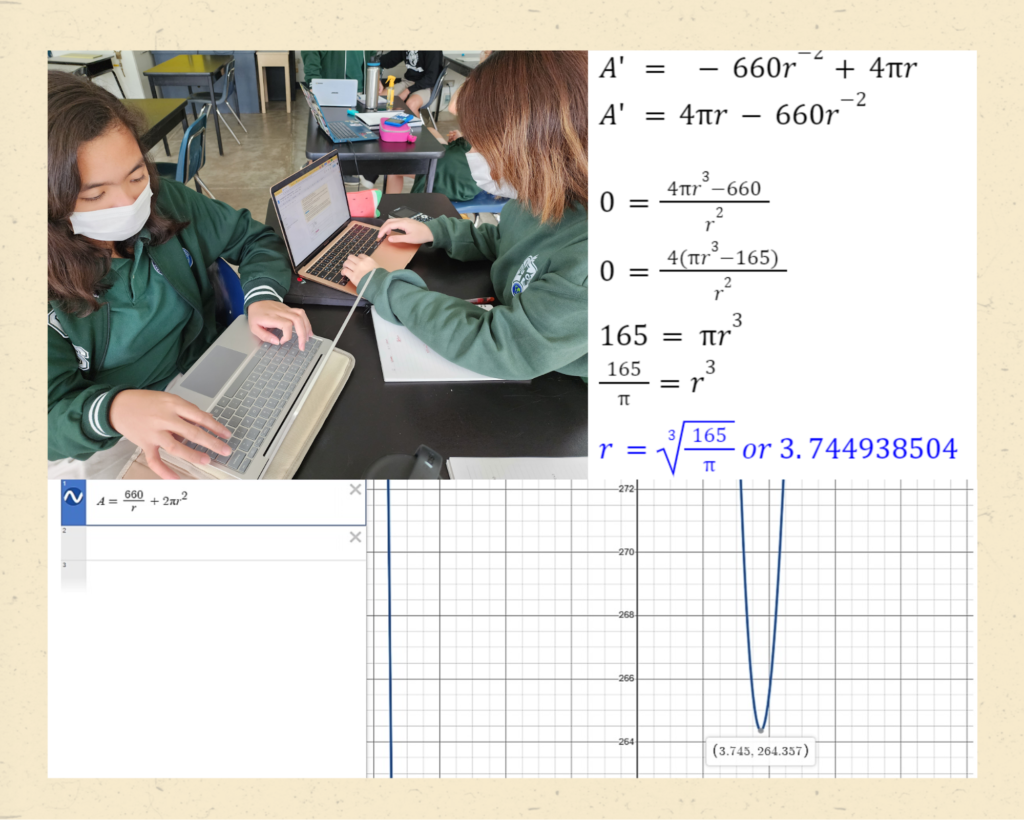


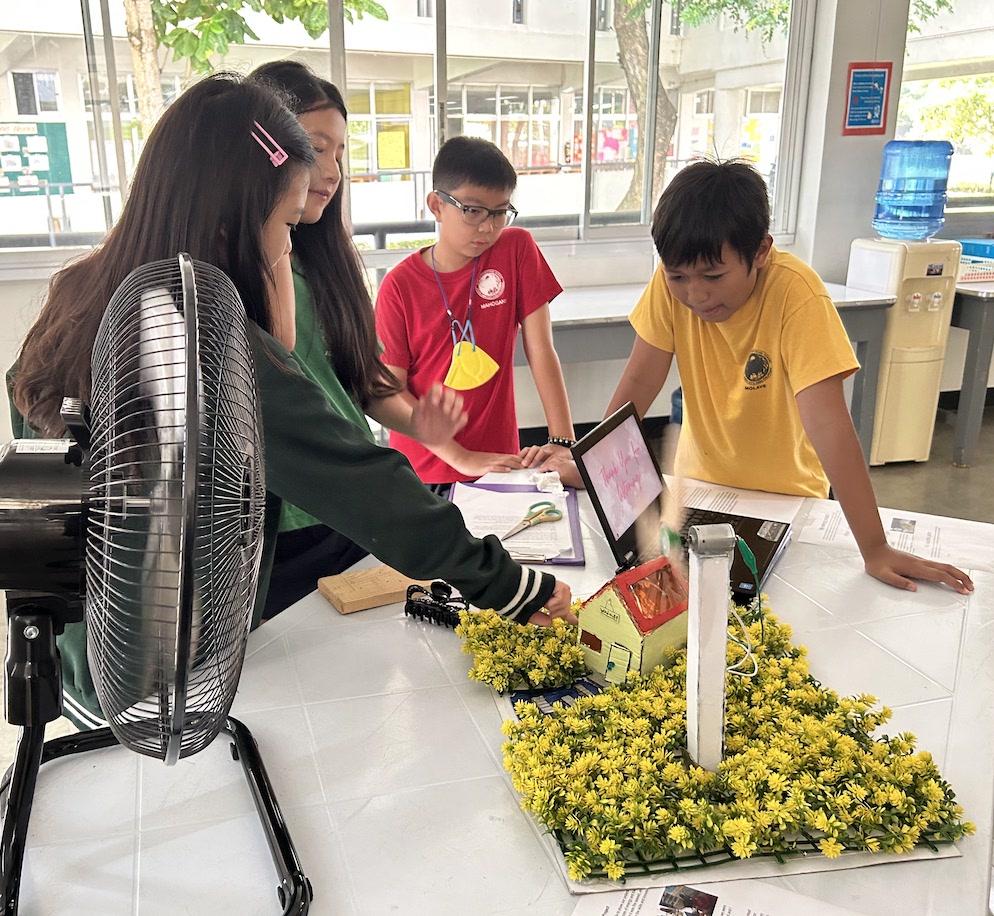 Our Grade 4 students have been learning about renewable energy and as part of this have engaged in an engineering component which had them move through the design process to build windmills that could successfully power the lights of a small house. Parents enjoyed the opportunity to hear about this process and also learn more about the nature of various renewable energy sources and how students believe they may be deployed to support humanity while recognising the impact on the environment.
Our Grade 4 students have been learning about renewable energy and as part of this have engaged in an engineering component which had them move through the design process to build windmills that could successfully power the lights of a small house. Parents enjoyed the opportunity to hear about this process and also learn more about the nature of various renewable energy sources and how students believe they may be deployed to support humanity while recognising the impact on the environment.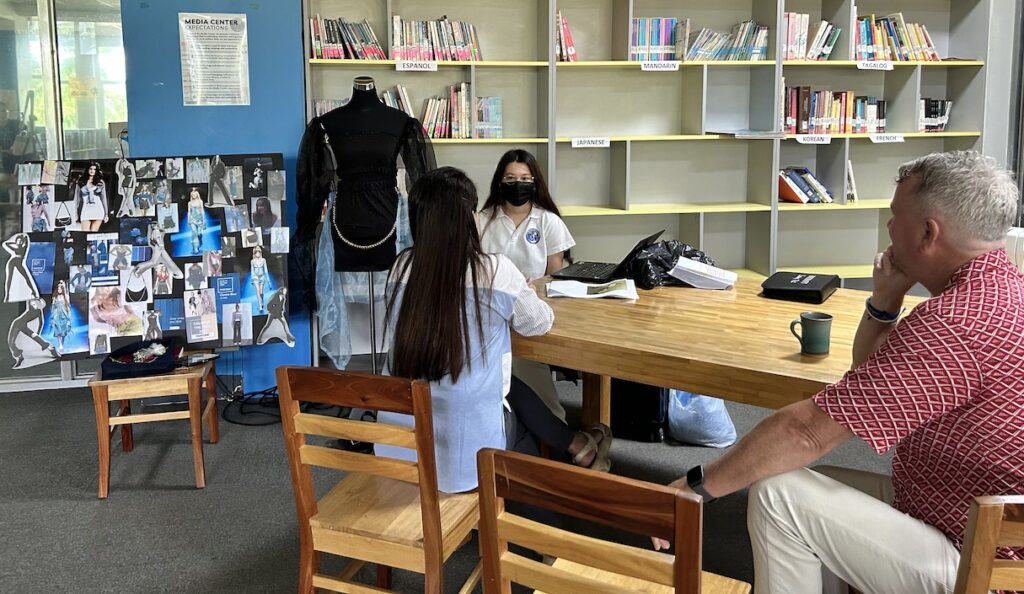 Projects included fashion design, music composition, dance choreography, robotics, and computer design.
Projects included fashion design, music composition, dance choreography, robotics, and computer design.
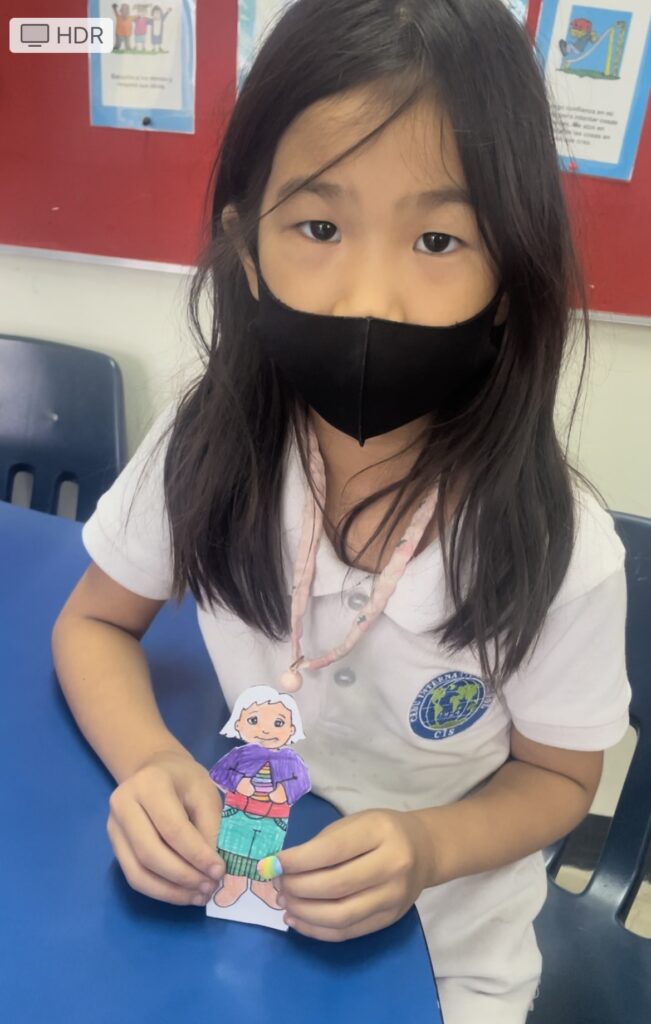
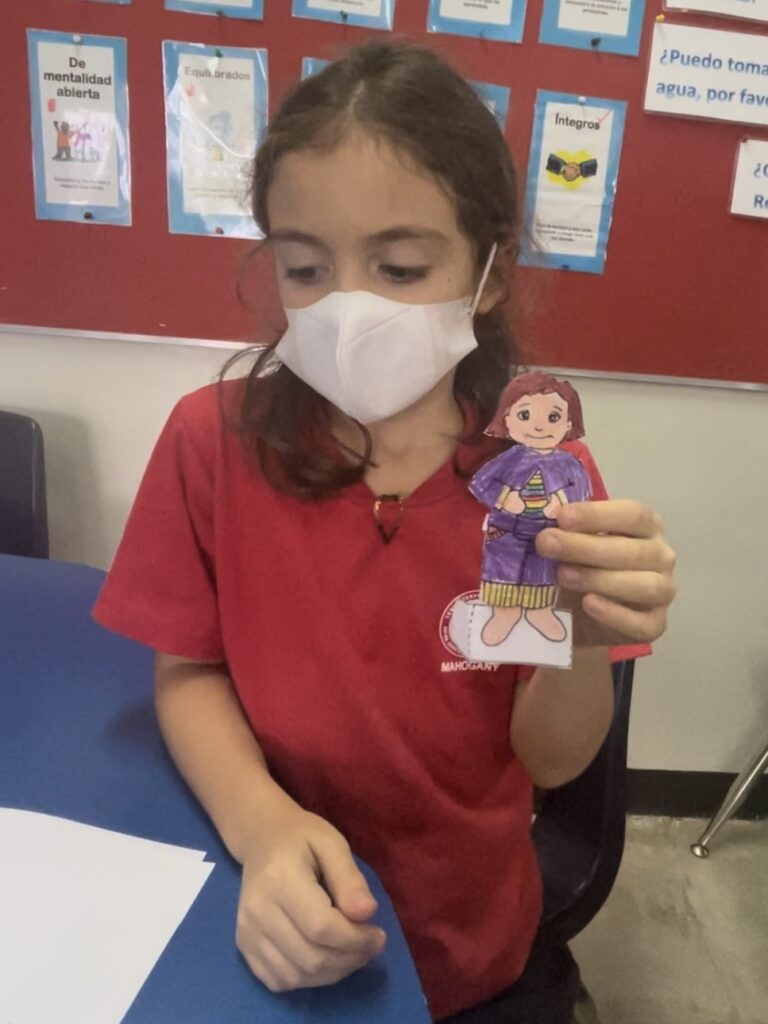
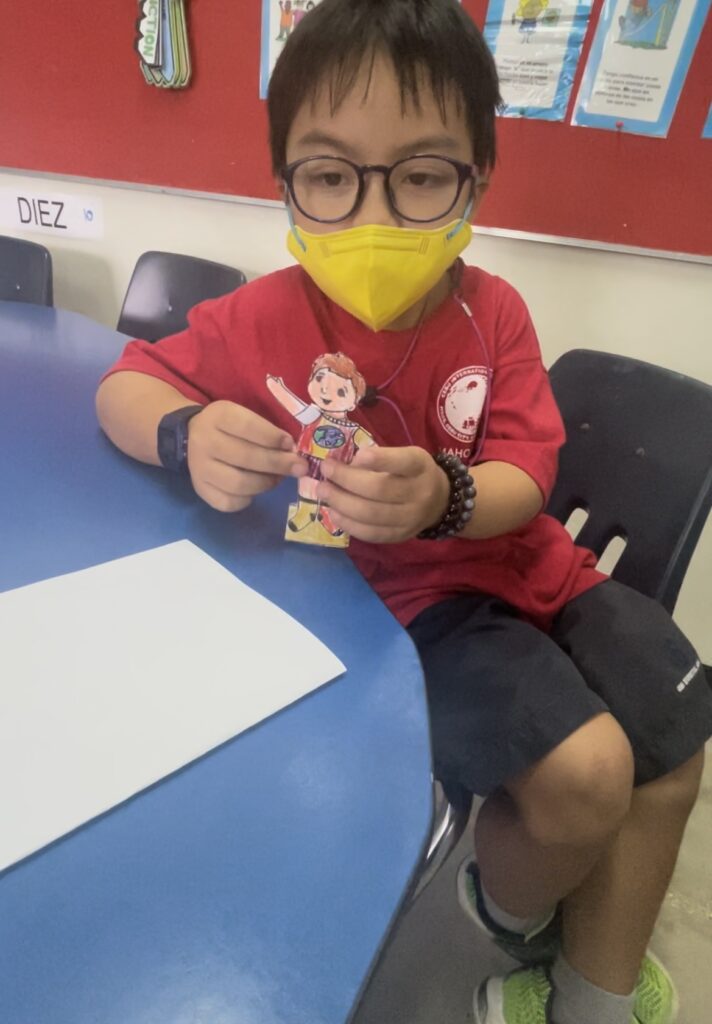
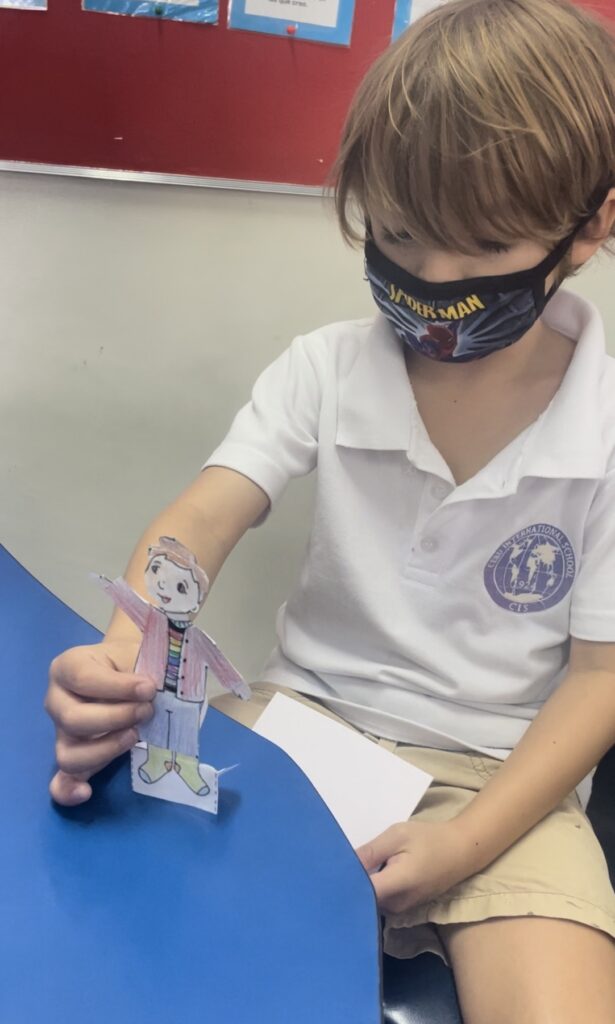
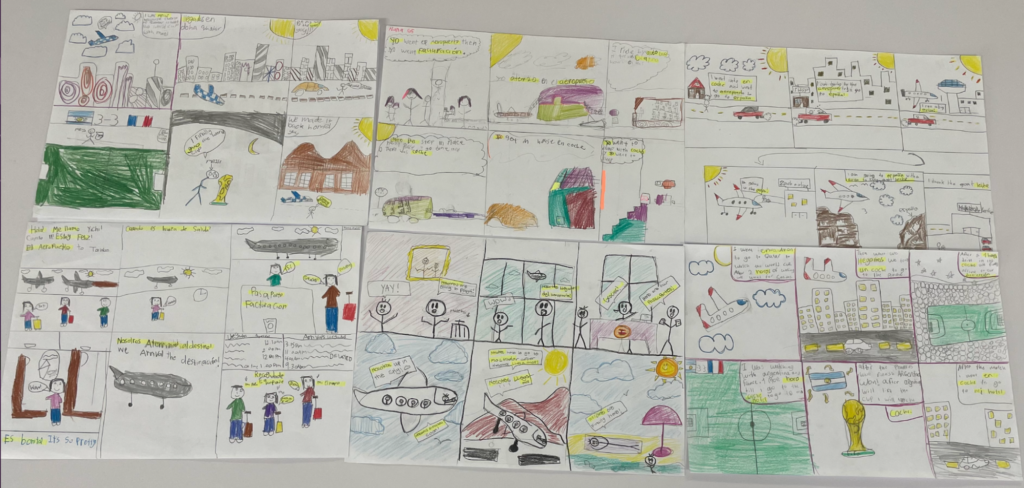
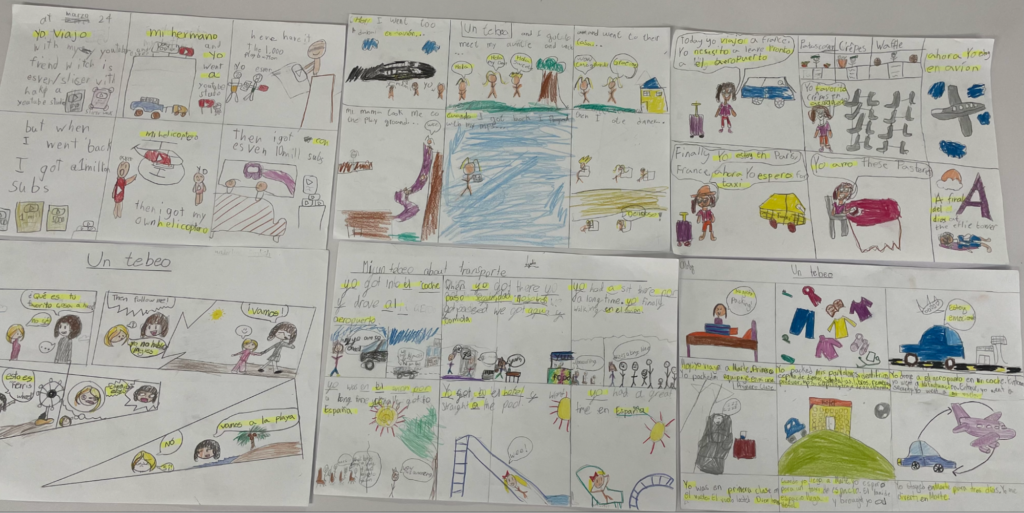
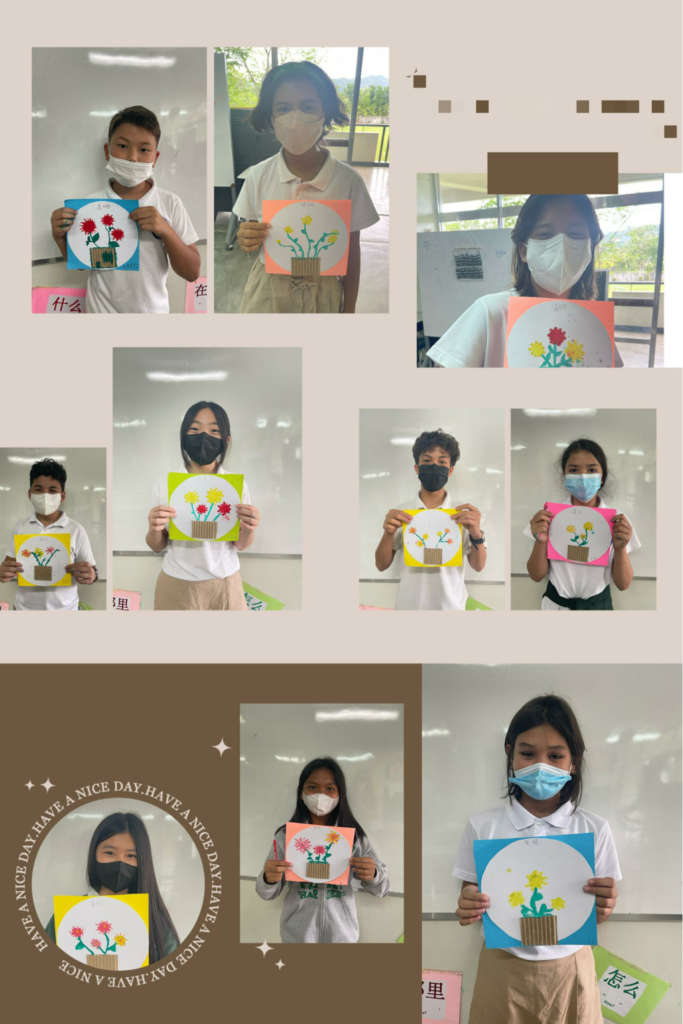
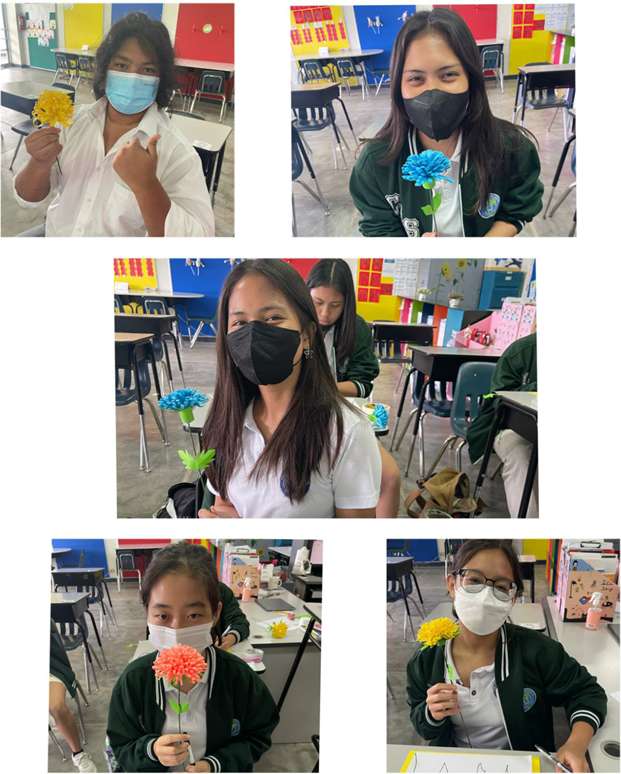
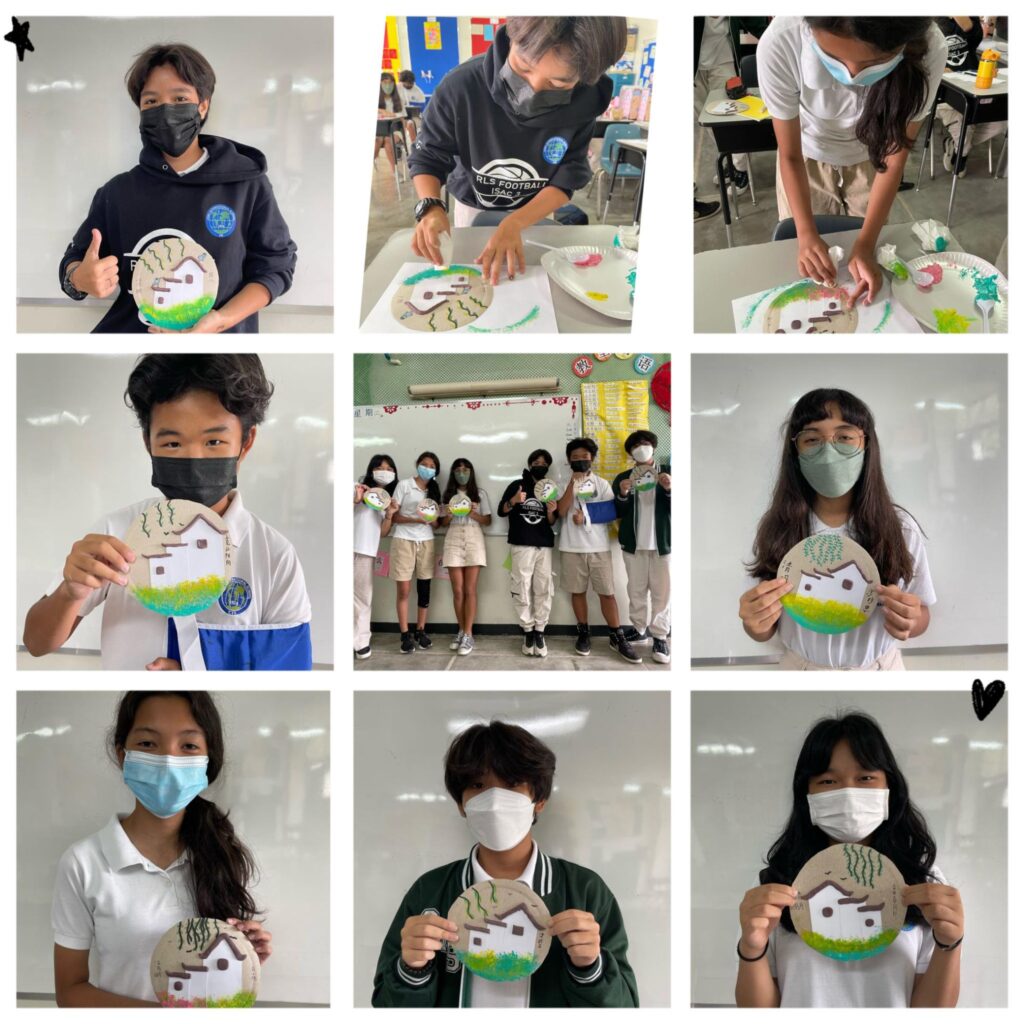
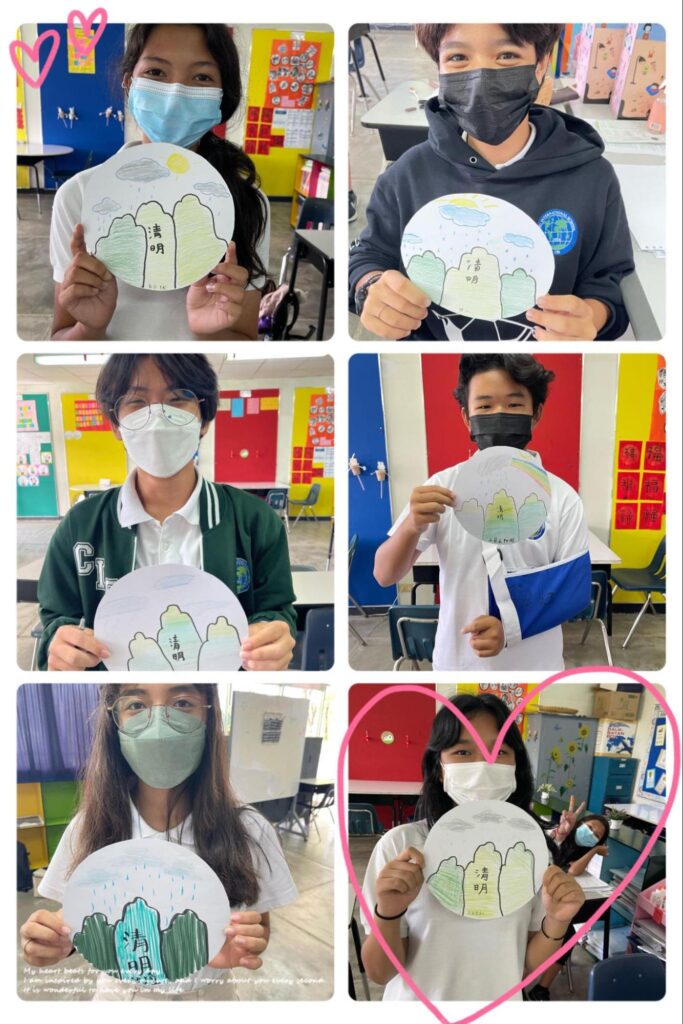
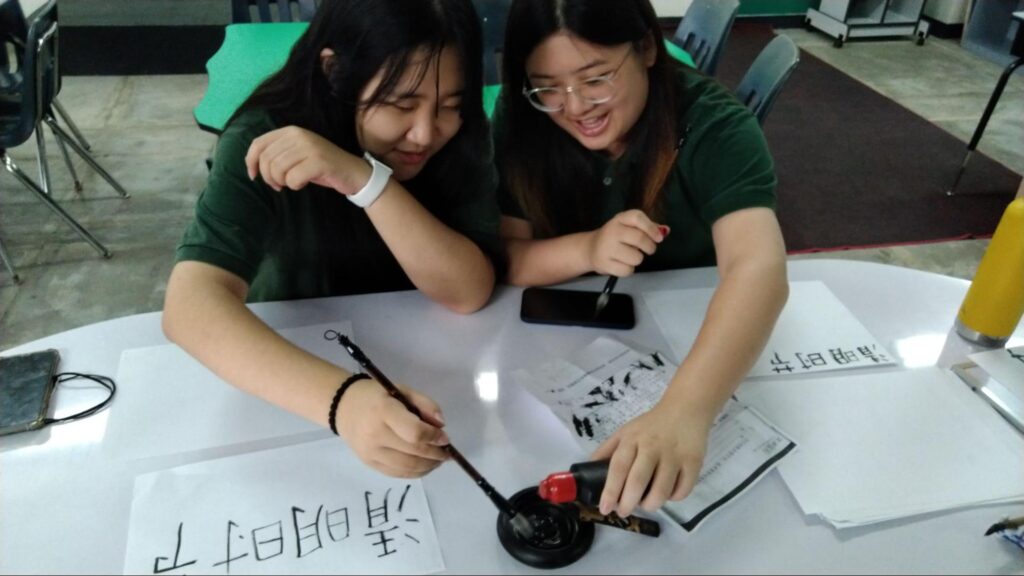
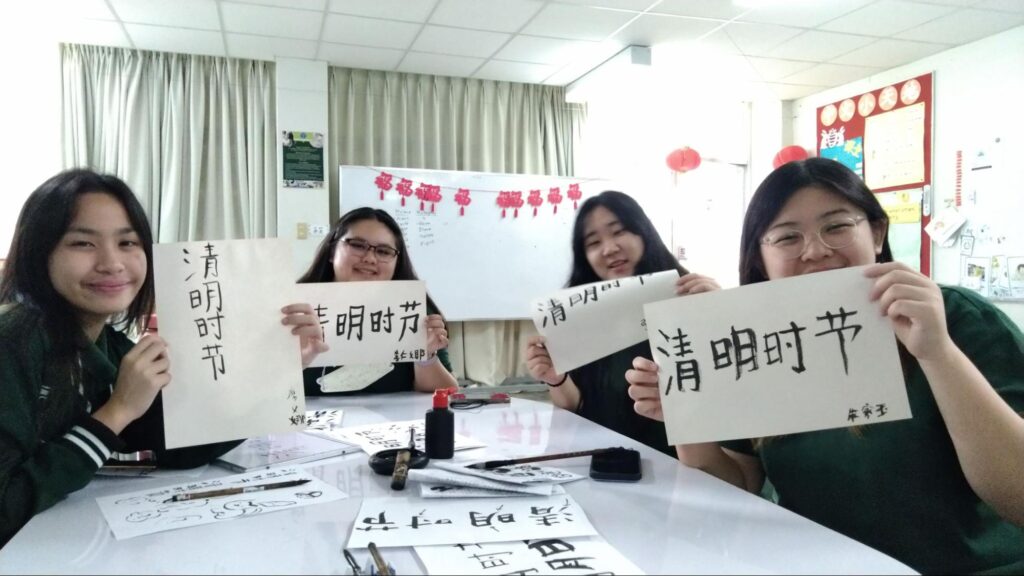
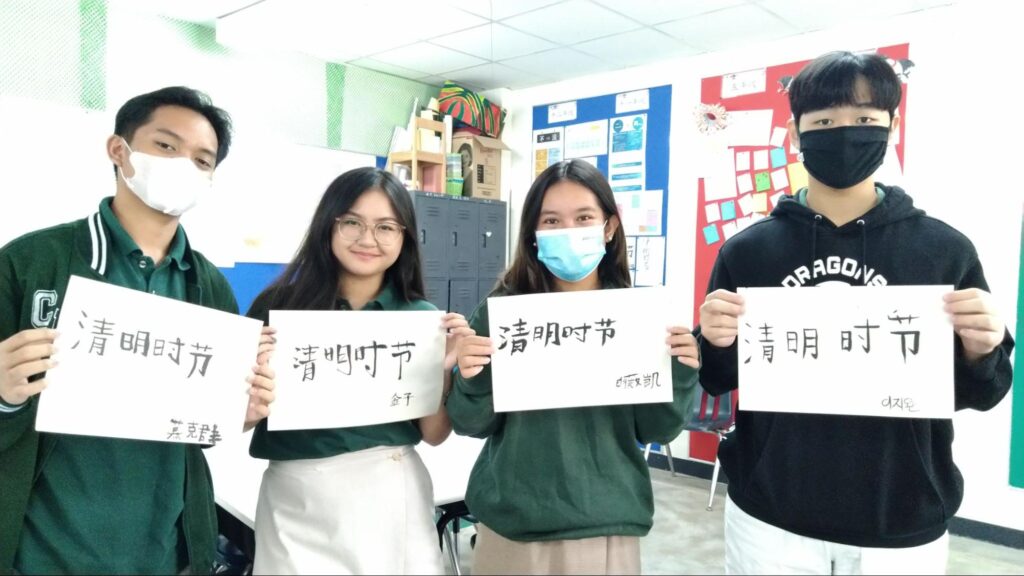
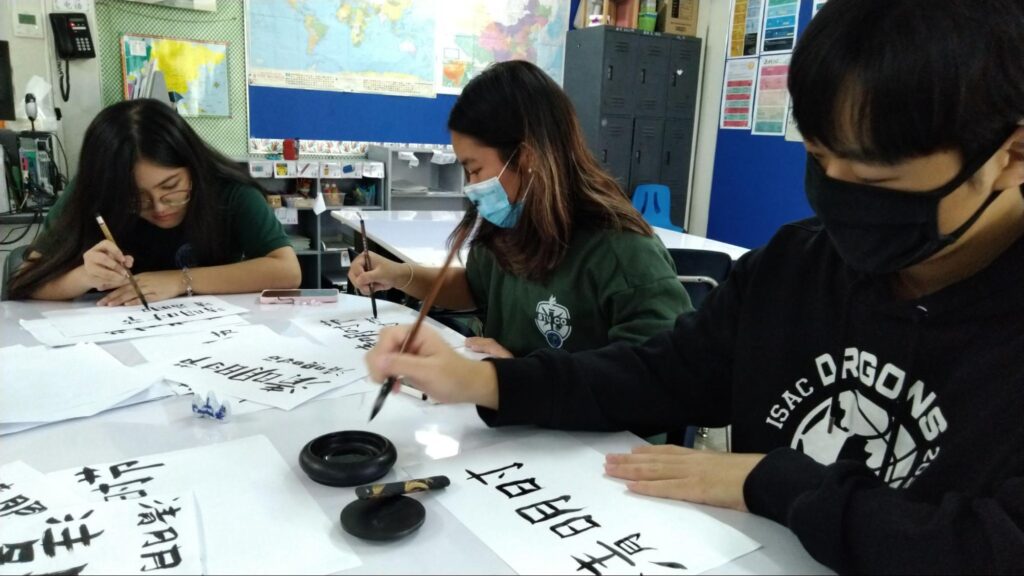
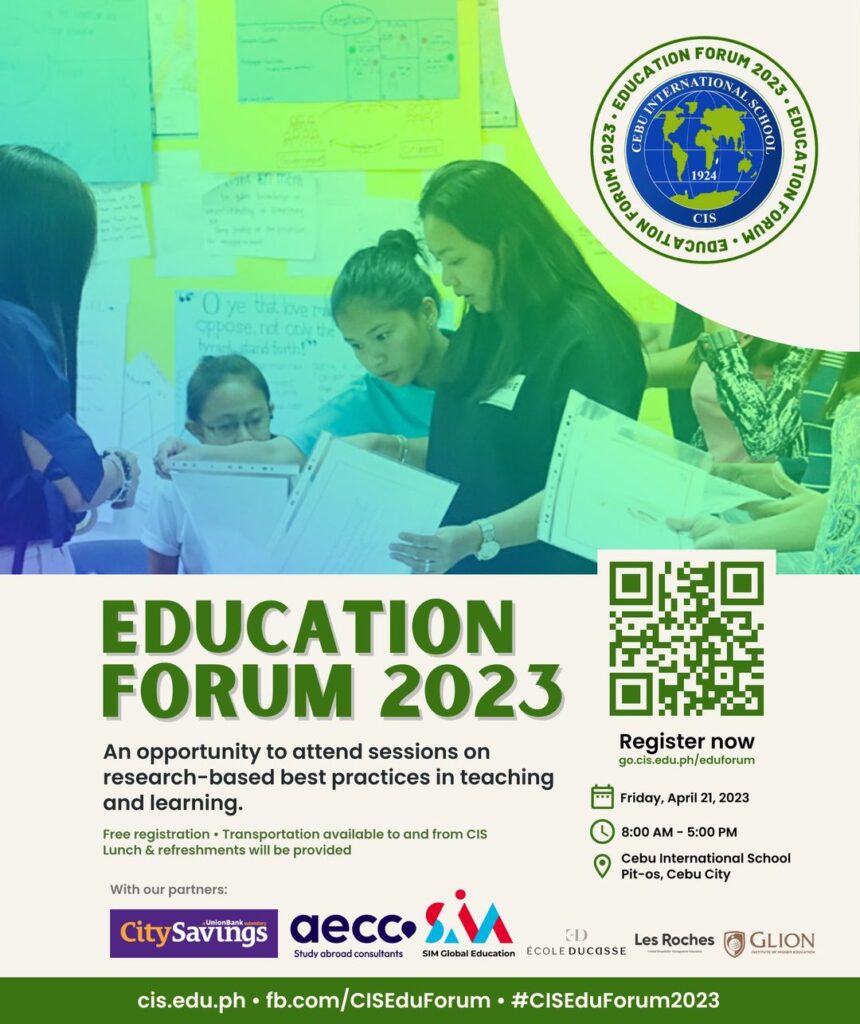
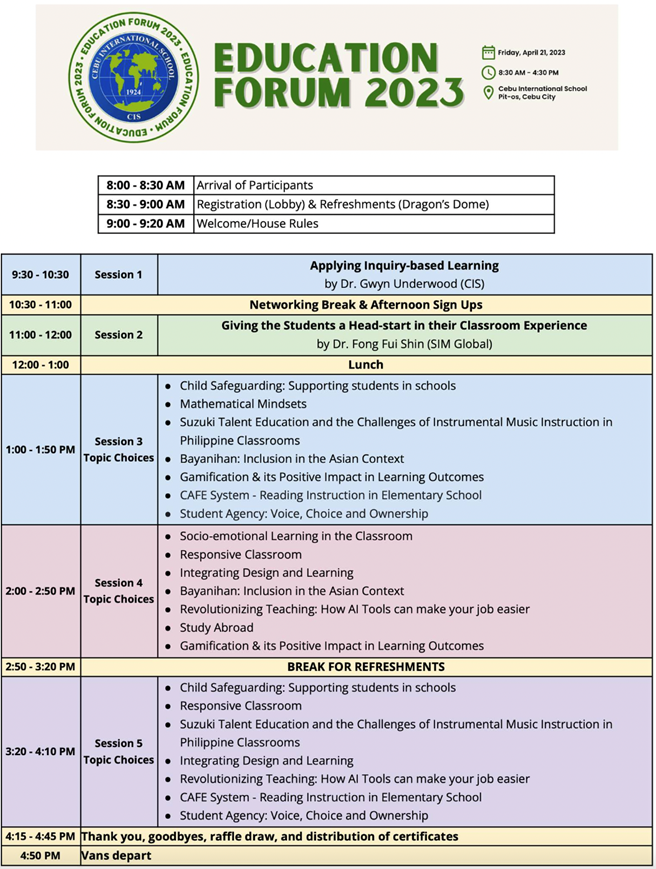

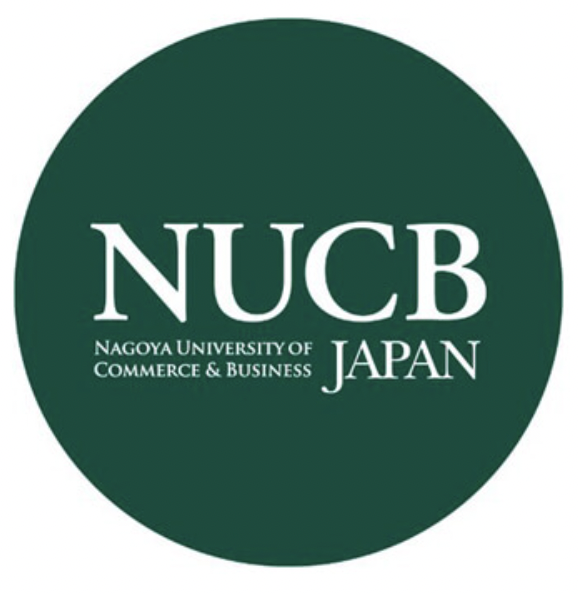
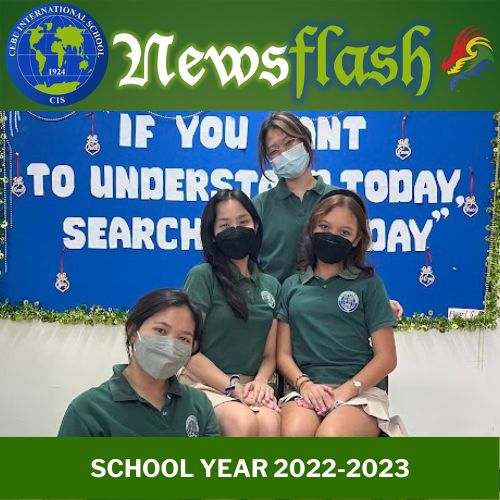
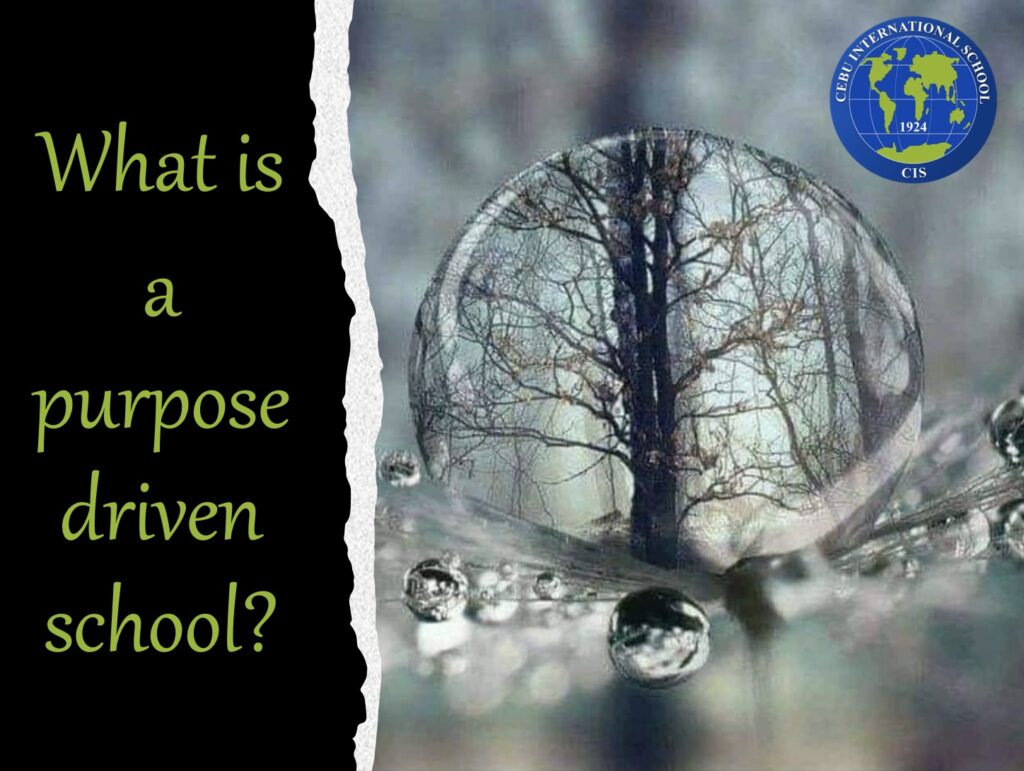
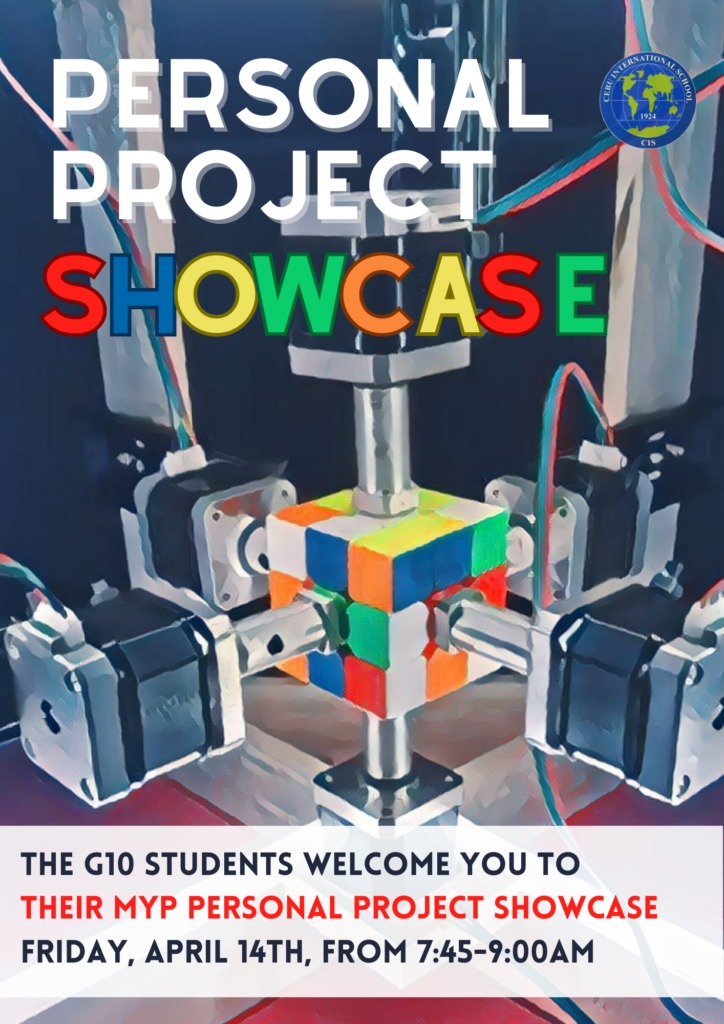
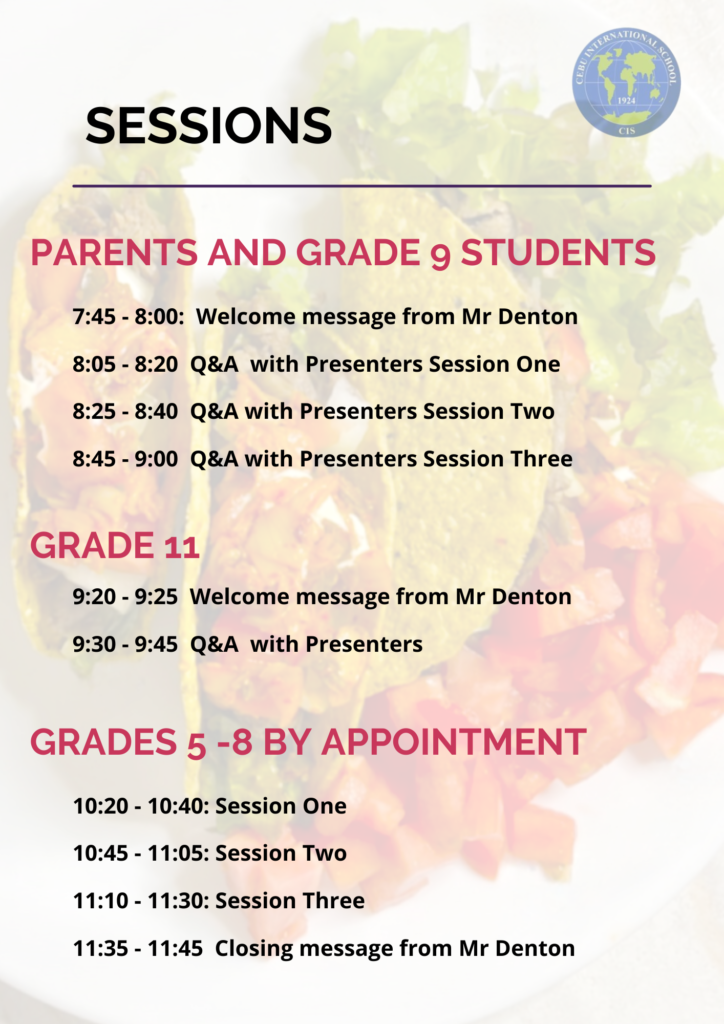
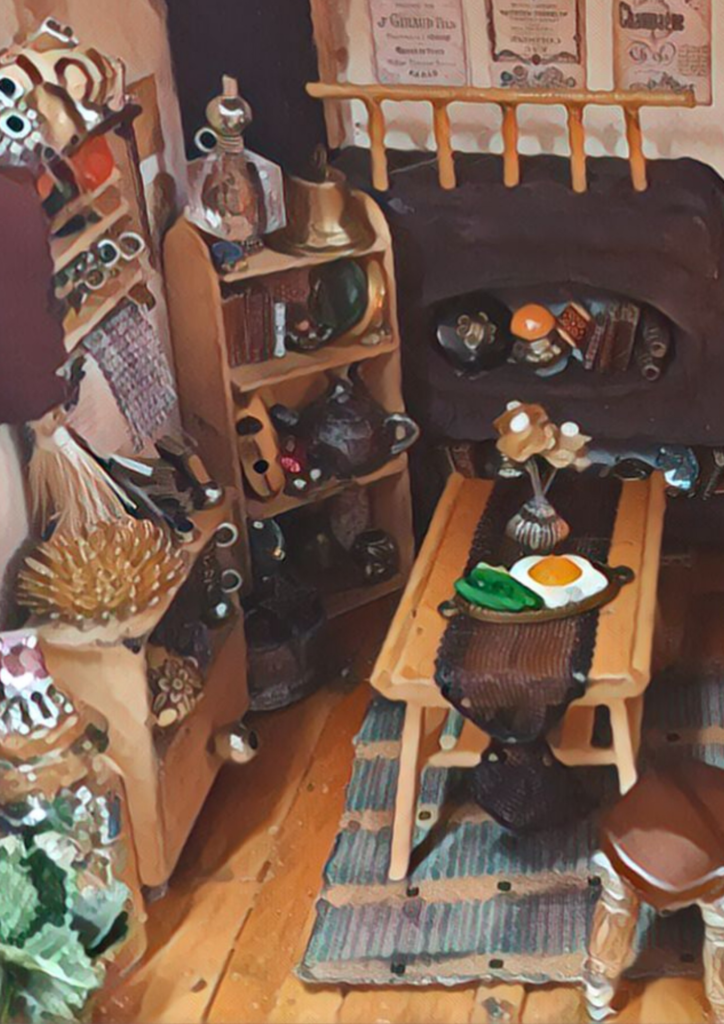
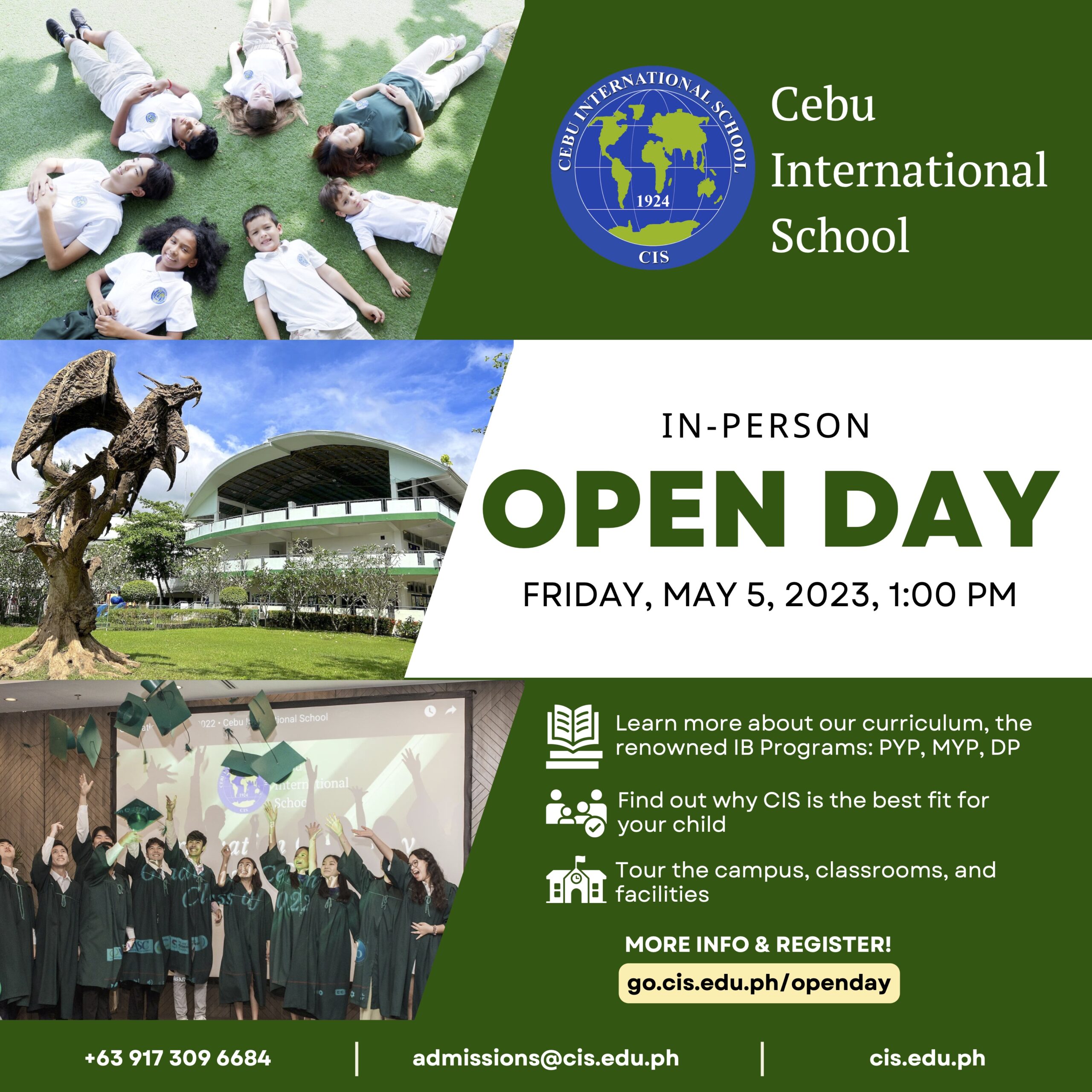
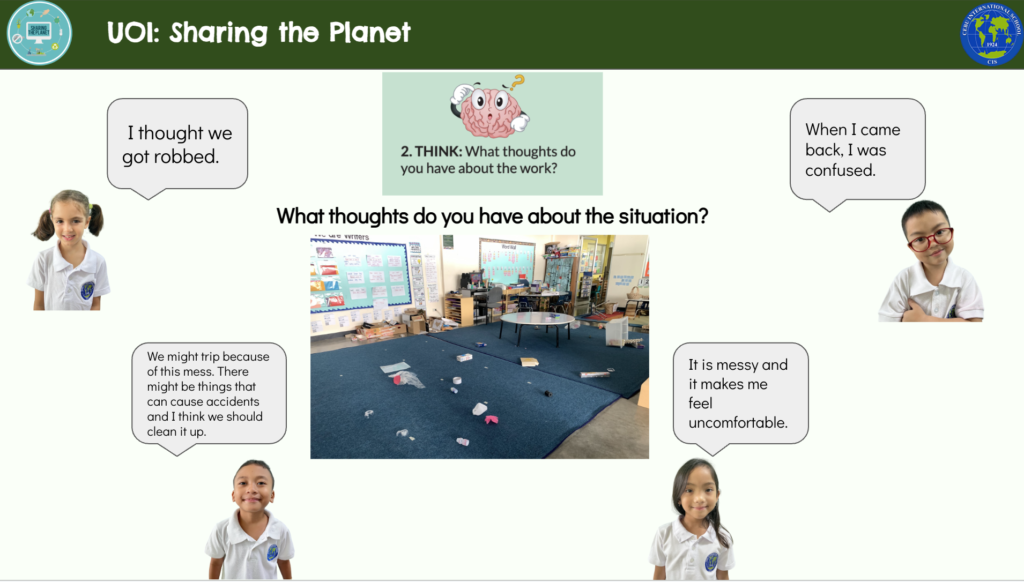
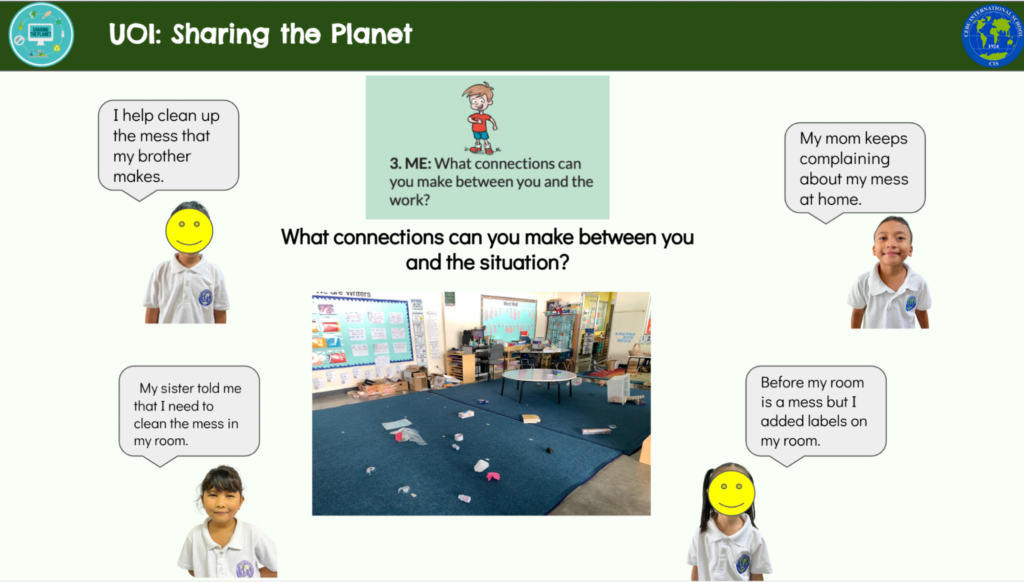
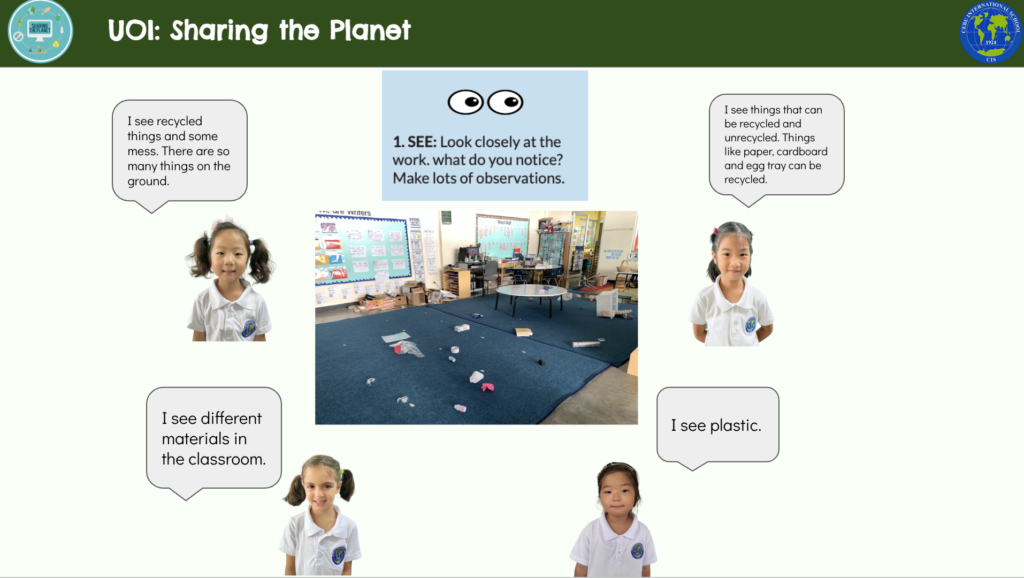
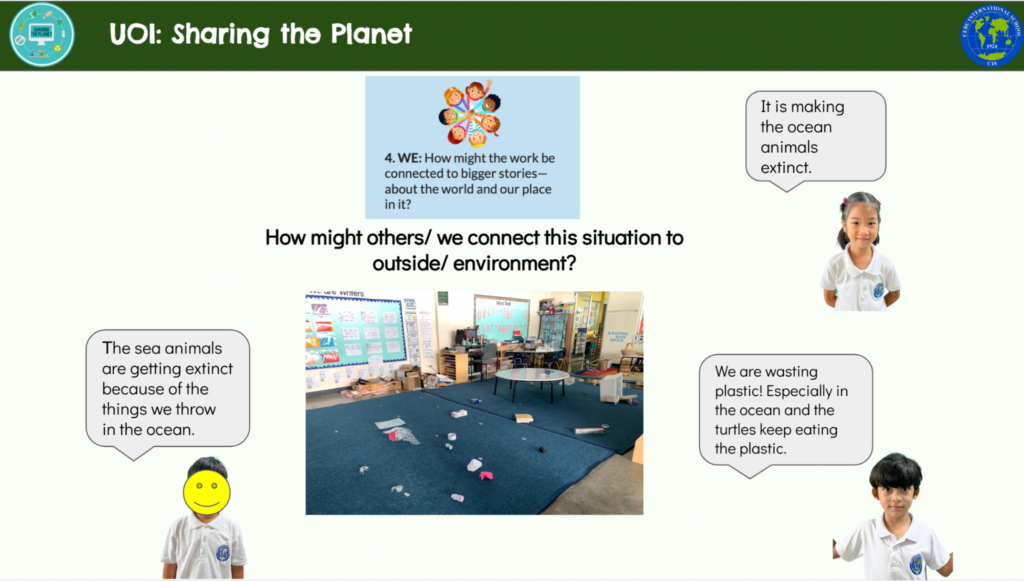
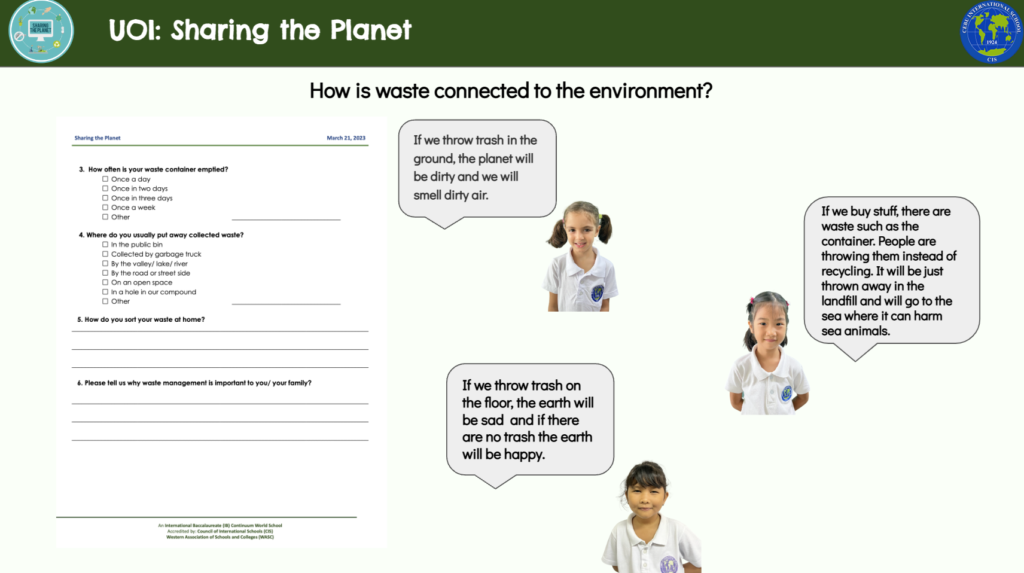
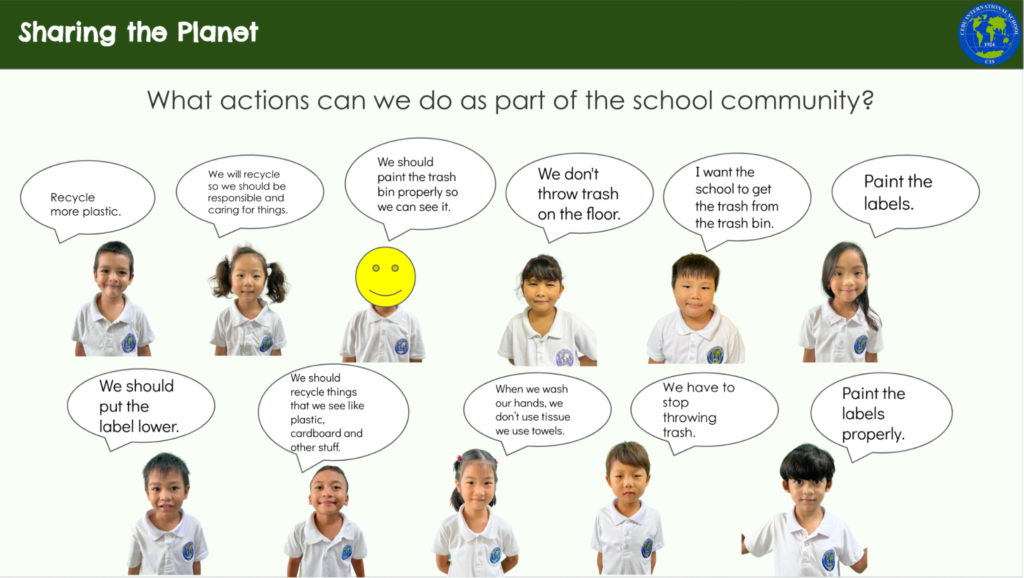
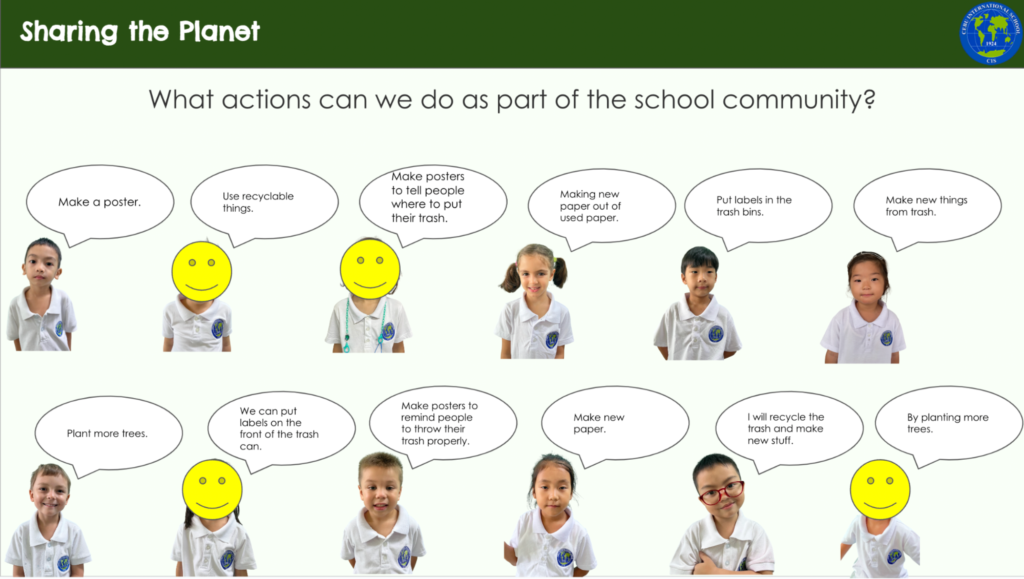
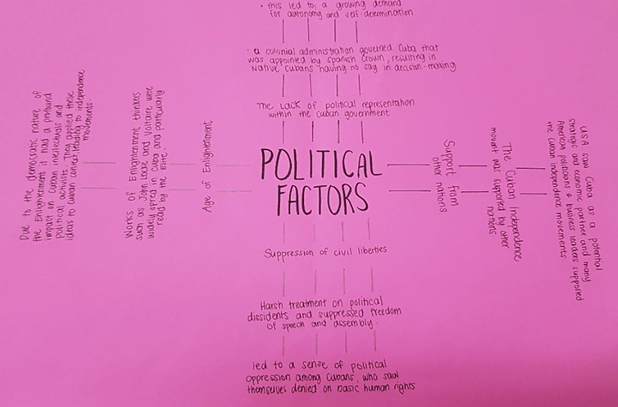
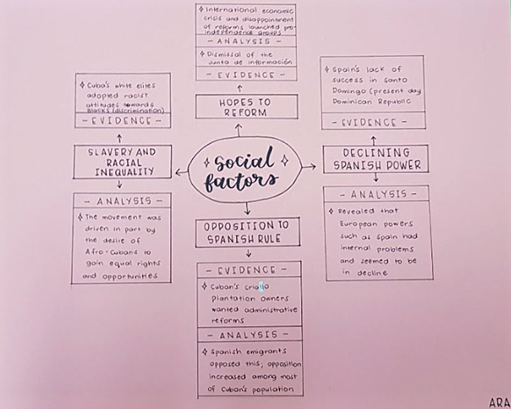
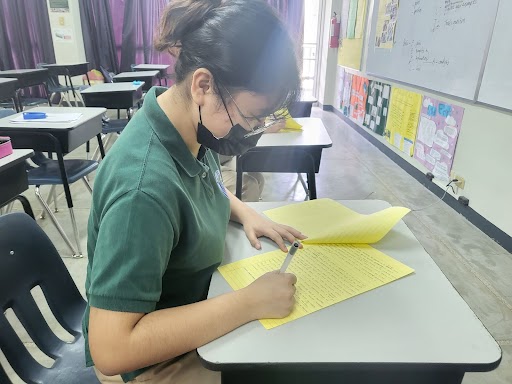
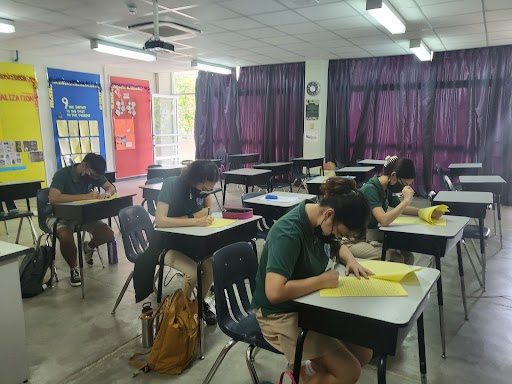

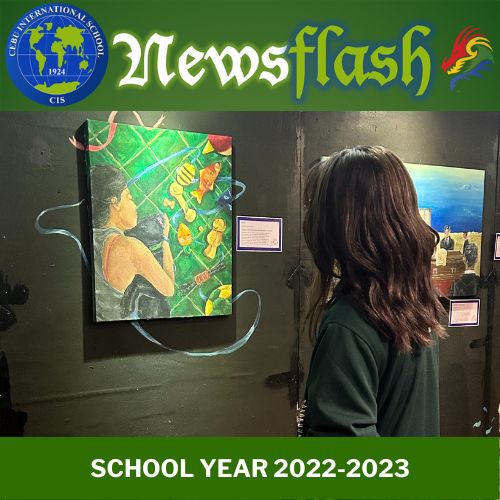
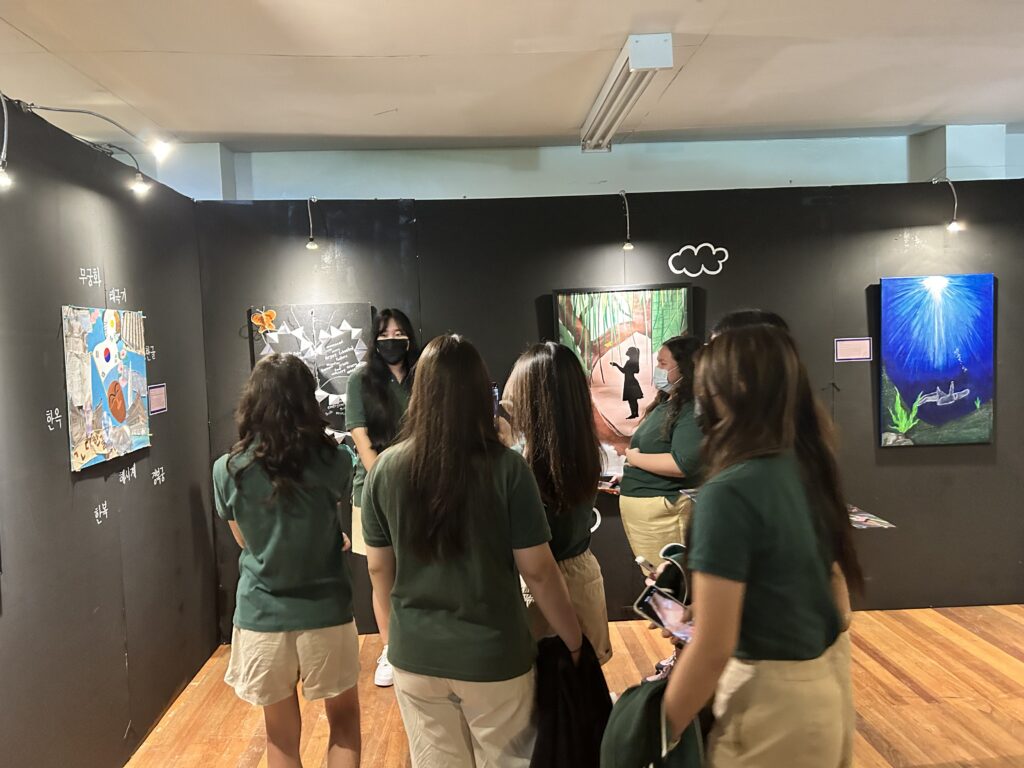 traveled to Aldawon Farm for a variety of engaging experiences relating to their units of inquiry, while a group of our older students traveled to Manila to participate in ISAC basketball and soccer competitions. Our Grade 10 students are nearing the end of their Personal Project and they engaged in evaluative meetings with students and teachers across the school to get feedback on the degree to which they met their learning product goals. We have also had an array of college preparatory events on campus this week that concluded with a highly successful College Fair for our Grade 9-12 students. Our elementary students, led by the Student Council, also celebrated their learning with their monthly assembly.
traveled to Aldawon Farm for a variety of engaging experiences relating to their units of inquiry, while a group of our older students traveled to Manila to participate in ISAC basketball and soccer competitions. Our Grade 10 students are nearing the end of their Personal Project and they engaged in evaluative meetings with students and teachers across the school to get feedback on the degree to which they met their learning product goals. We have also had an array of college preparatory events on campus this week that concluded with a highly successful College Fair for our Grade 9-12 students. Our elementary students, led by the Student Council, also celebrated their learning with their monthly assembly.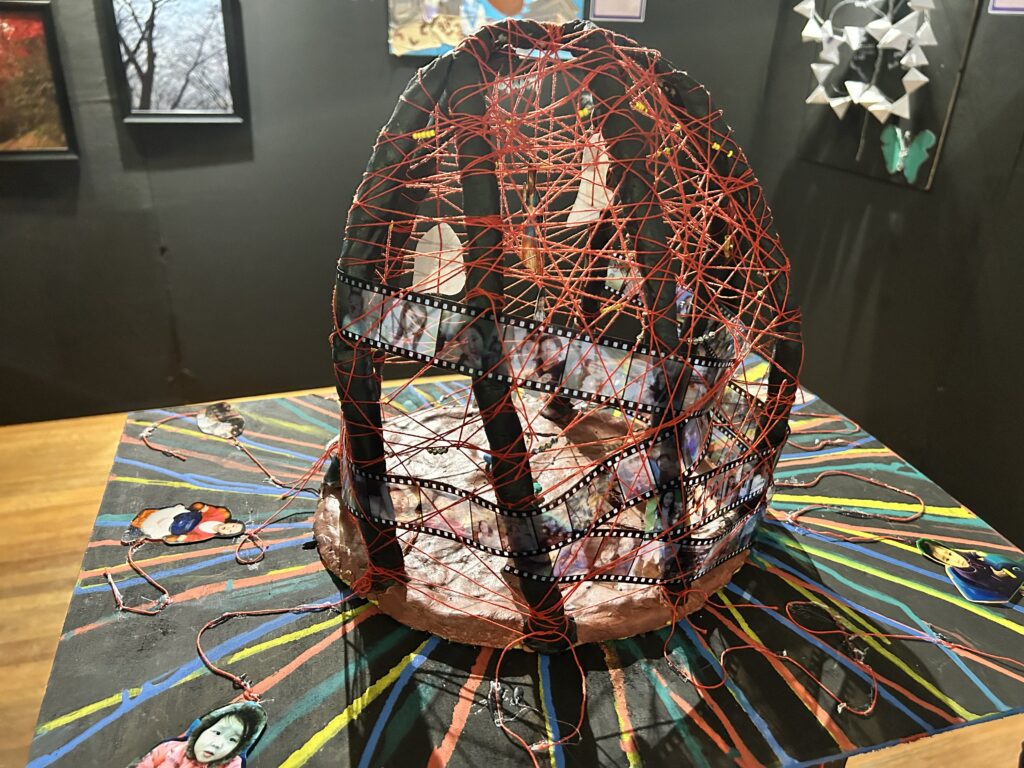
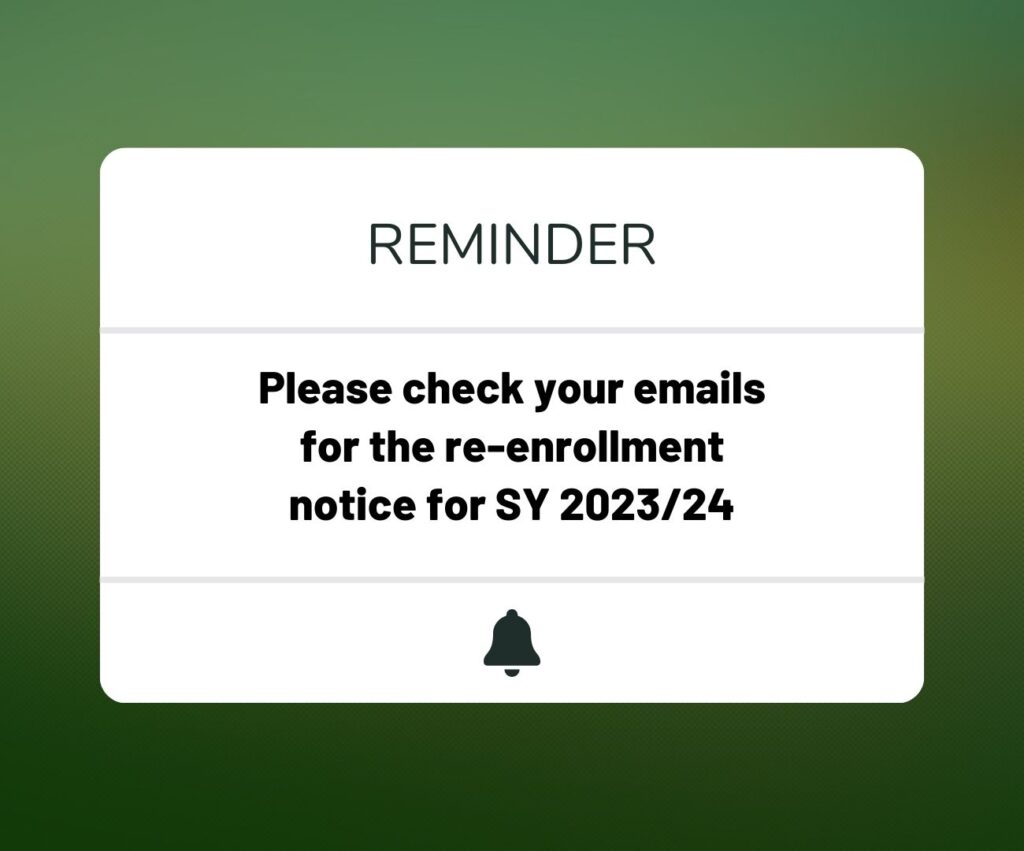
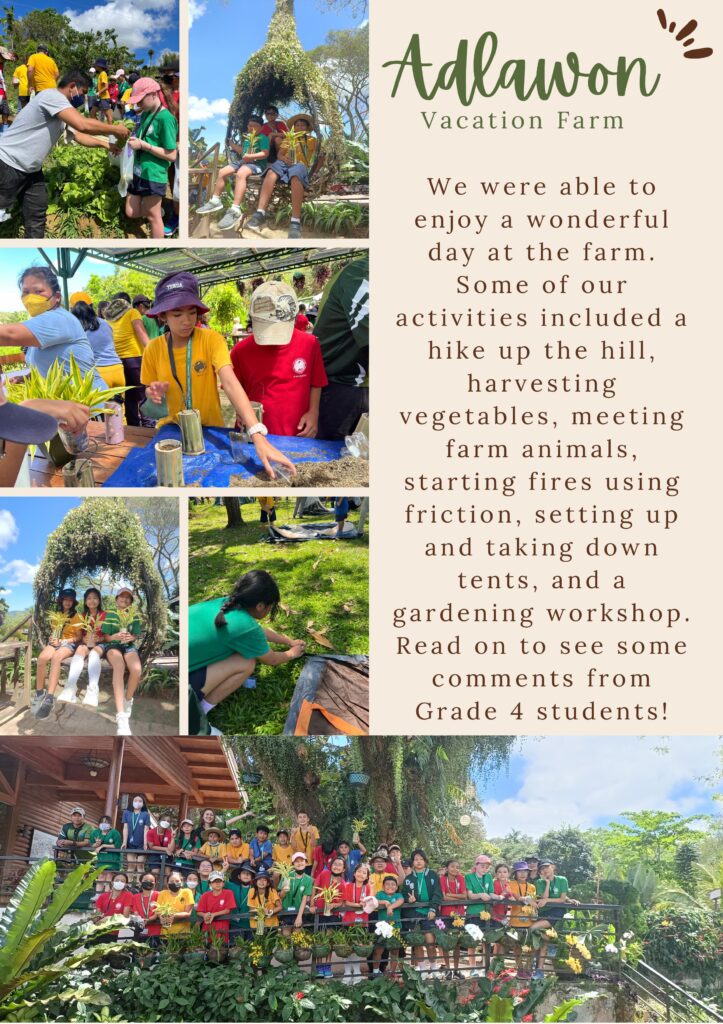
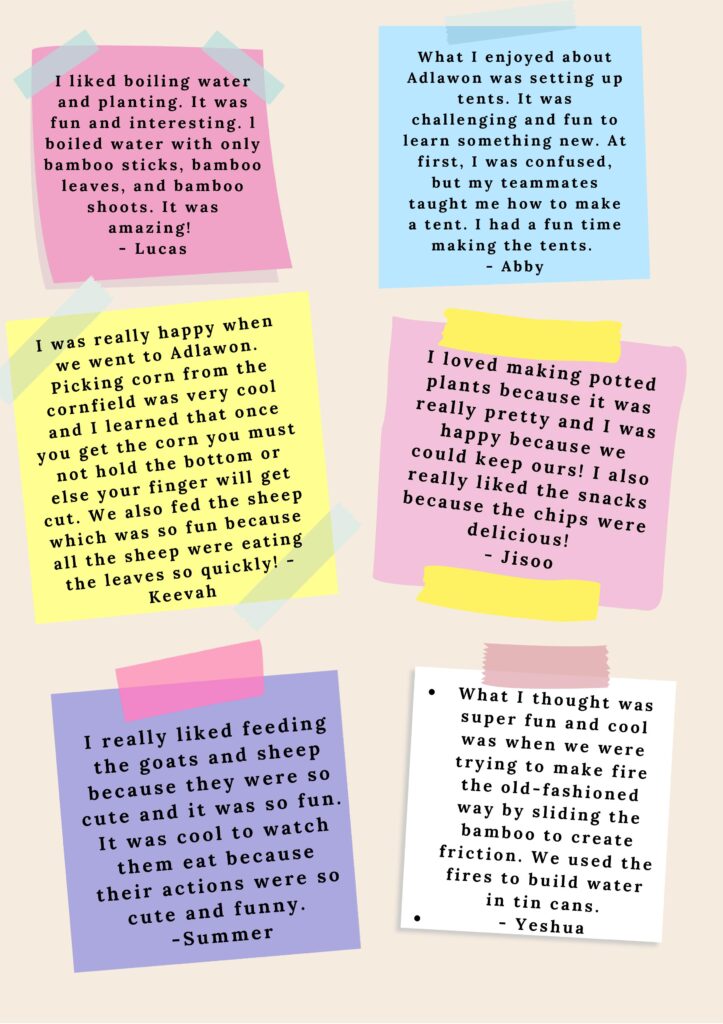

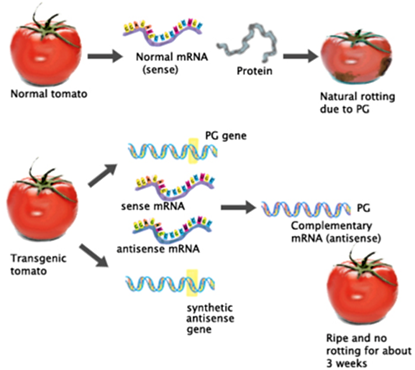
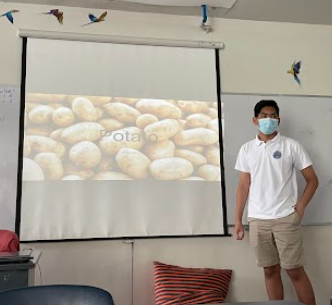
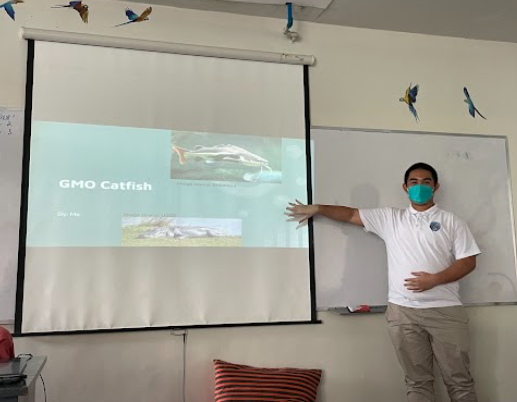
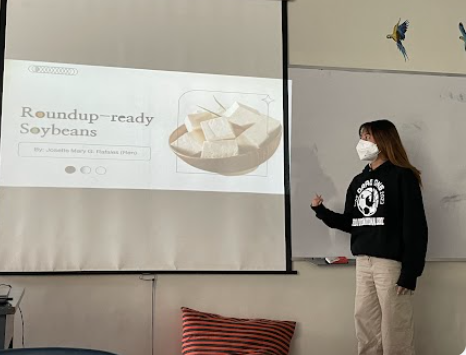
 Photosynthetic pigments play an important role in the process of photosynthesis by capturing different wavelengths of light.
Photosynthetic pigments play an important role in the process of photosynthesis by capturing different wavelengths of light.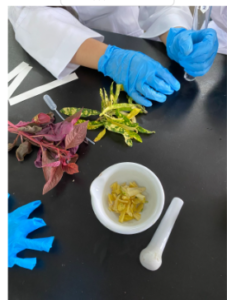
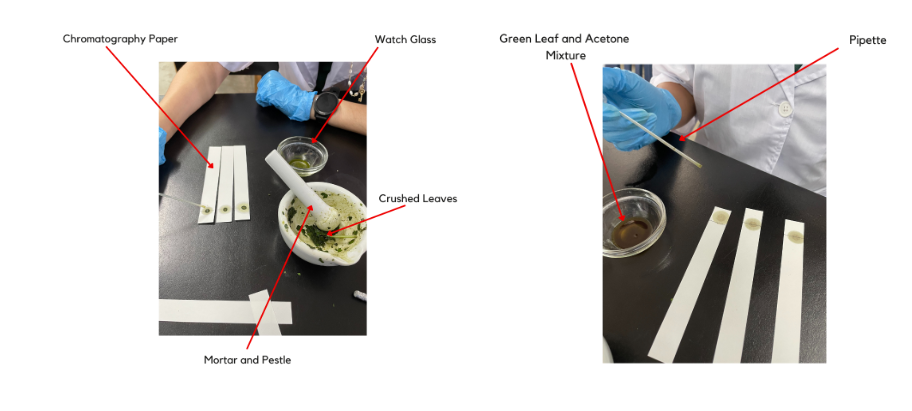
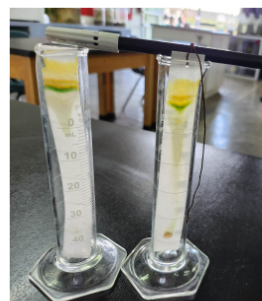
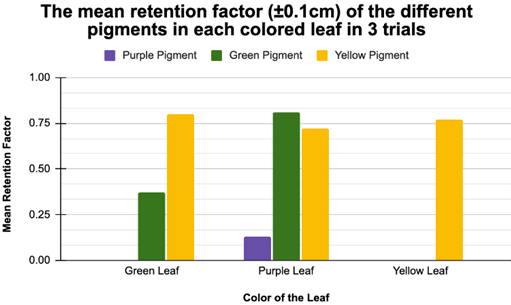
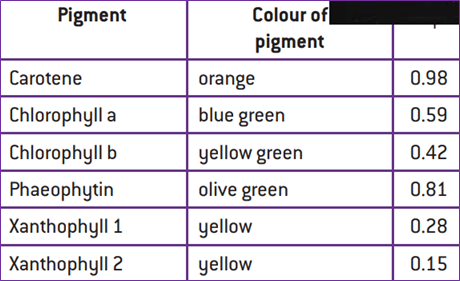
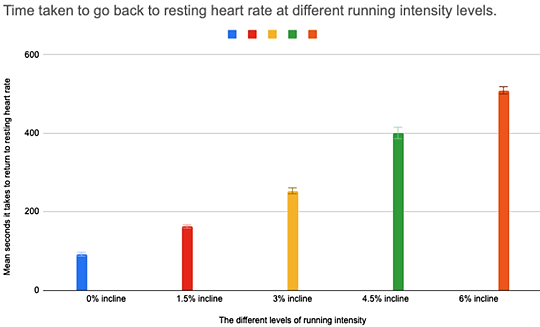
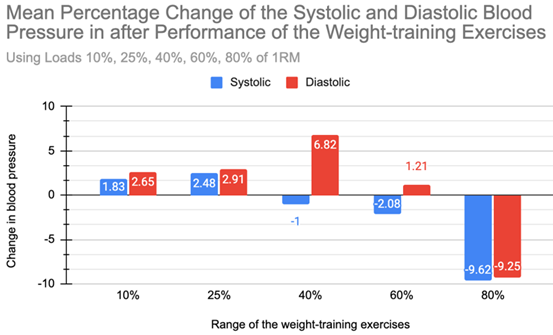
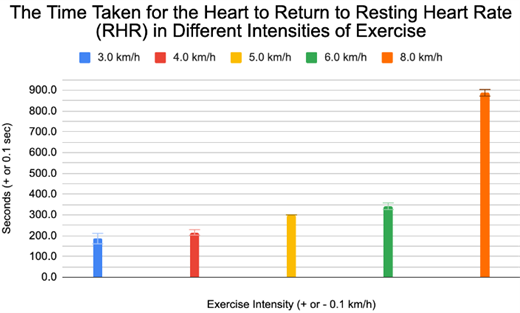
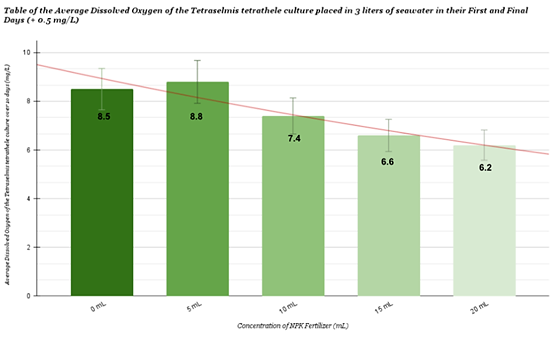
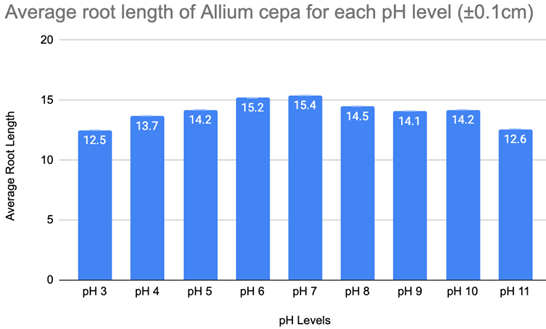
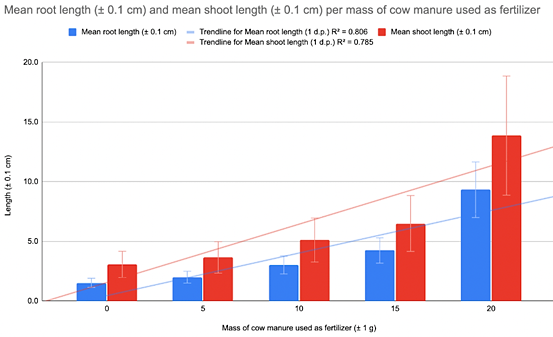
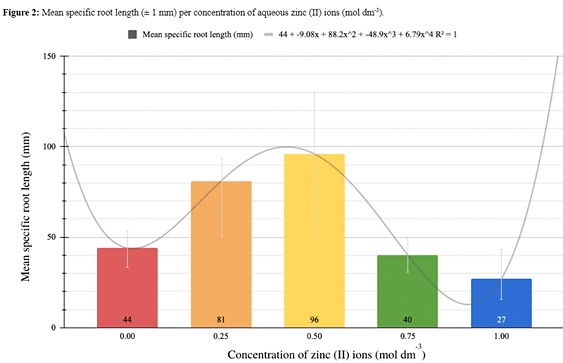
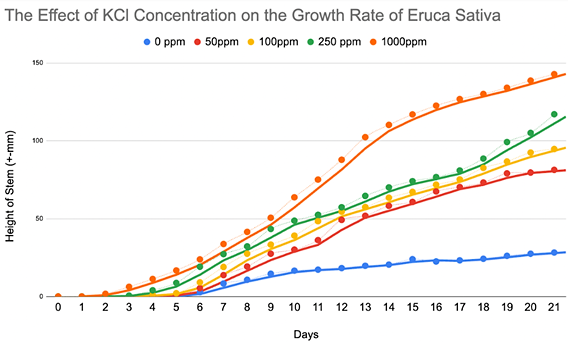
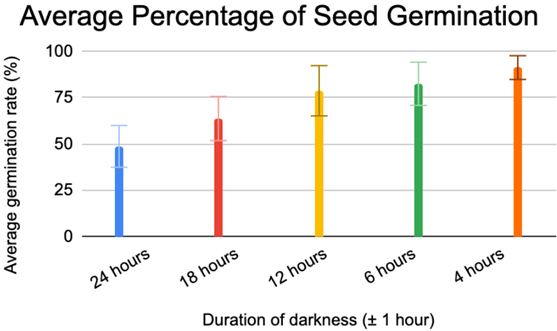
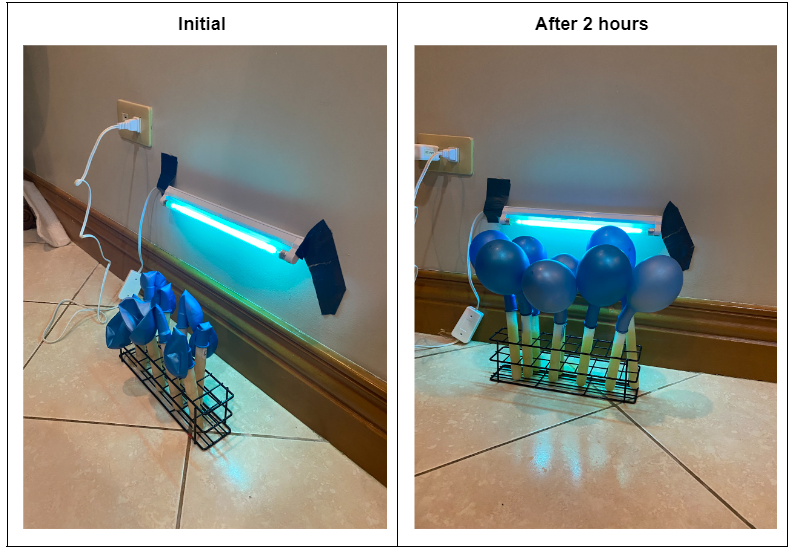
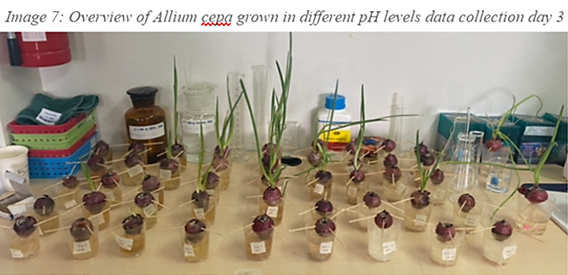
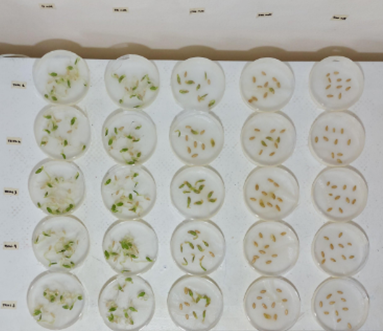

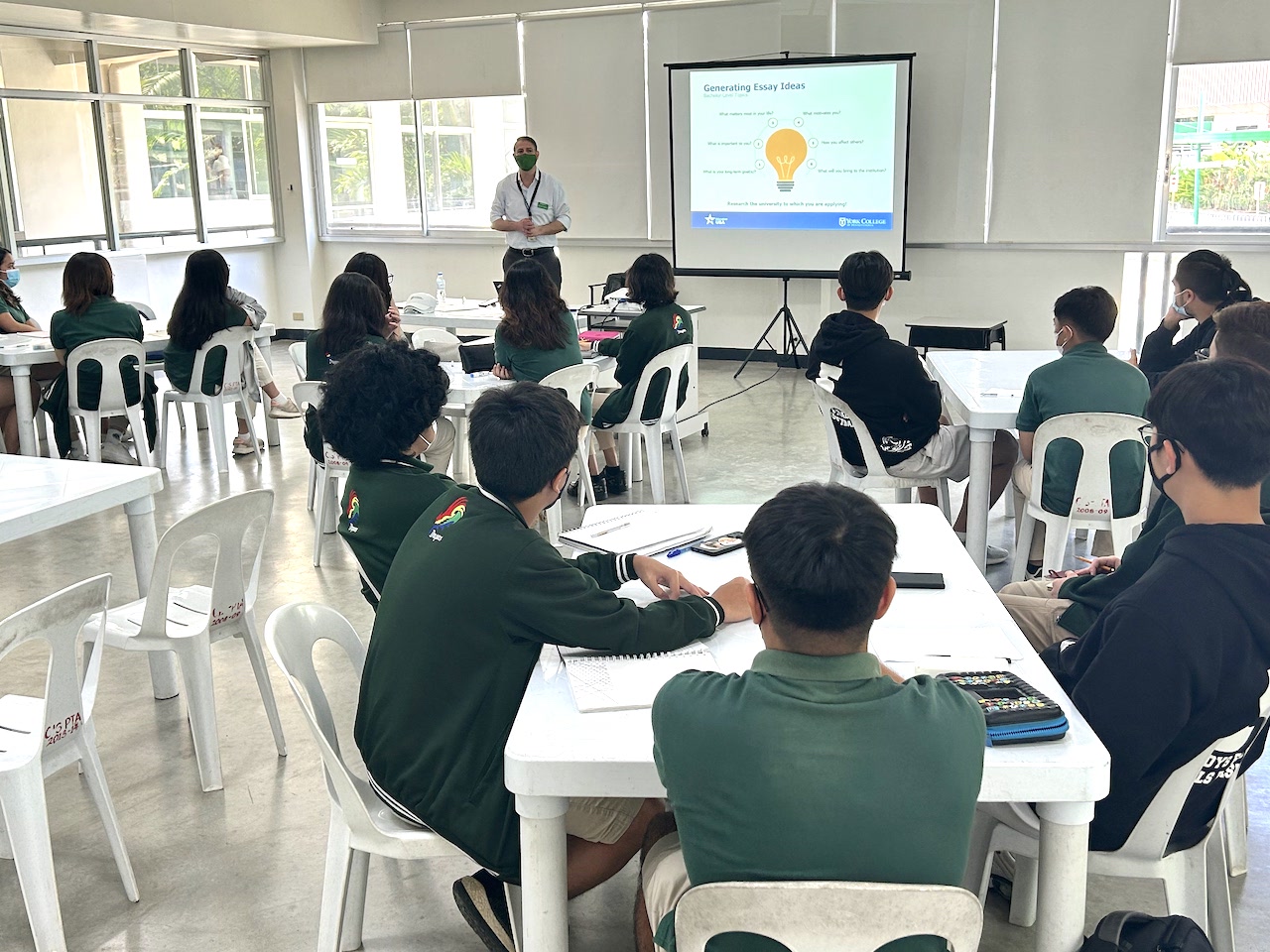
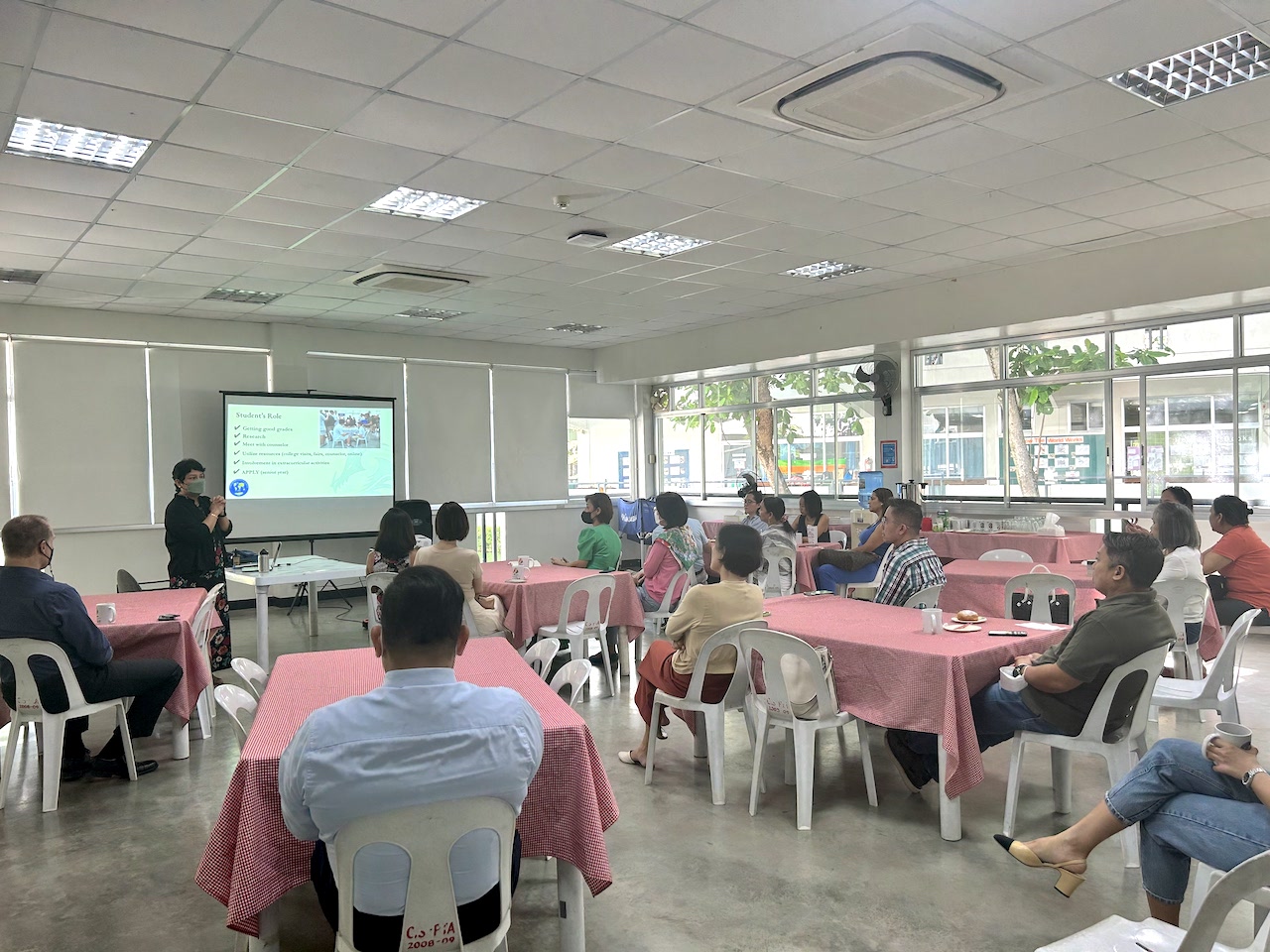
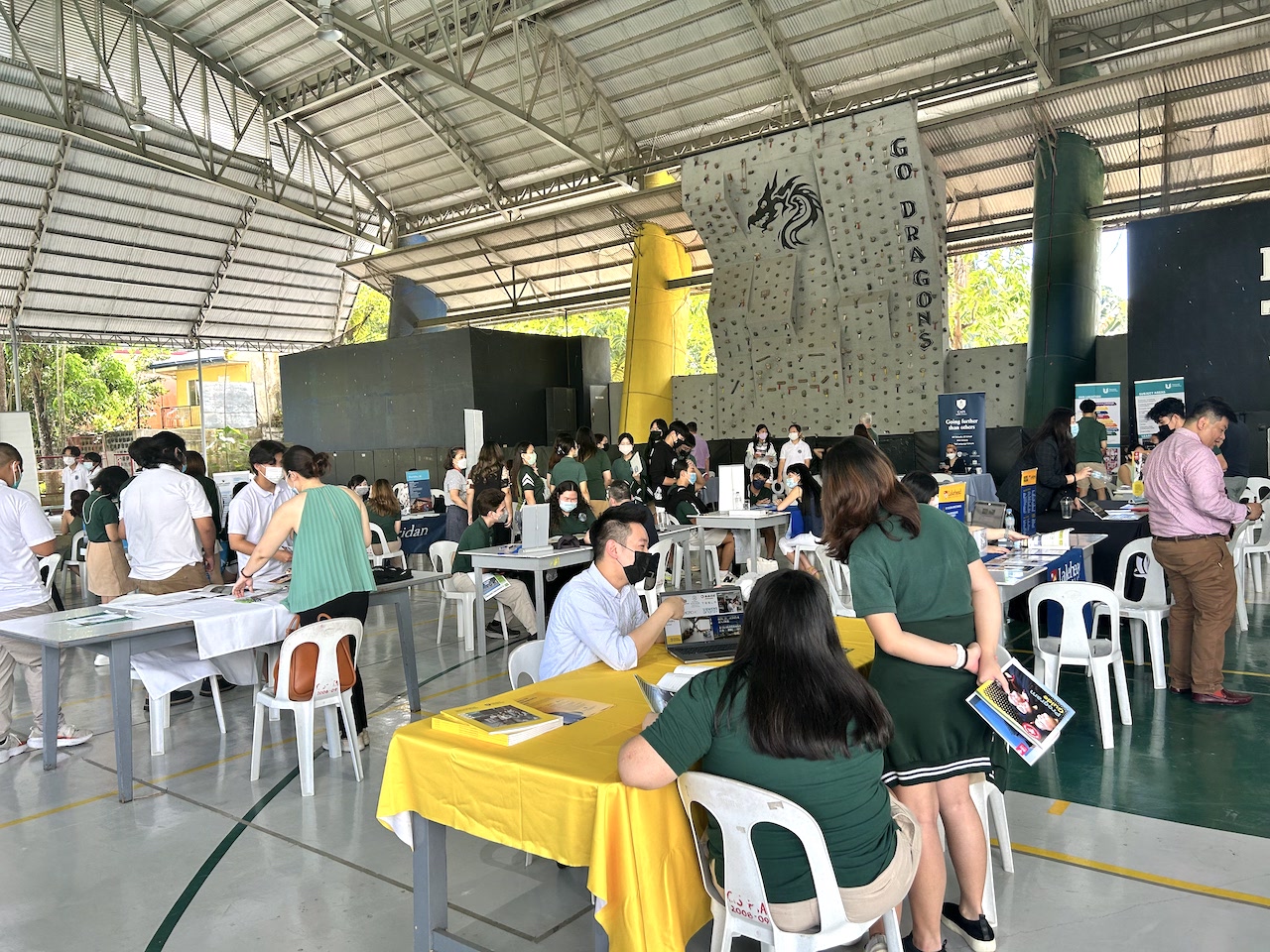

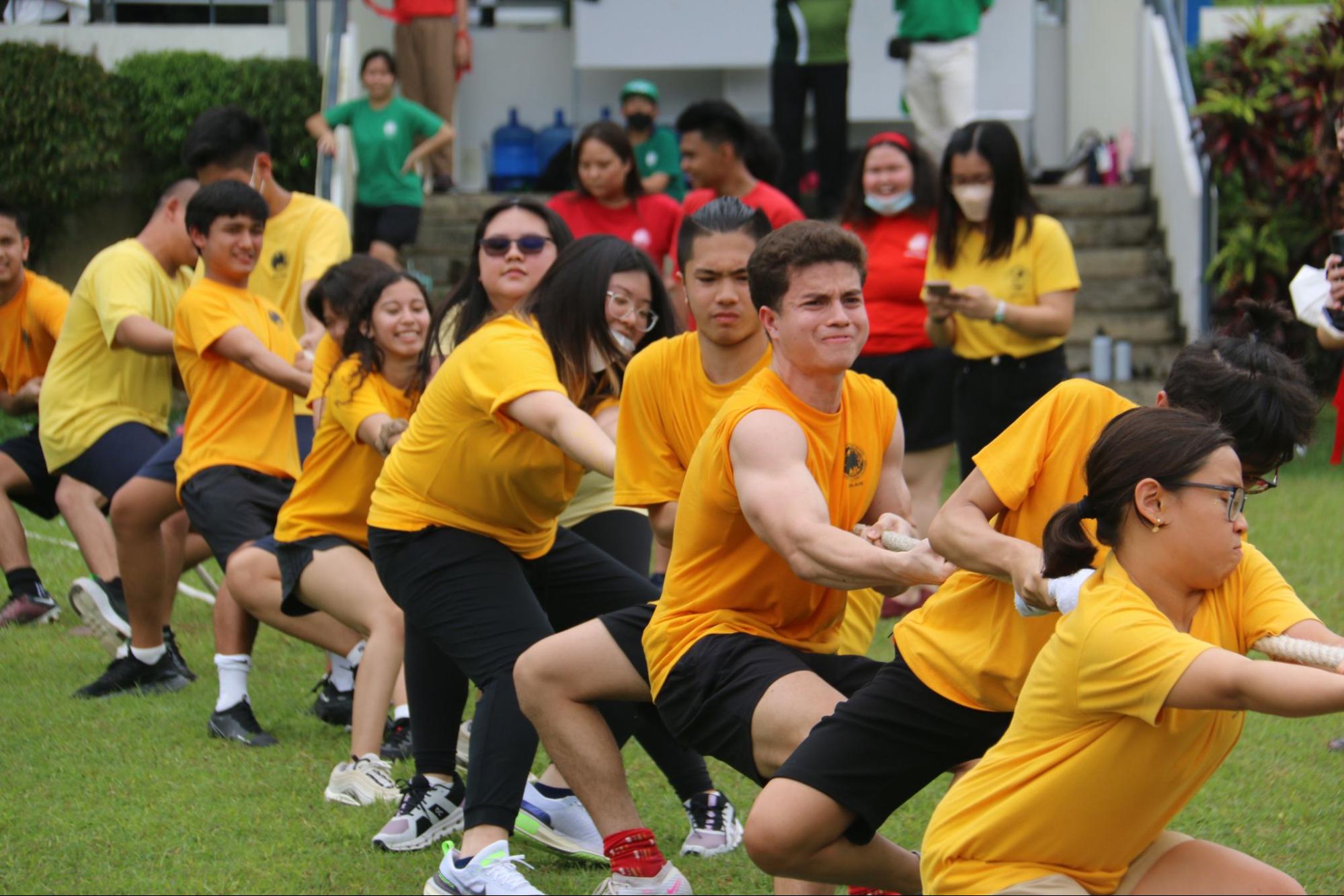
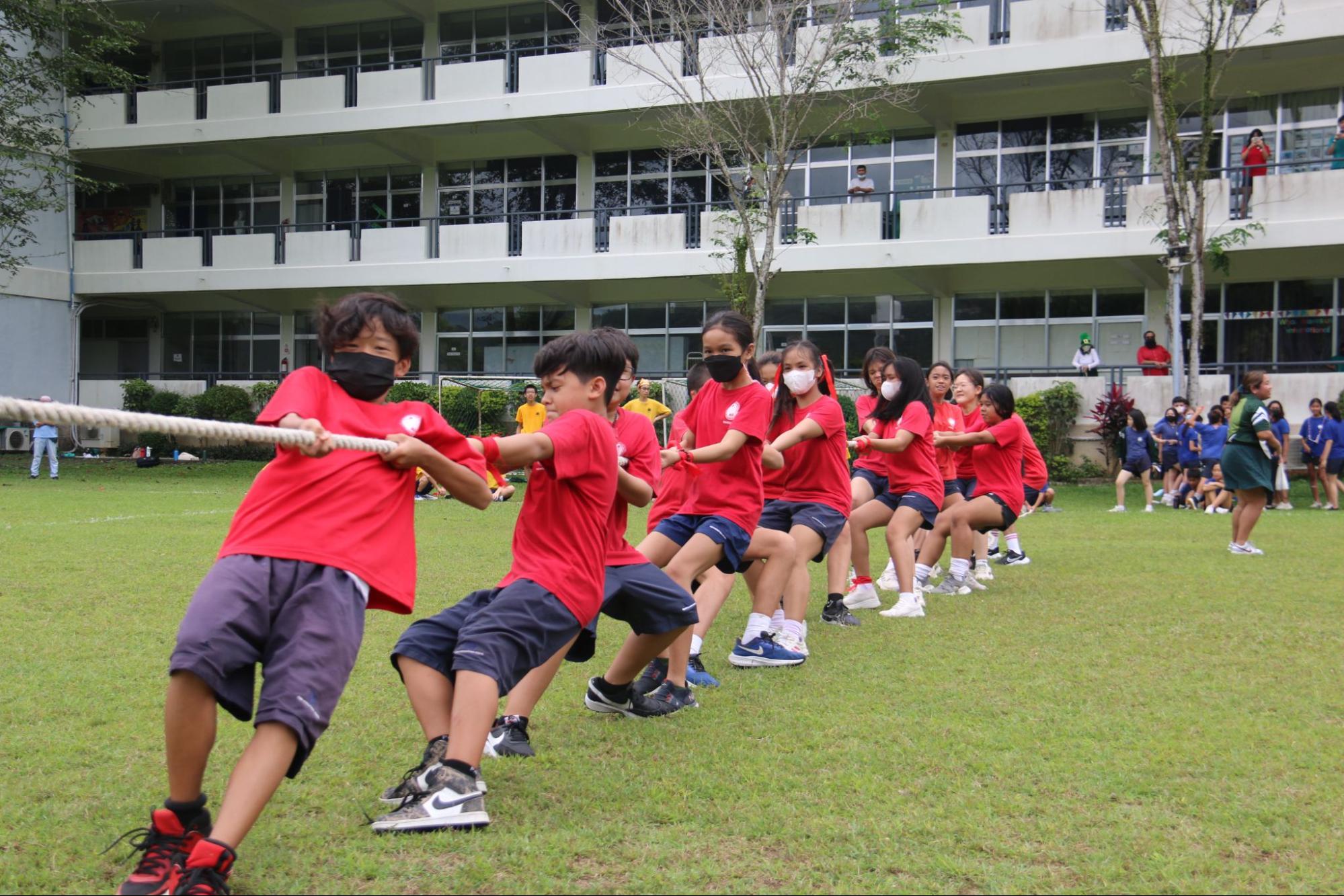
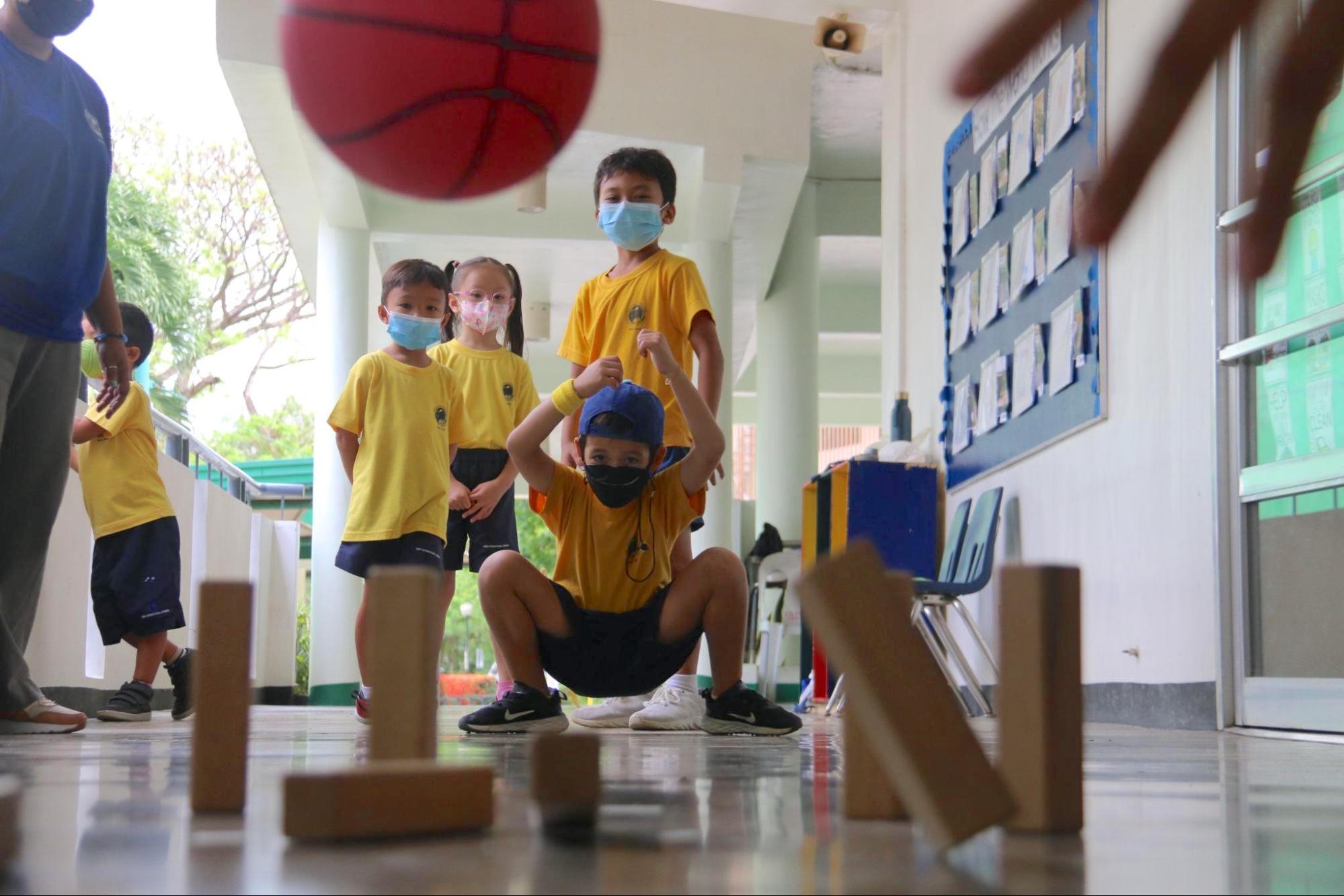
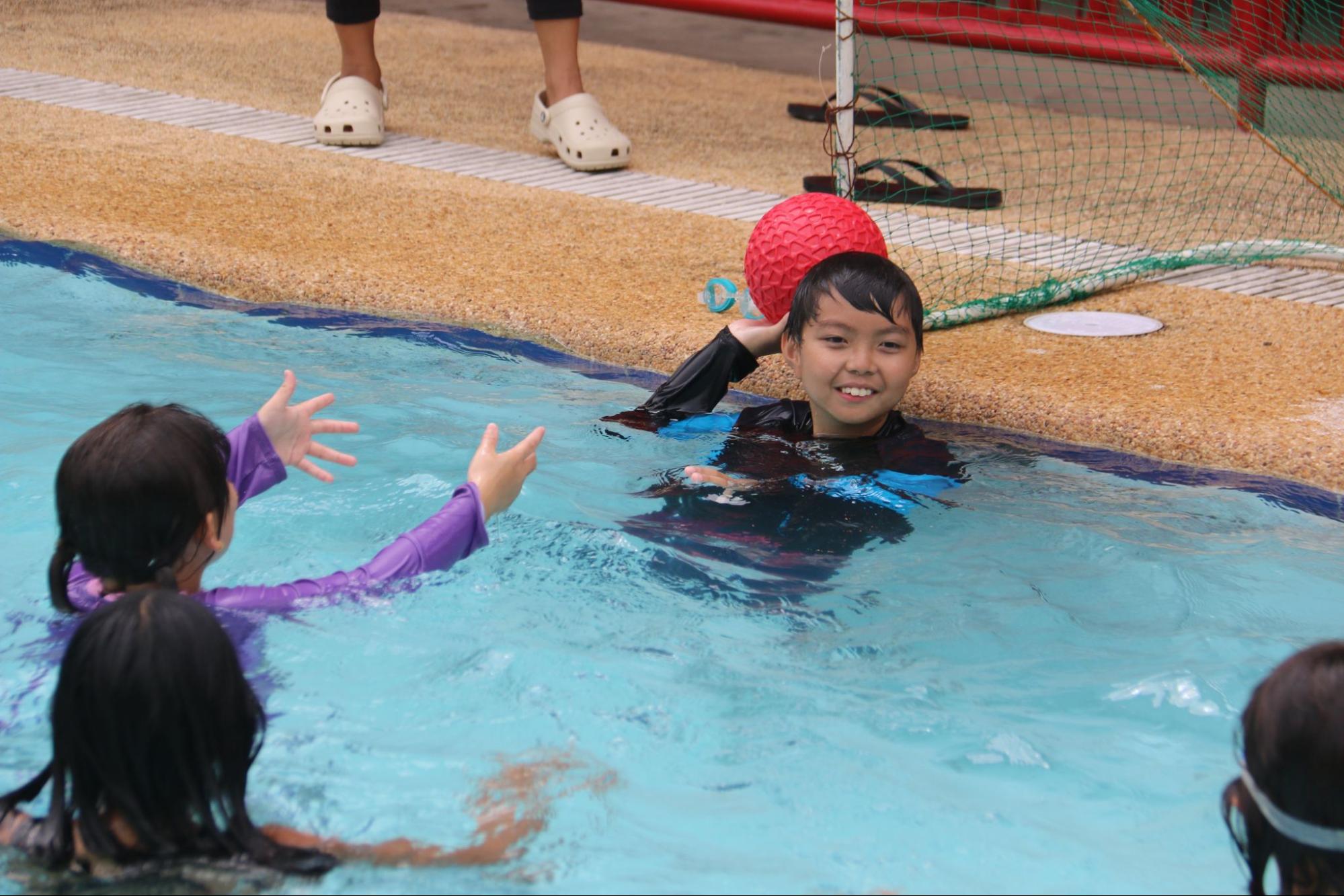
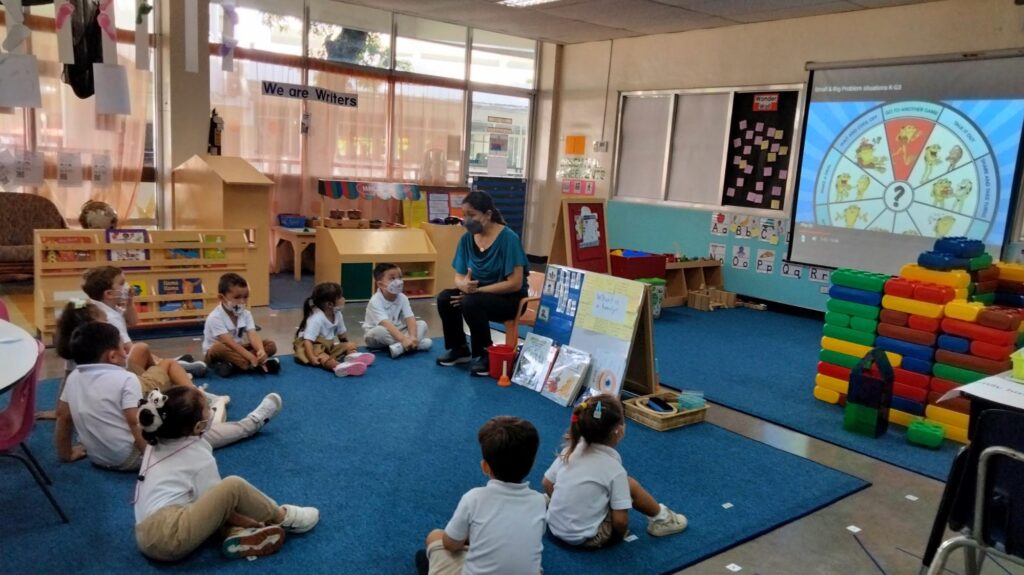
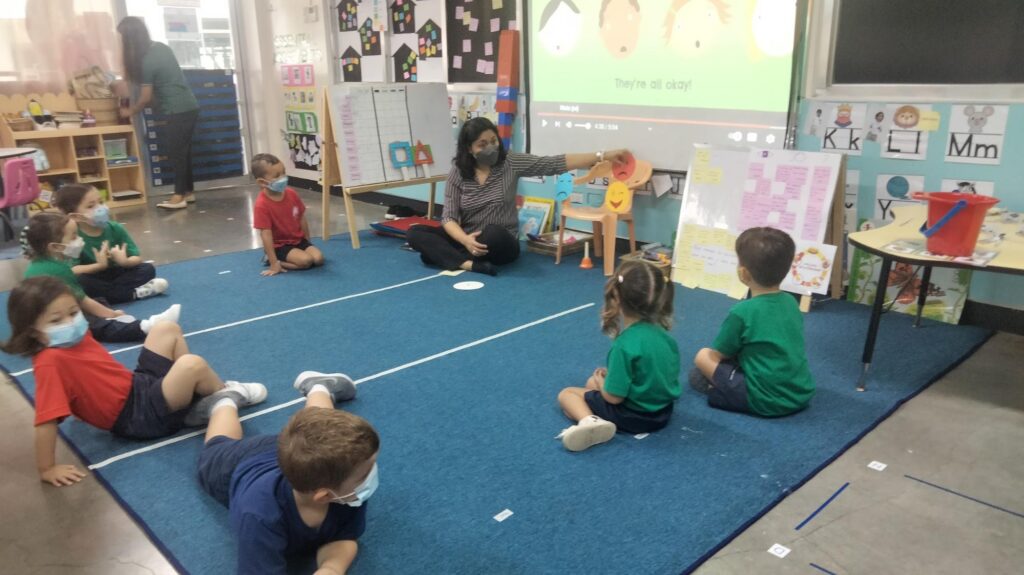 Furthermore, they learned about basic refusal skills, which is when it is okay to say “No”. While grasping the idea of consent, personal space, and boundaries, we talked about the difference between “safe touch” and “unsafe touch”. Students participated in follow-up activities that gave them an opportunity to recognize safe and unsafe situations and the impact of making smart choices in protecting themselves when faced with difficult situations.
Furthermore, they learned about basic refusal skills, which is when it is okay to say “No”. While grasping the idea of consent, personal space, and boundaries, we talked about the difference between “safe touch” and “unsafe touch”. Students participated in follow-up activities that gave them an opportunity to recognize safe and unsafe situations and the impact of making smart choices in protecting themselves when faced with difficult situations.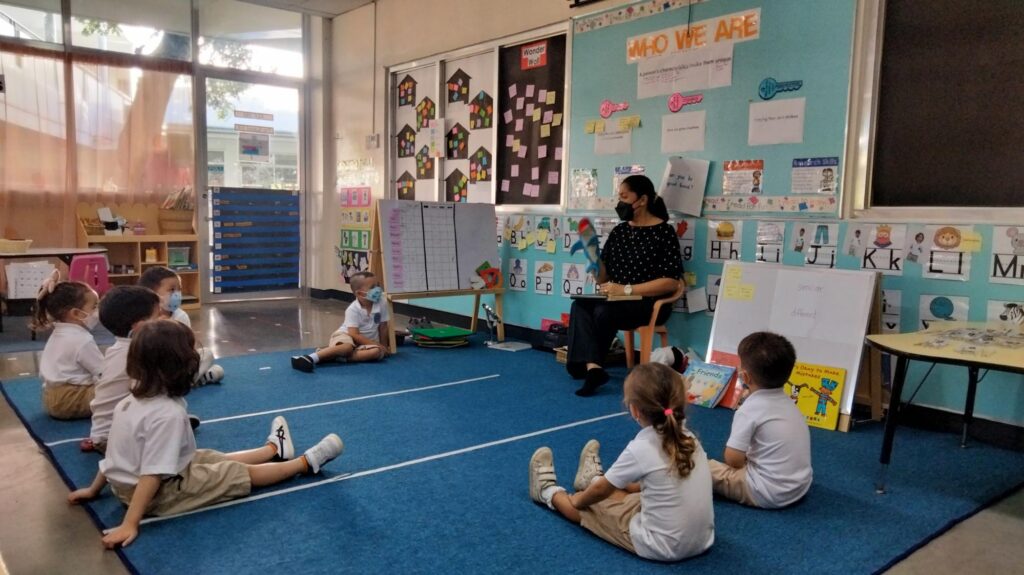
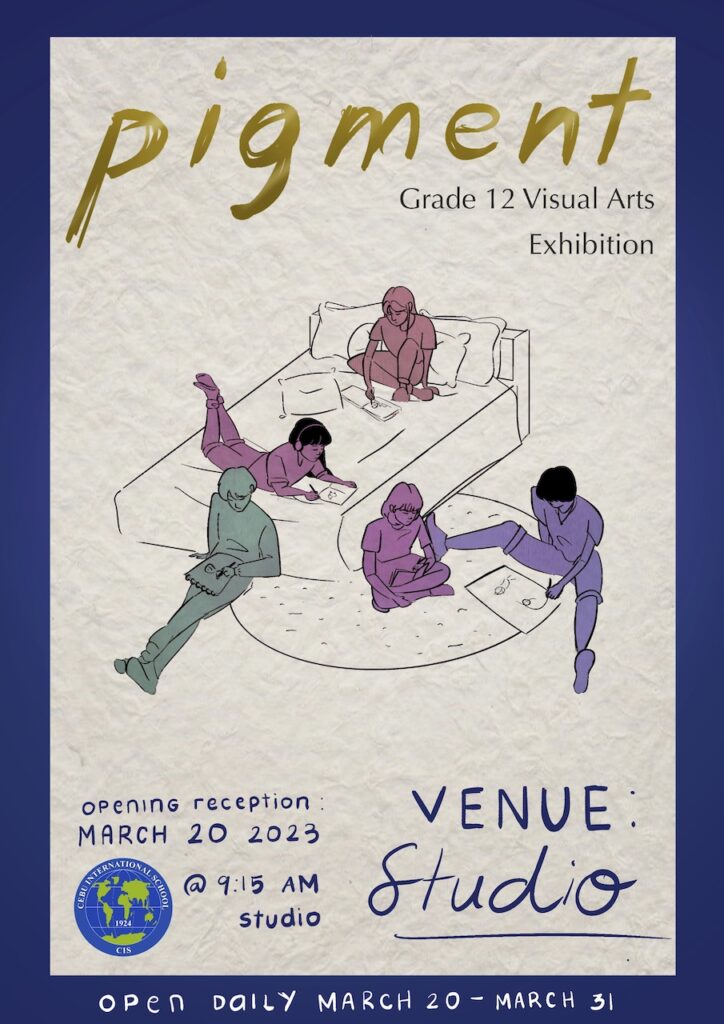
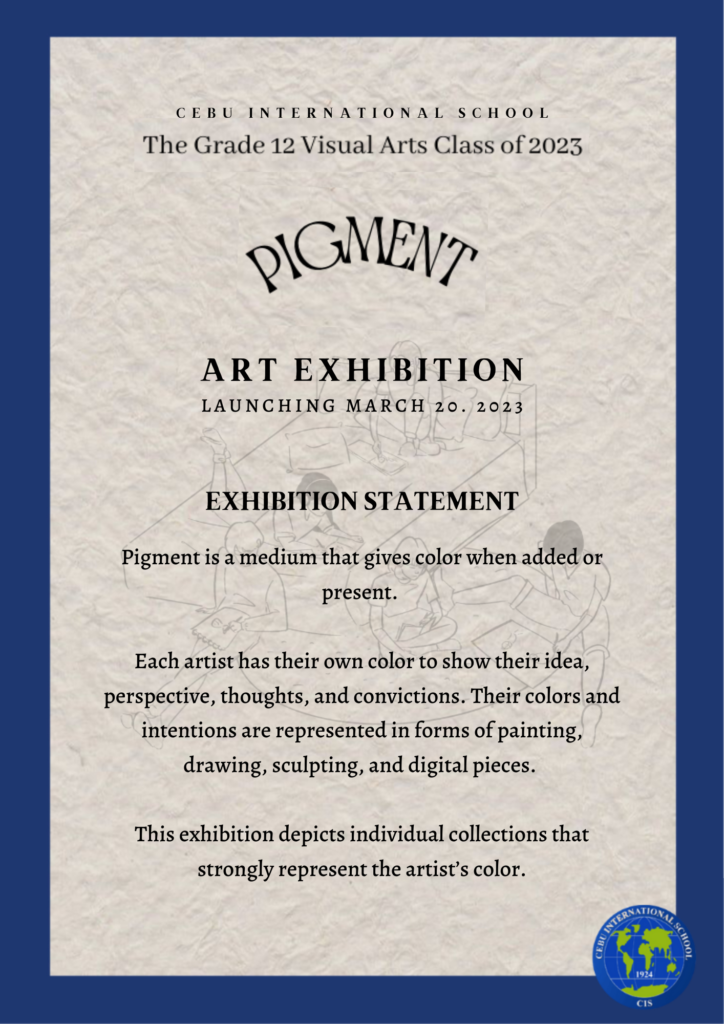
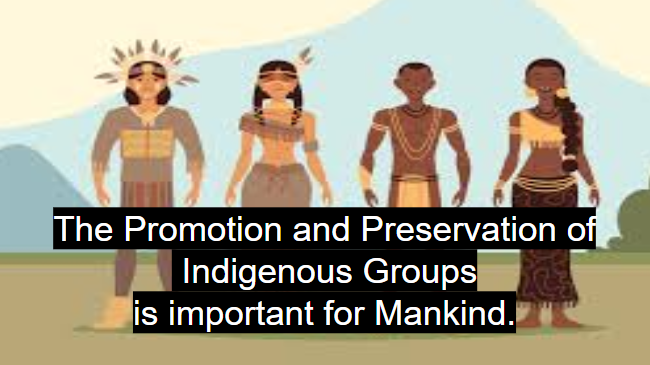 The idea of preserving Indigenous Groups is intrinsically attached to the international mindedness we try to promote to our students as global citizens.
The idea of preserving Indigenous Groups is intrinsically attached to the international mindedness we try to promote to our students as global citizens. 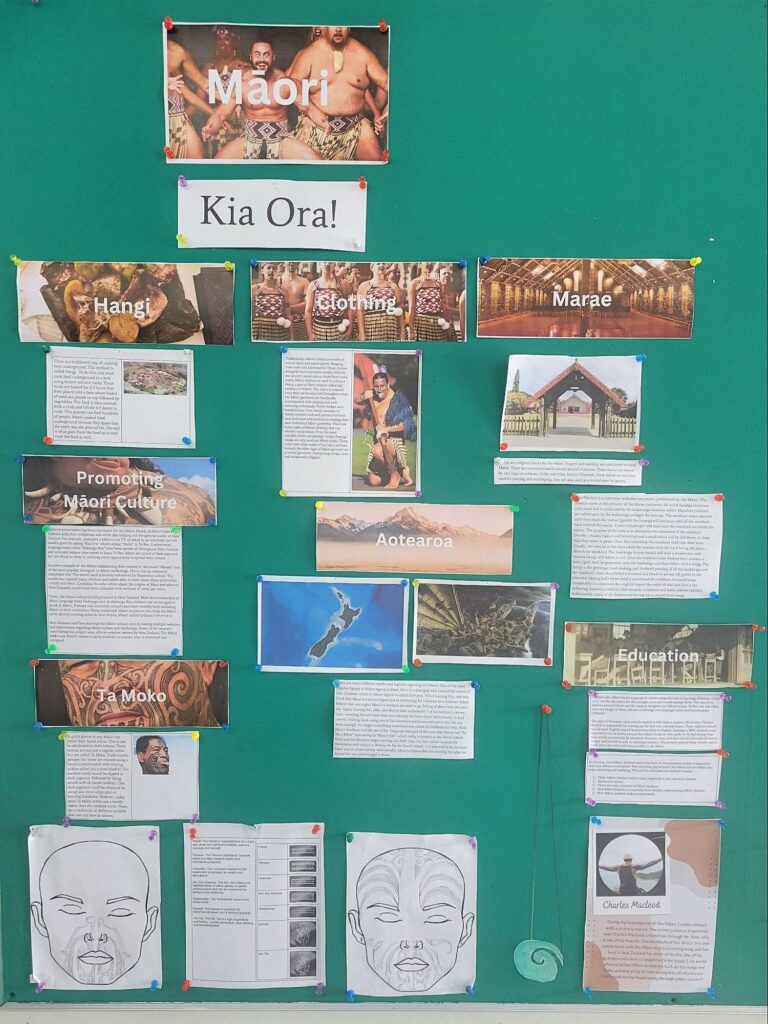
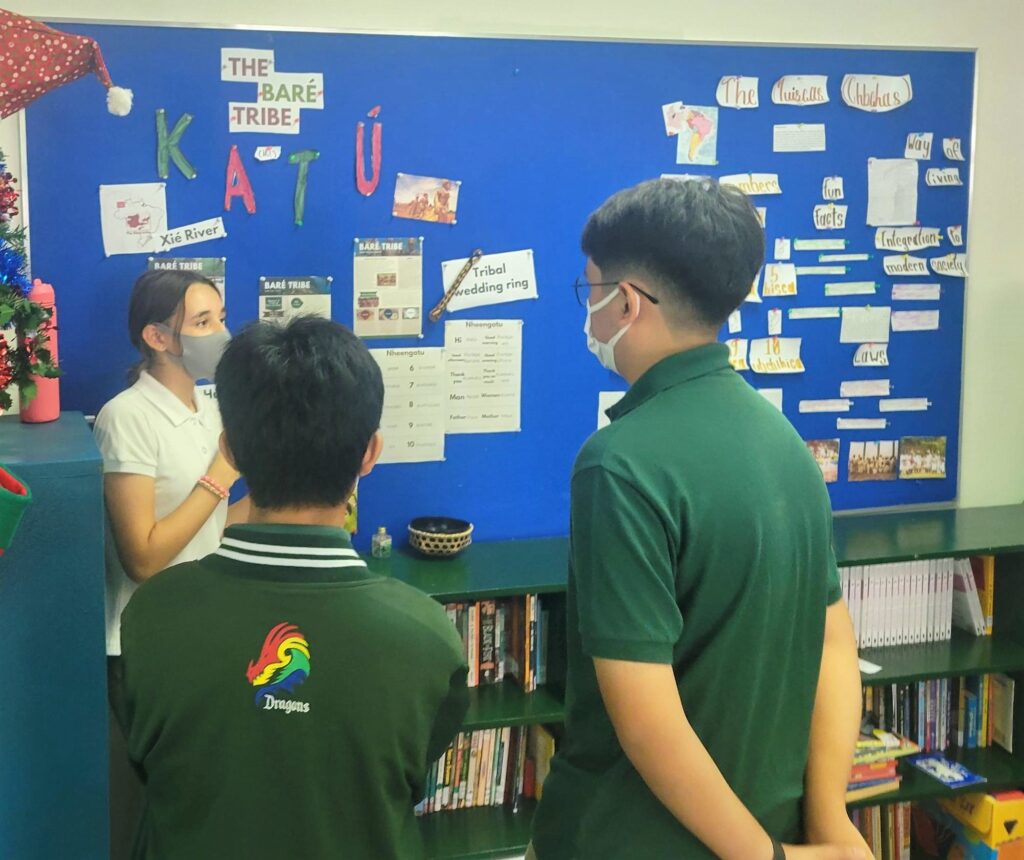
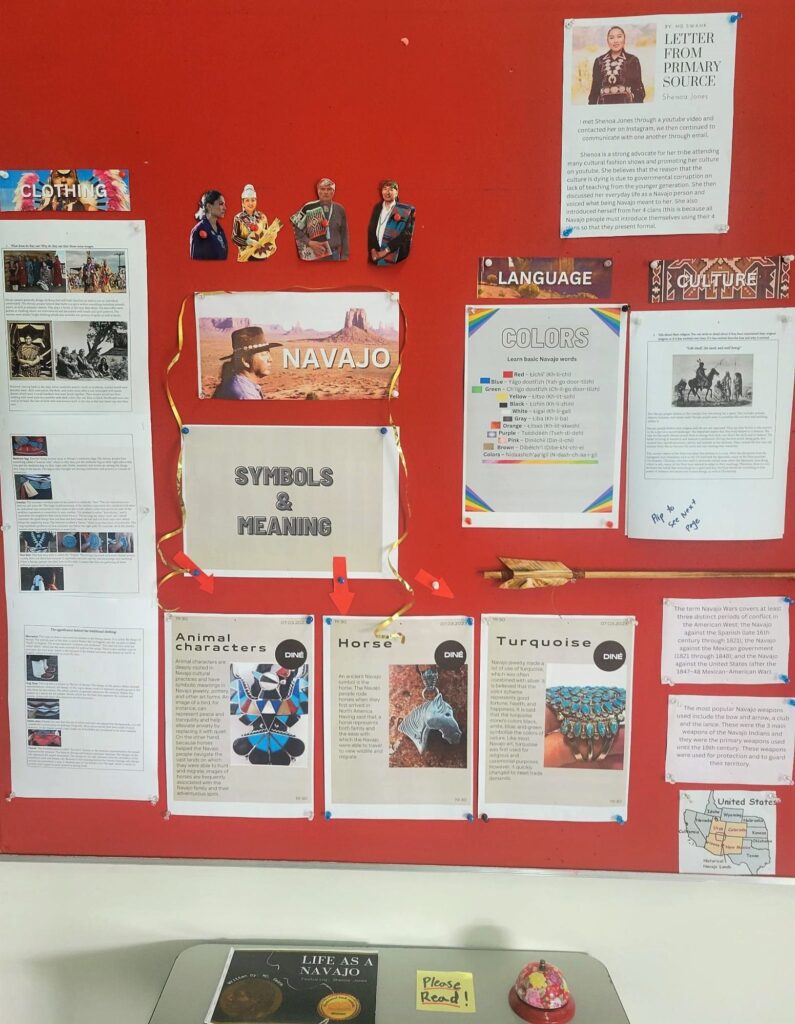
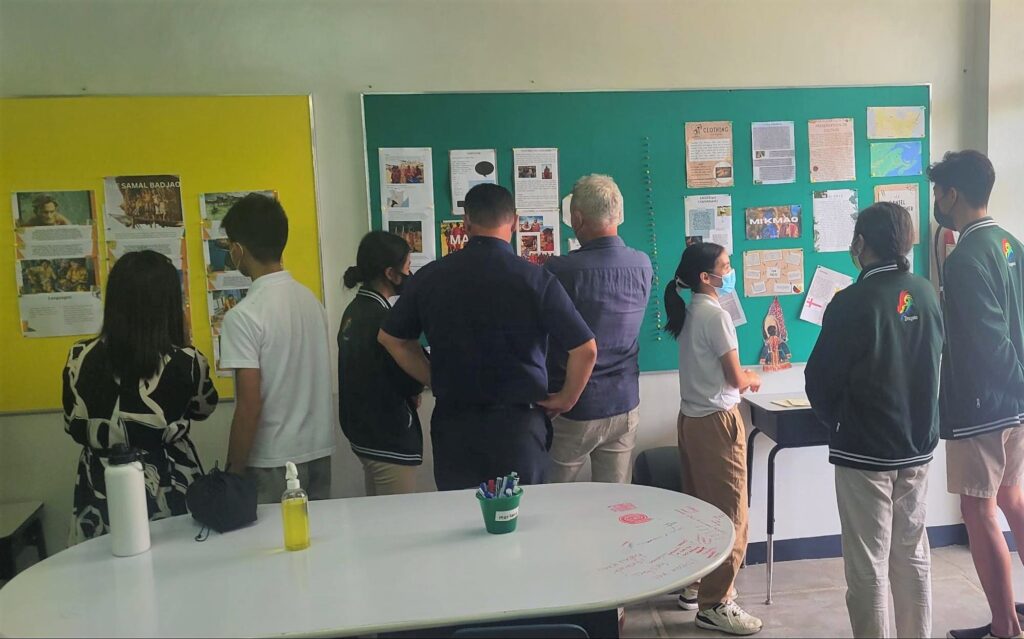
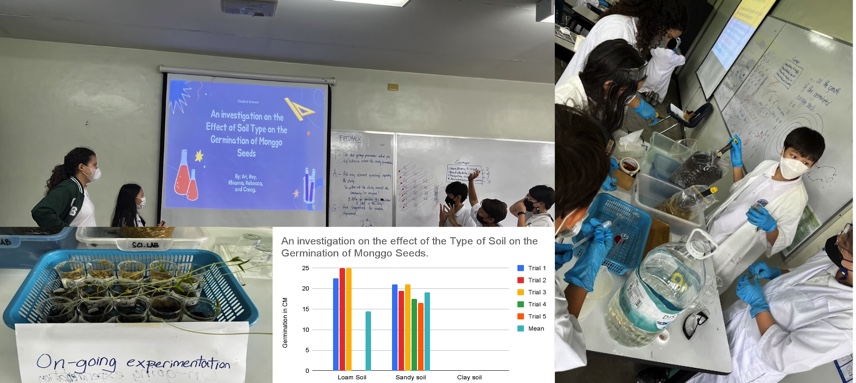 The seedling showed no growth in clay soil. Clay soil is unsuitable for planting because it cannot effectively absorb water. Because there is little space between the mineral particles in clay soil, which is composed mainly of very minute mineral particles and has little organic content. The soil is sticky and does not drain the water well. Because clay soil is hard soil, the water simply pools on the surface rather than being absorbed. According to Plant Problems Seed Sprouting (2020), heavy clay soils make it difficult for a seedling to break through the cement-like soil because clay soil is heavy and compacts easily, and drains water slowly (Colleen Vanderlinden, 2022; Cathy Pleasant, 2015).
The seedling showed no growth in clay soil. Clay soil is unsuitable for planting because it cannot effectively absorb water. Because there is little space between the mineral particles in clay soil, which is composed mainly of very minute mineral particles and has little organic content. The soil is sticky and does not drain the water well. Because clay soil is hard soil, the water simply pools on the surface rather than being absorbed. According to Plant Problems Seed Sprouting (2020), heavy clay soils make it difficult for a seedling to break through the cement-like soil because clay soil is heavy and compacts easily, and drains water slowly (Colleen Vanderlinden, 2022; Cathy Pleasant, 2015). 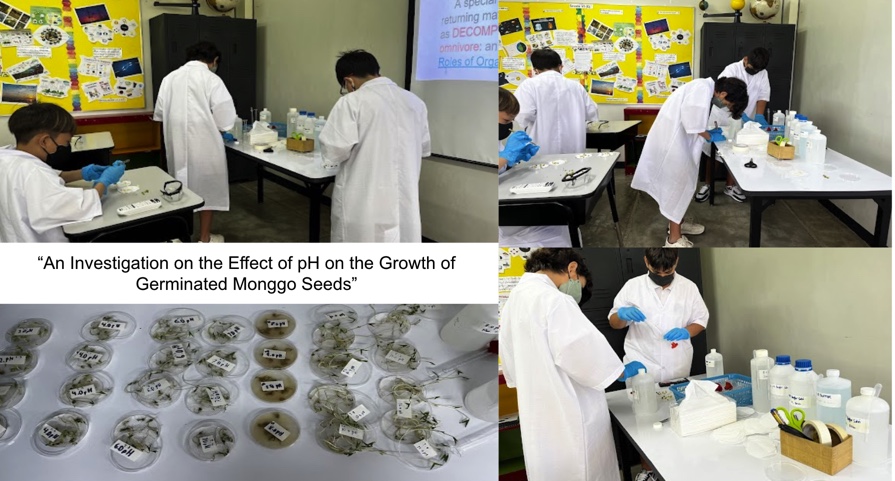 The seedling placed in pH 8.0 which is above normal, made the seedling rot, while the seedling placed in a pH below 7.0 did not rot. A pH above 8.0 allowed the seedling to grow well, while 2.0 pH had the least amount of growth.
The seedling placed in pH 8.0 which is above normal, made the seedling rot, while the seedling placed in a pH below 7.0 did not rot. A pH above 8.0 allowed the seedling to grow well, while 2.0 pH had the least amount of growth.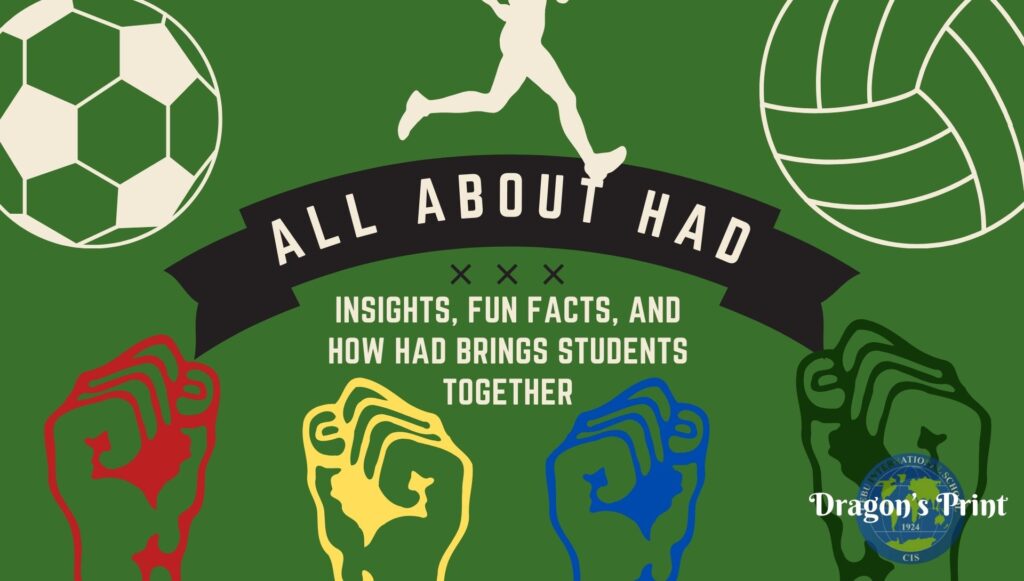
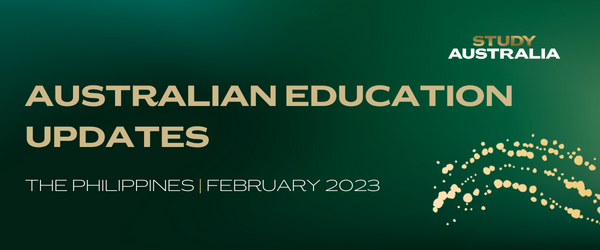
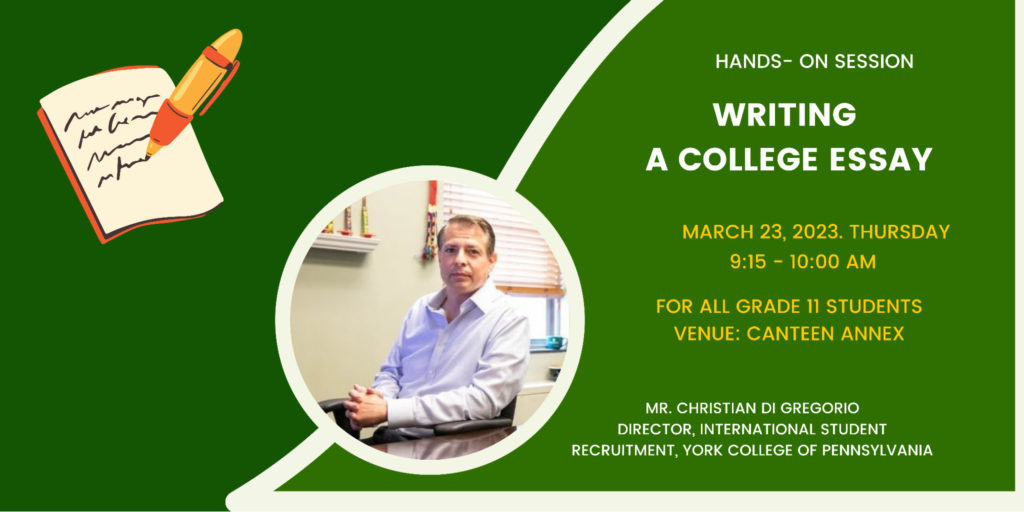

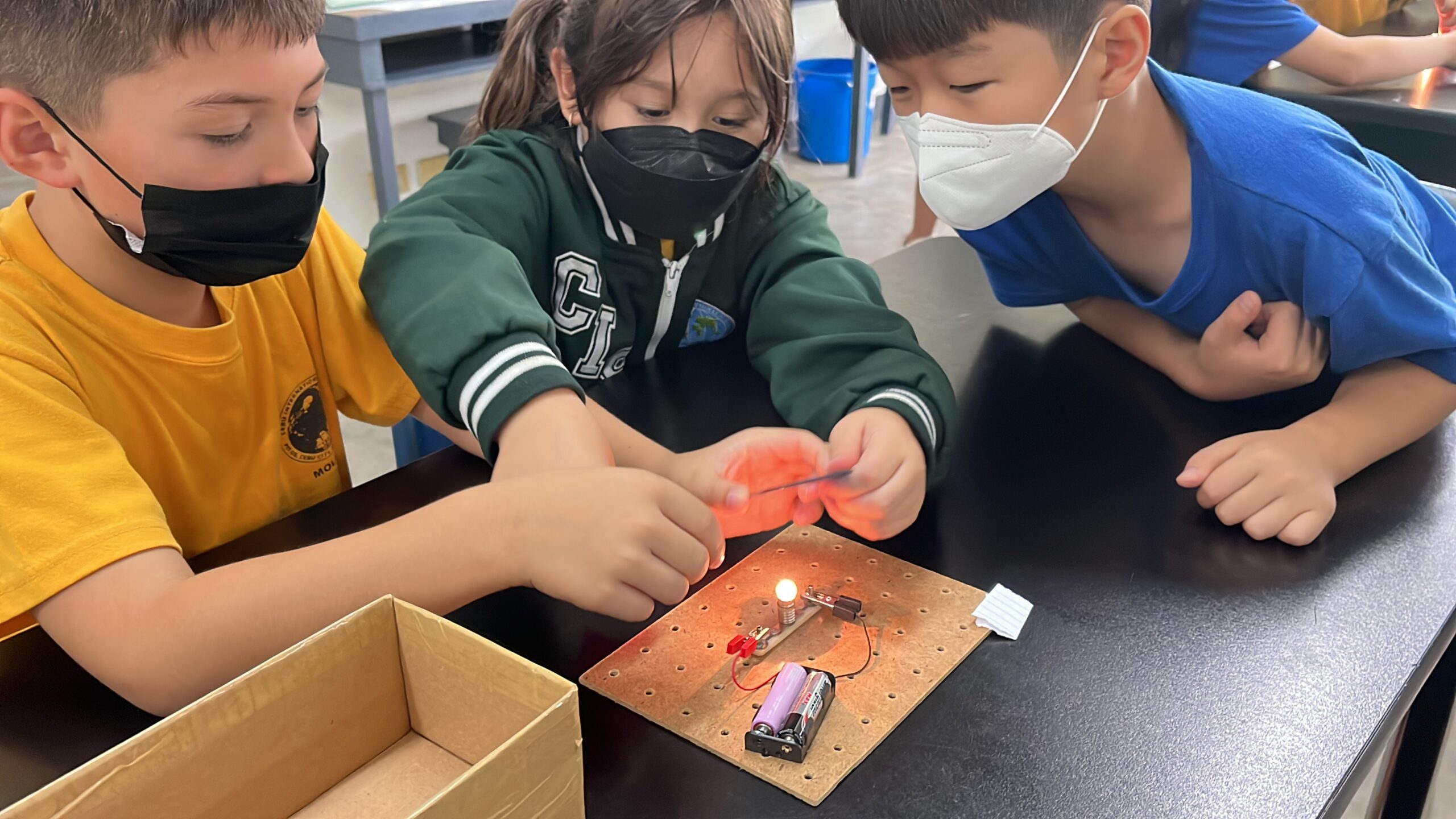 Engineering and Math and is an important feature of our academic programs. The skills gained from STEM education extend beyond those needed to be successful in those specific fields. We are fortunate to have another of Jim Doran-Webb’s sculptures on campus this week and this provided students with the perfect provocation with which to consider the engineering required to transport and set it up as an art installation in a variety of locations, conditions and environments.
Engineering and Math and is an important feature of our academic programs. The skills gained from STEM education extend beyond those needed to be successful in those specific fields. We are fortunate to have another of Jim Doran-Webb’s sculptures on campus this week and this provided students with the perfect provocation with which to consider the engineering required to transport and set it up as an art installation in a variety of locations, conditions and environments.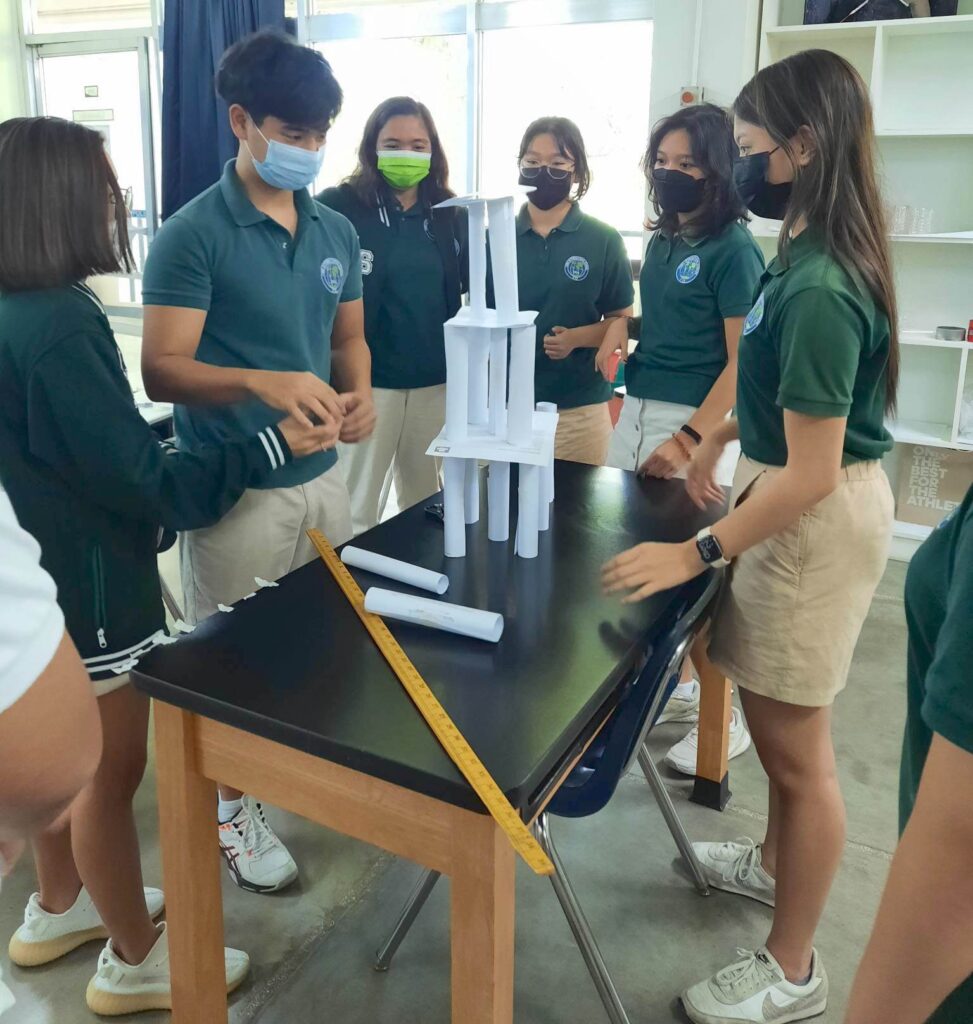 As our students have engaged in various experiences this week our teachers have purposefully provided them with activities that spark their curiosity and imagination. They have been placed in situations that require them to work collaboratively to solve and complete complex problems. This has promoted active listening, open-mindedness and required them to give and receive constructive feedback. The real-world applications that students have been involved in have enhanced the need for students to actively engage with the material to understand the issue at hand and require logic rather than memorization to solve problems.
As our students have engaged in various experiences this week our teachers have purposefully provided them with activities that spark their curiosity and imagination. They have been placed in situations that require them to work collaboratively to solve and complete complex problems. This has promoted active listening, open-mindedness and required them to give and receive constructive feedback. The real-world applications that students have been involved in have enhanced the need for students to actively engage with the material to understand the issue at hand and require logic rather than memorization to solve problems.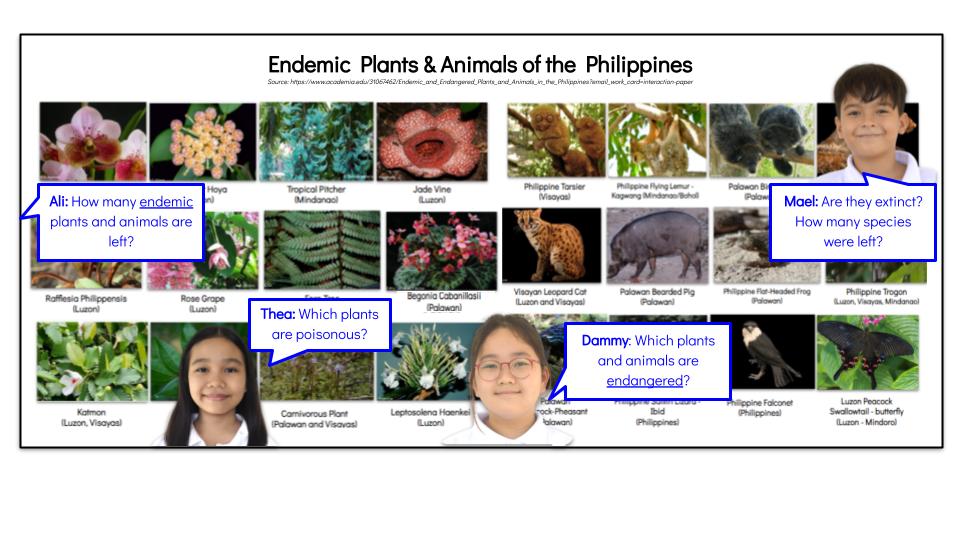
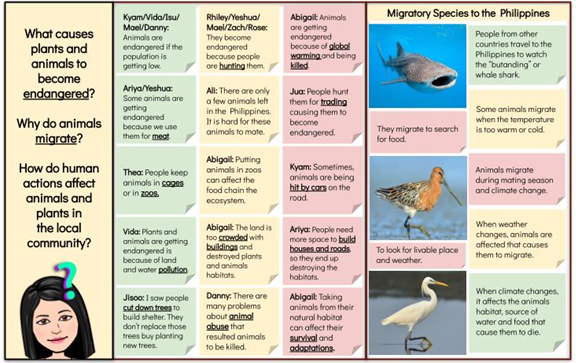
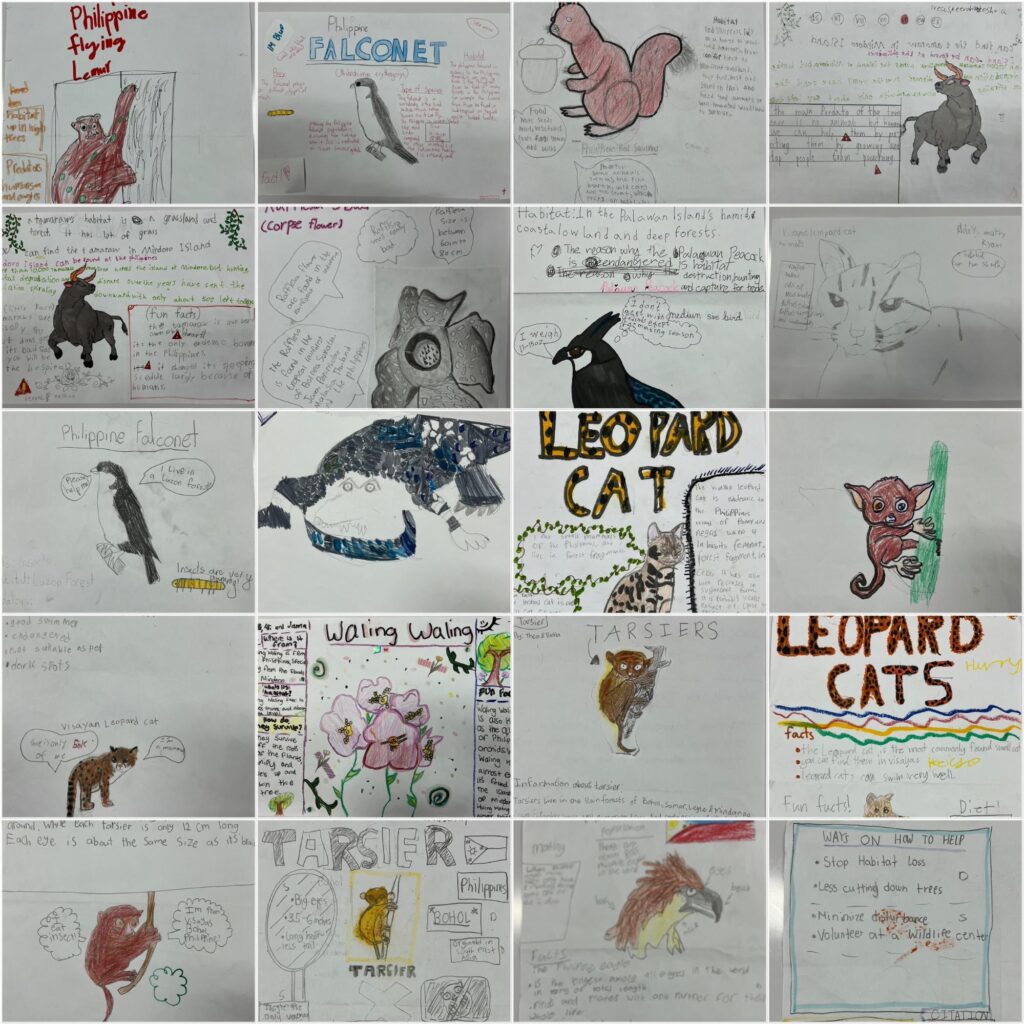
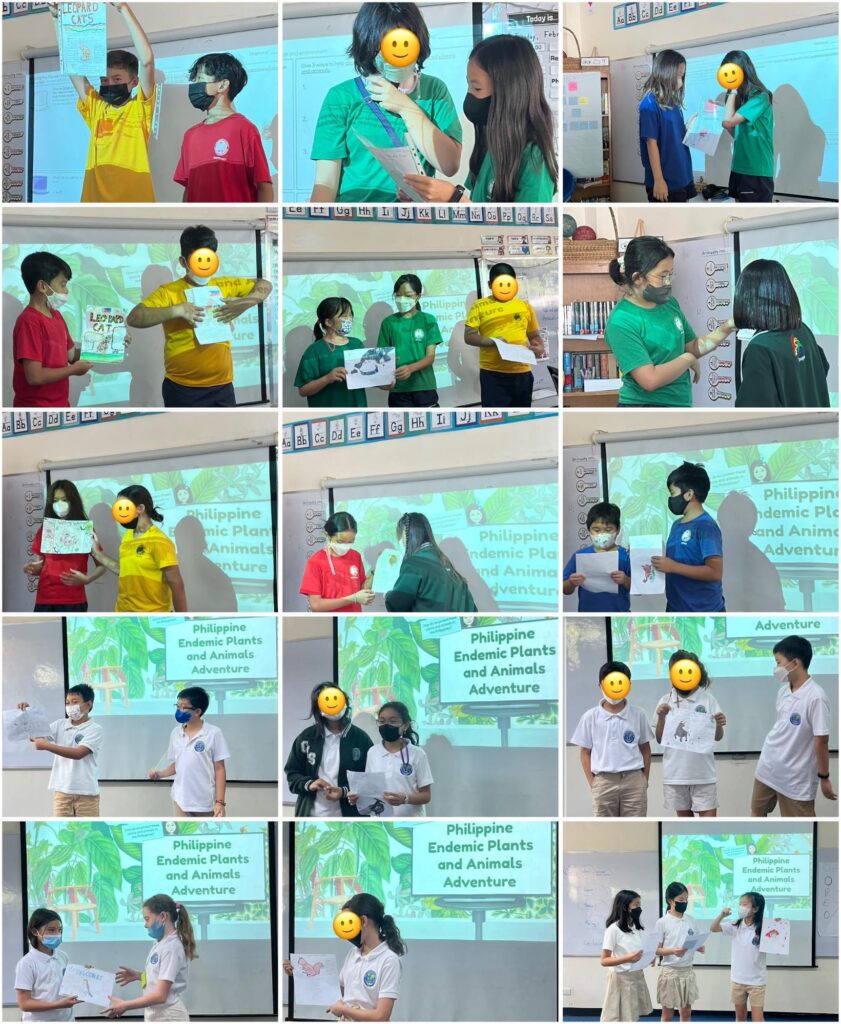

 Grades 8 and 9 have been engaged in practicing their speaking skills and demonstrating how teamwork helps them to succeed. They pretended to be travelers in a foreign country dealing with issues of buying a flight ticket, ordering food in a restaurant, doing some currency exchanges and deciding what to wear, and what activities to do, when and where.
Grades 8 and 9 have been engaged in practicing their speaking skills and demonstrating how teamwork helps them to succeed. They pretended to be travelers in a foreign country dealing with issues of buying a flight ticket, ordering food in a restaurant, doing some currency exchanges and deciding what to wear, and what activities to do, when and where.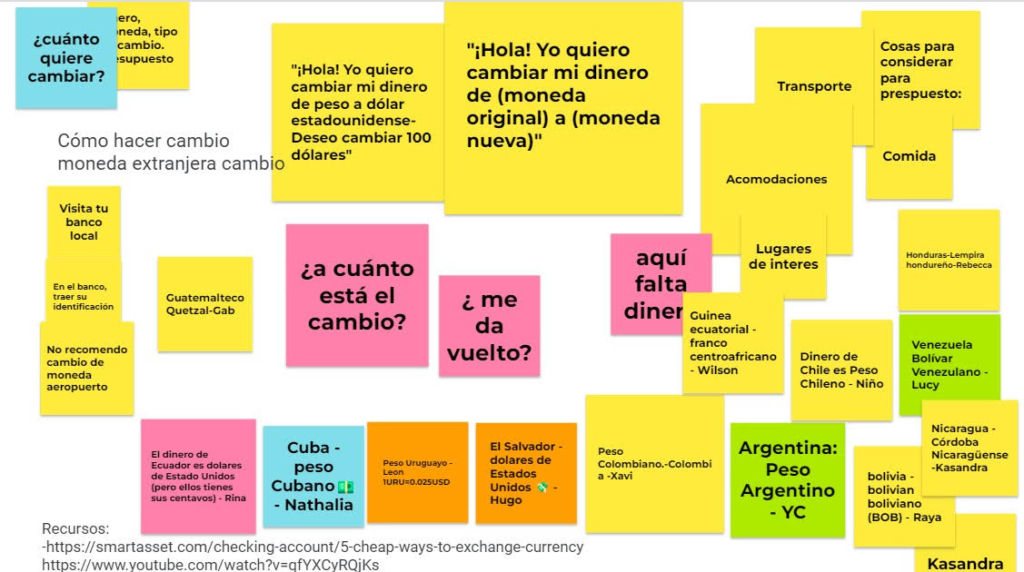
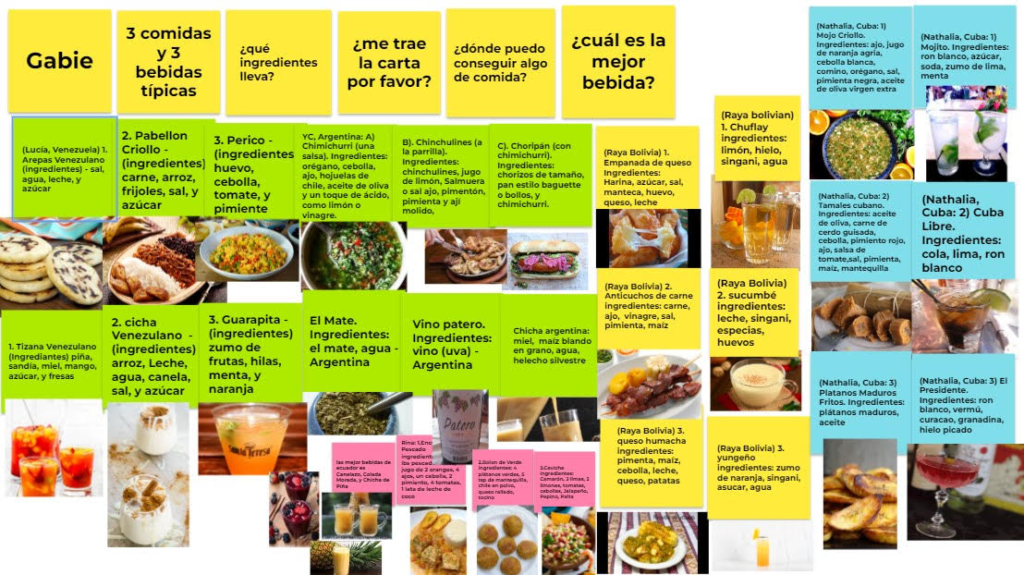
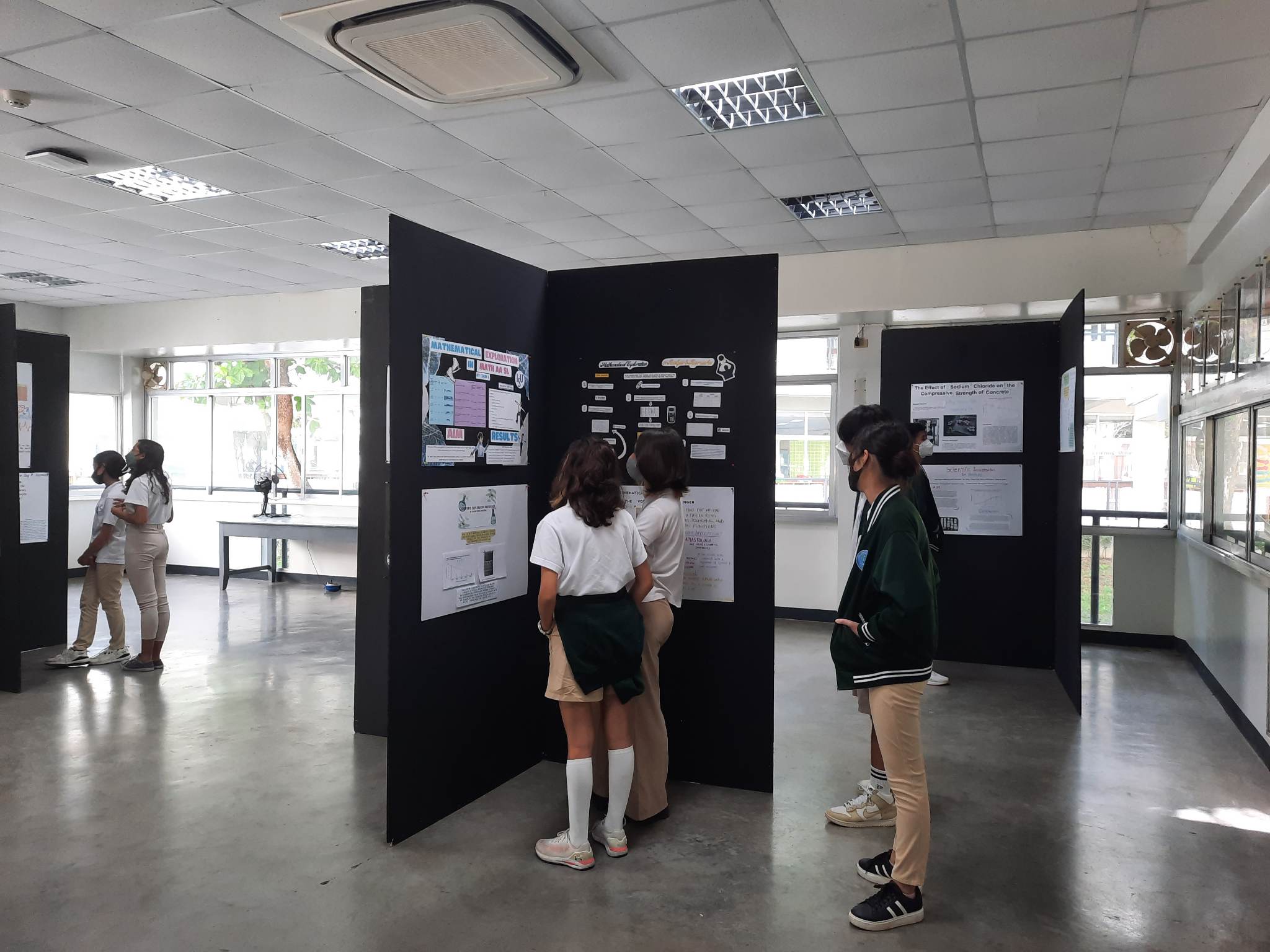 ¿Cuál es el valor sociológico de la obra?
¿Cuál es el valor sociológico de la obra? 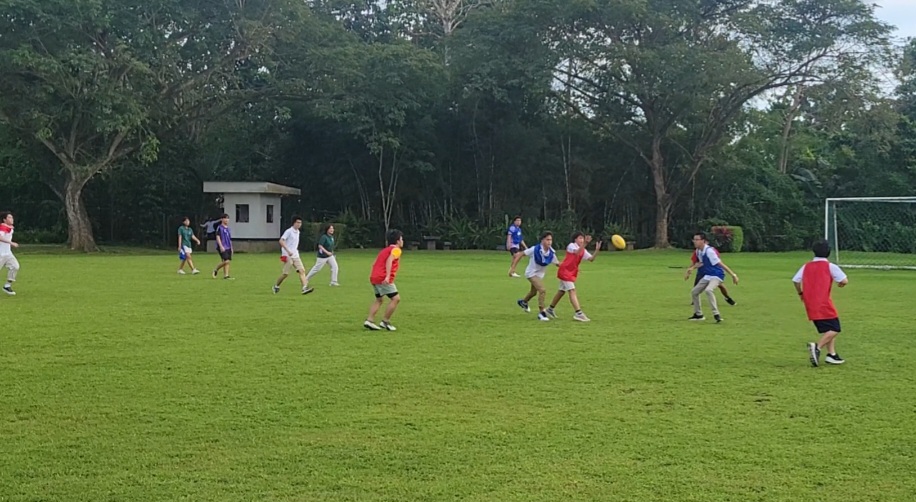
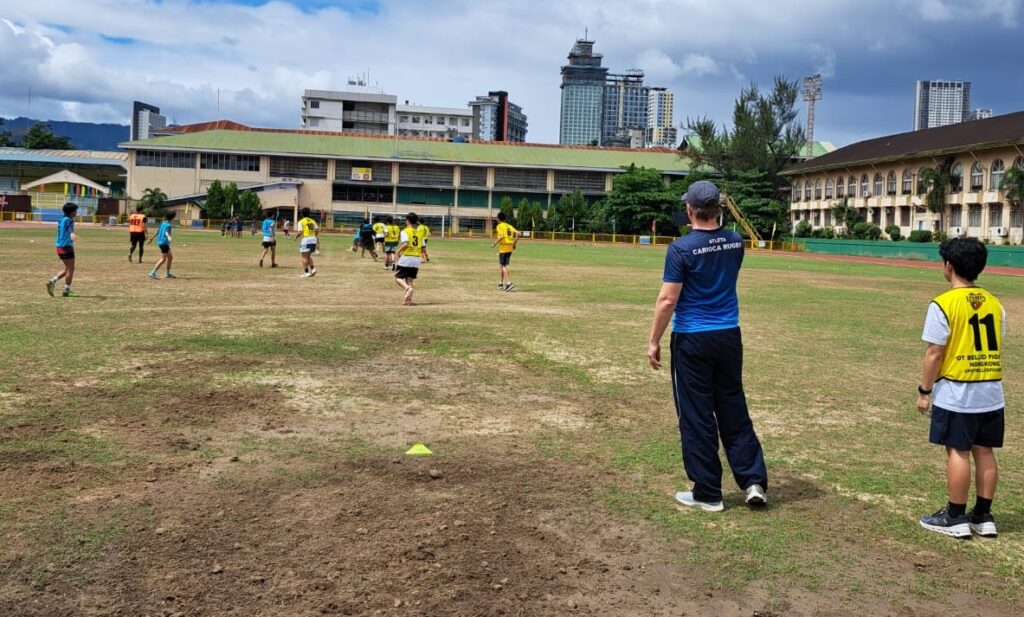
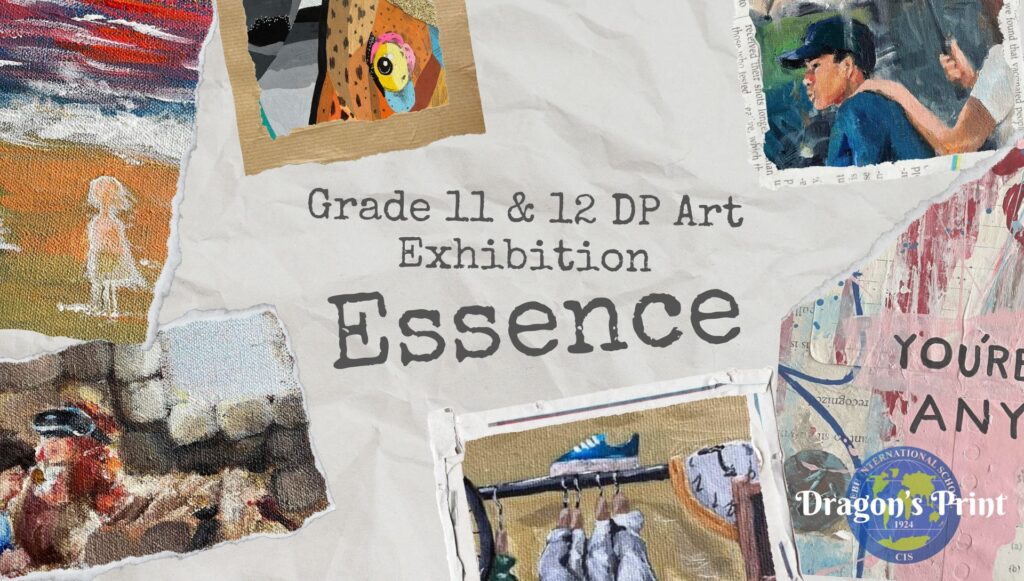
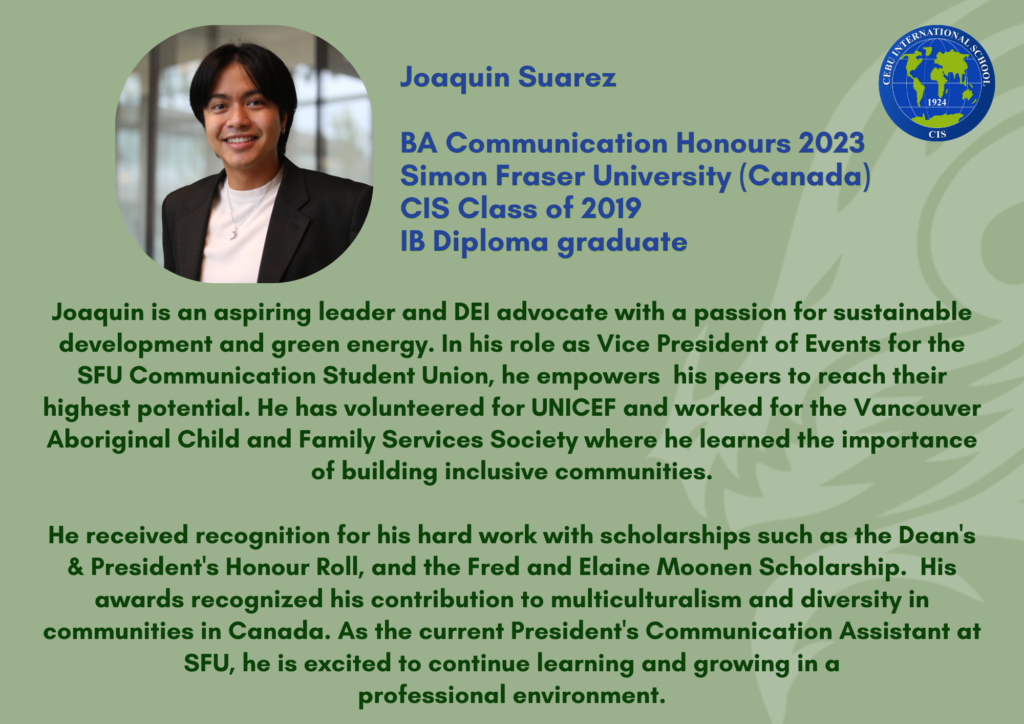
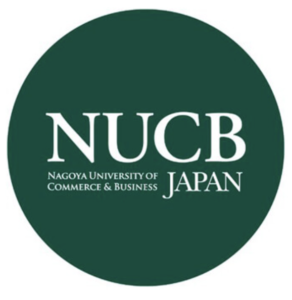

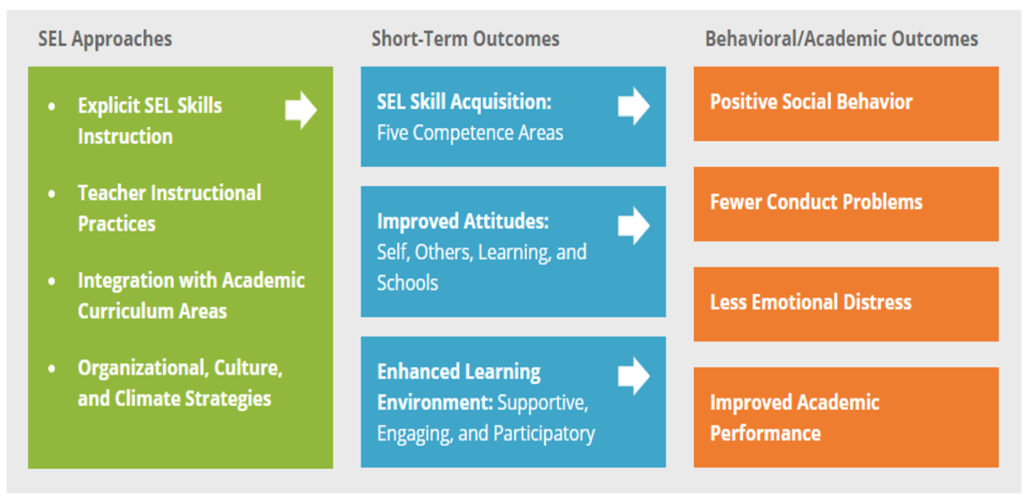 (Source:
(Source: 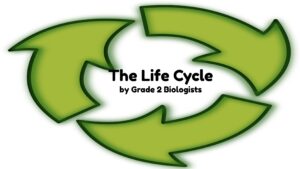
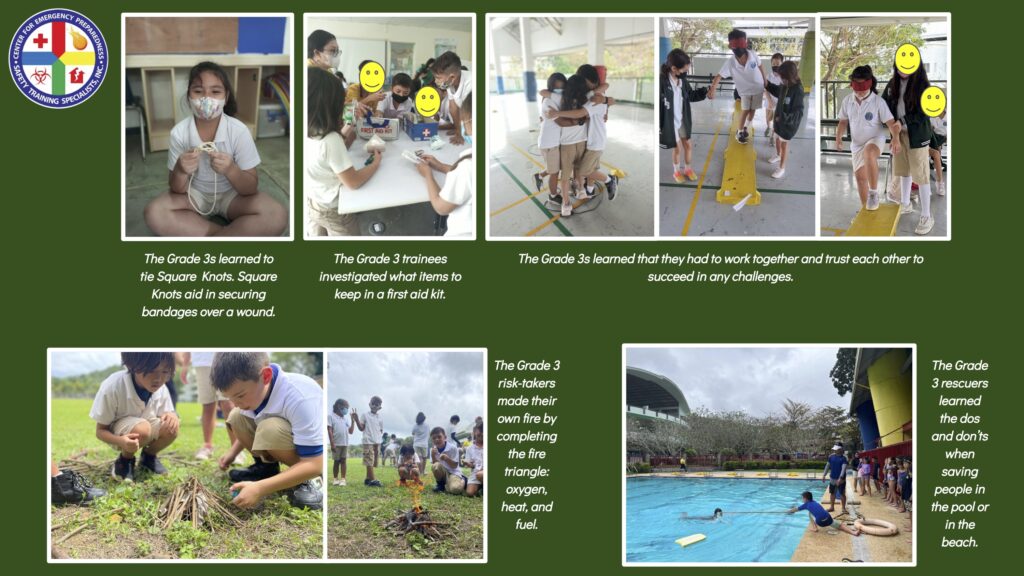
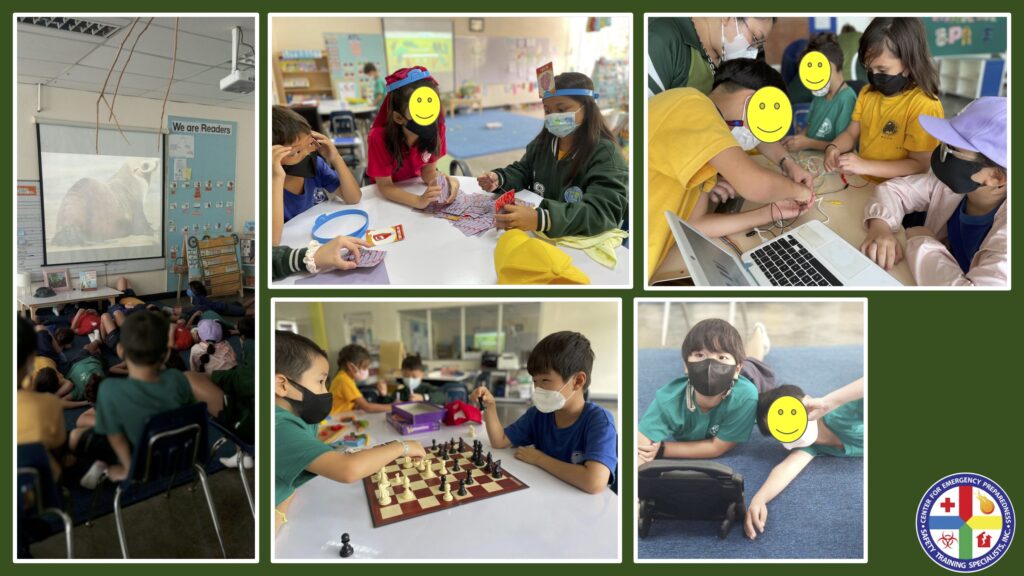
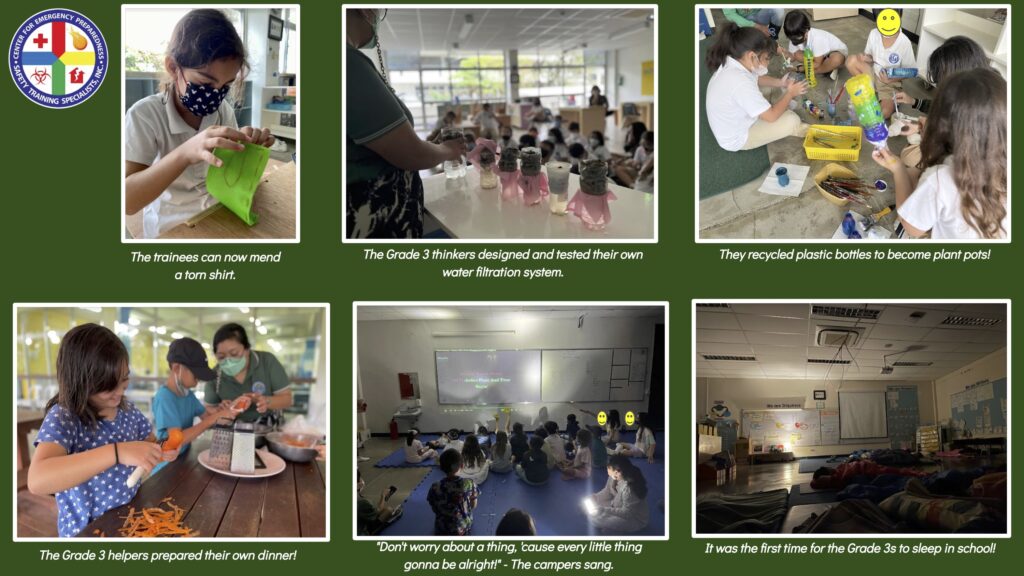
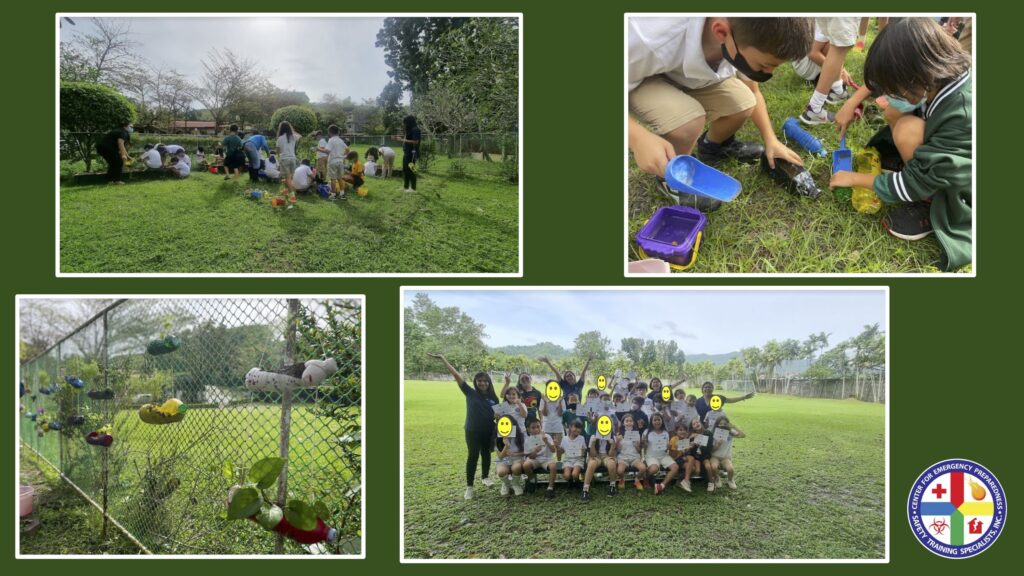
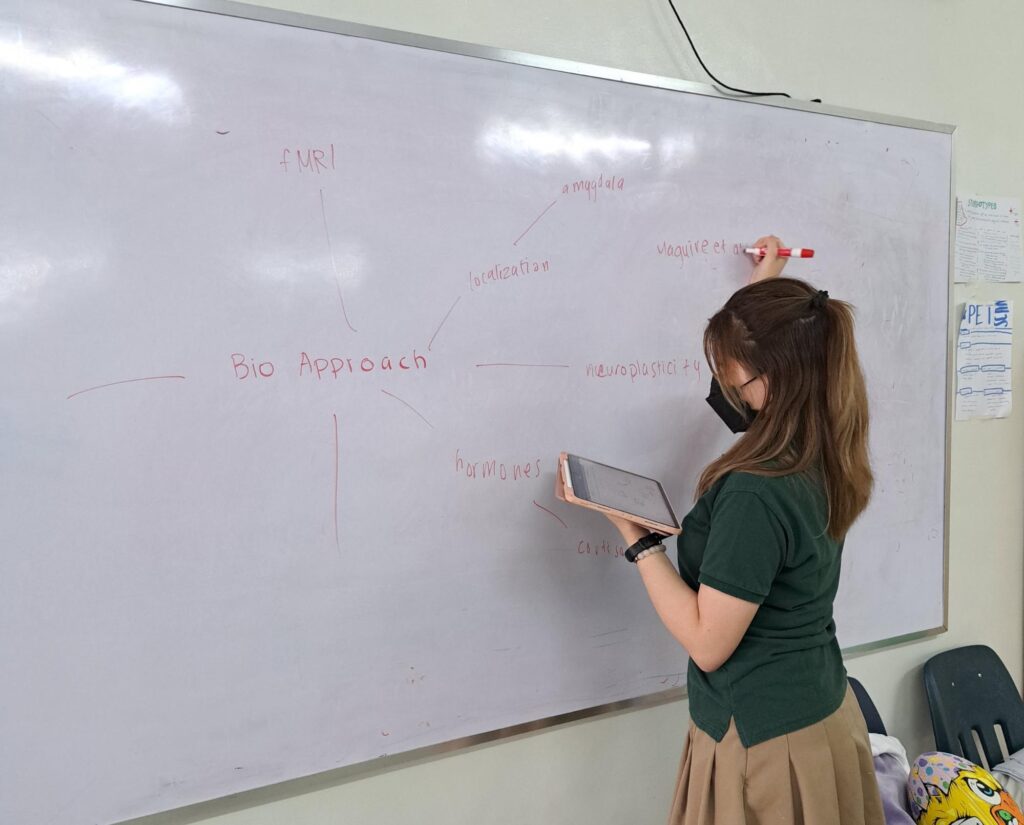

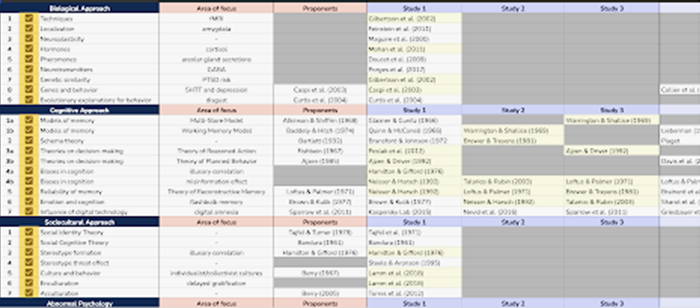


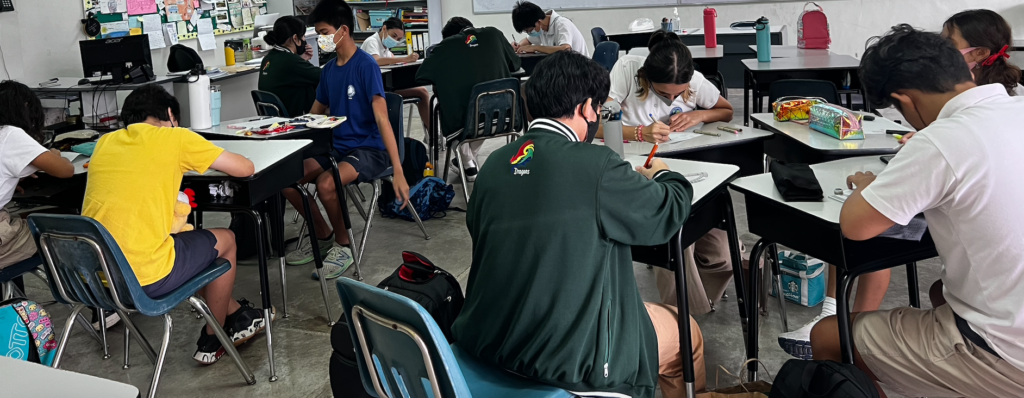
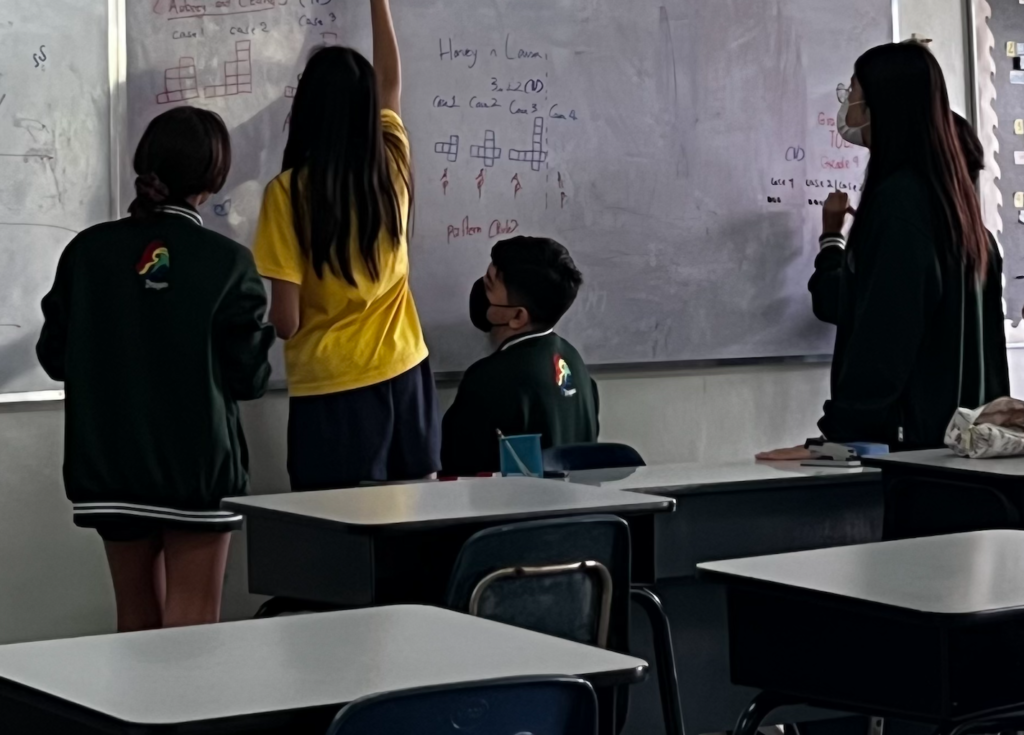
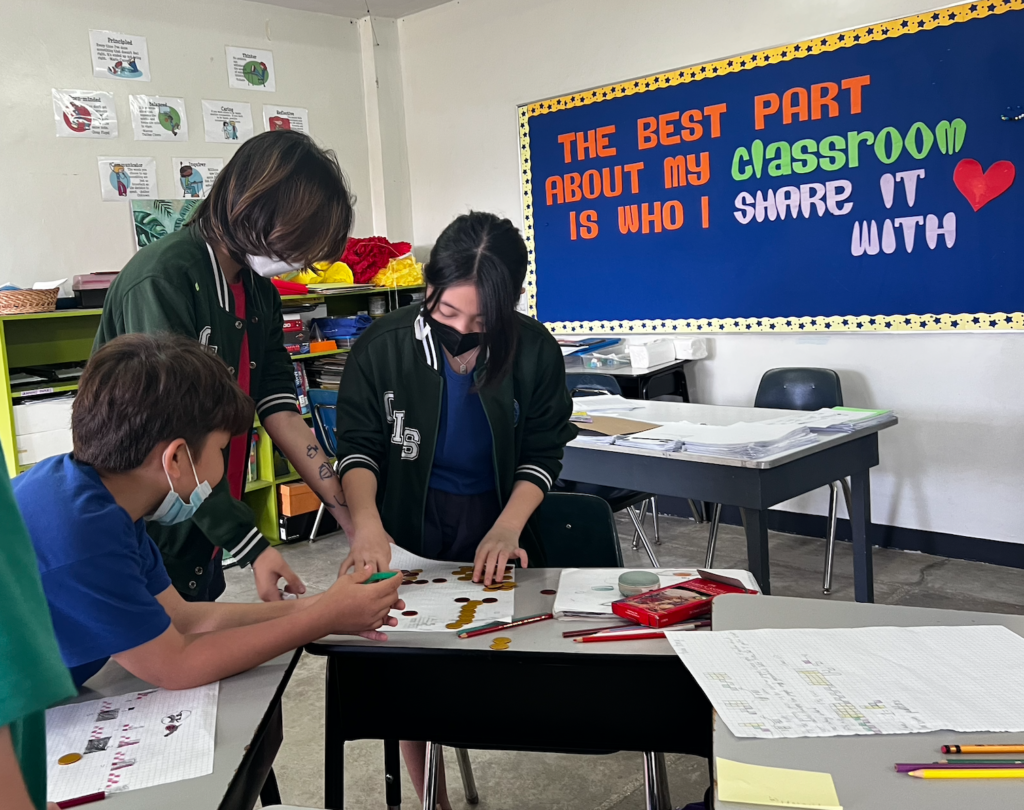
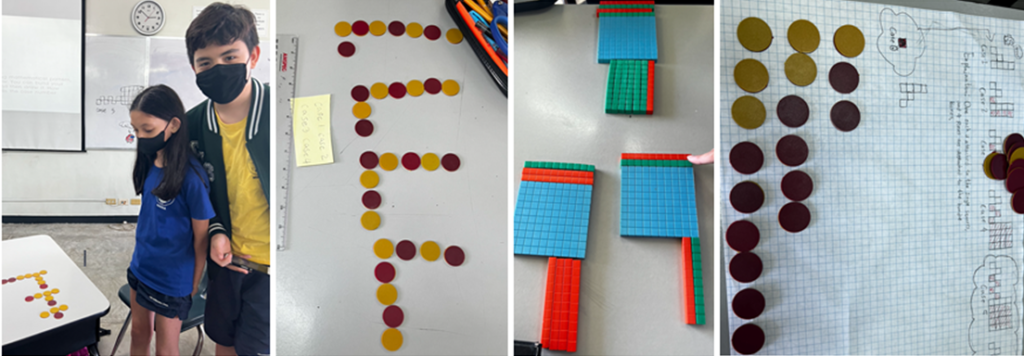
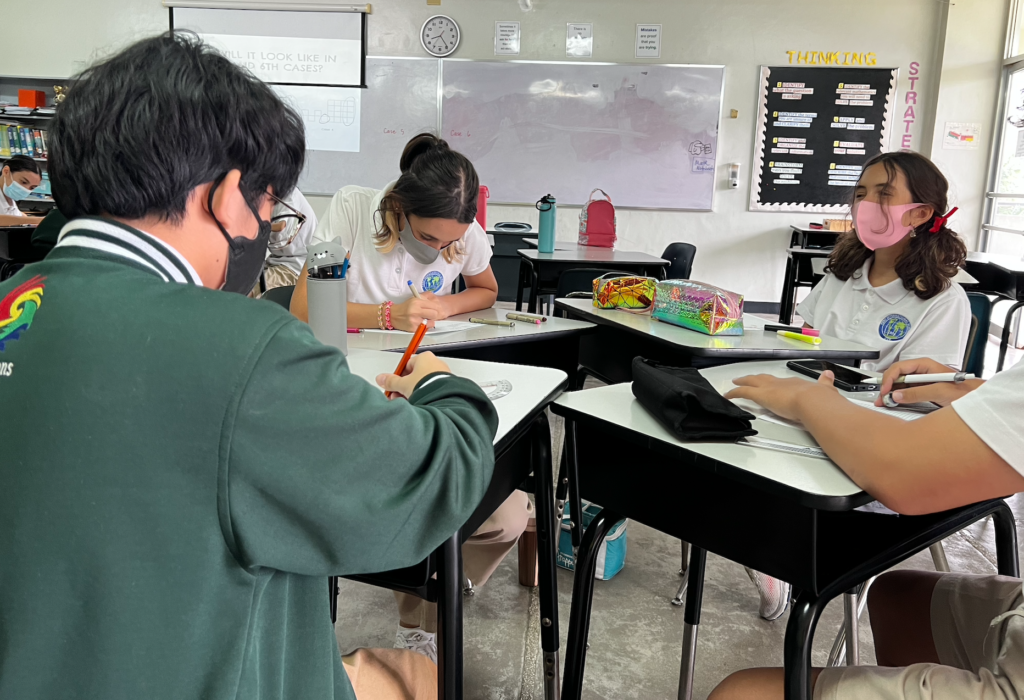
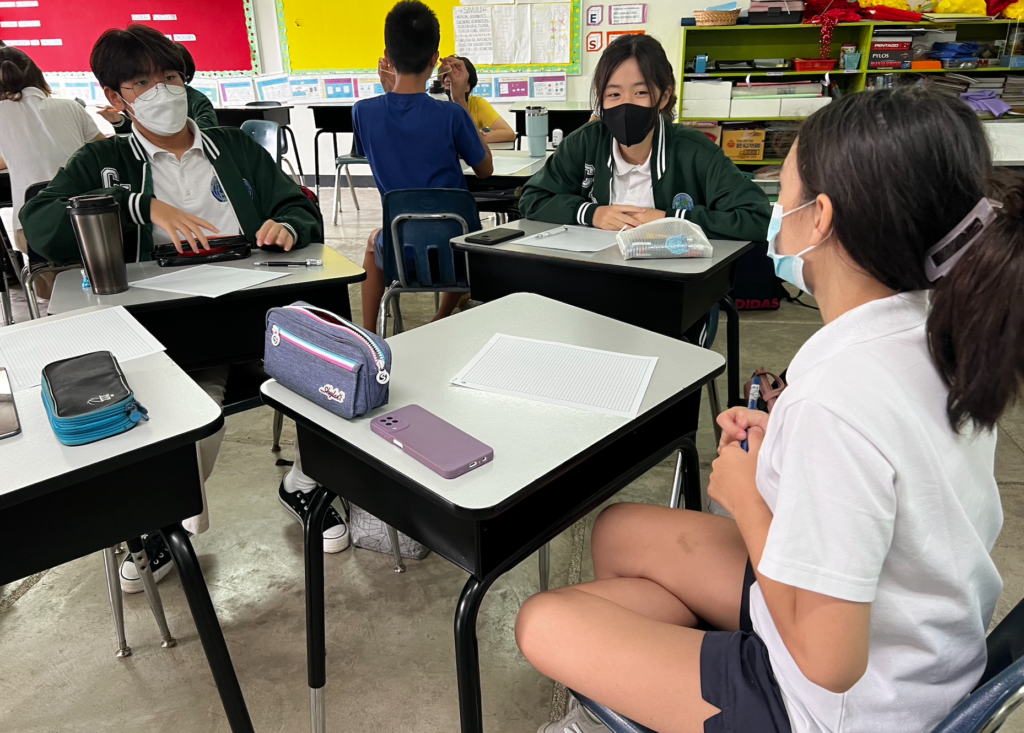
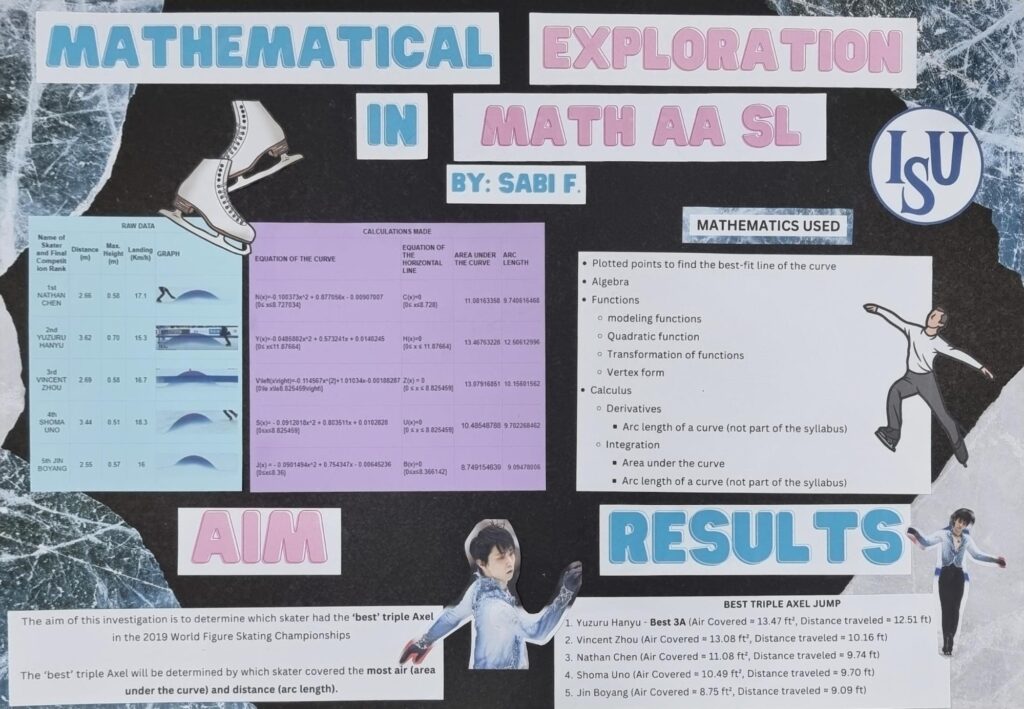 As part of the process, students will be creating posters, like the samples below, to summarize their projects. These posters will be displayed in the canteen annex as part of our STEM Week celebrations from March 6th to the 10th. We want to showcase the work of our grade 12 students as part of STEM Week since this will highlight their achievements in STEM fields. Students will select to create a poster for the Science or Math IA and a few have selected to create multiple posters. The posters will be an excellent opportunity for our students to demonstrate their creativity and showcase their research findings. They will be using graphs, charts, and diagrams to illustrate their data and results, which will help them communicate their ideas effectively. We hope that their engaging posters will inspire the younger students as they look forward to the DP experiences as well.
As part of the process, students will be creating posters, like the samples below, to summarize their projects. These posters will be displayed in the canteen annex as part of our STEM Week celebrations from March 6th to the 10th. We want to showcase the work of our grade 12 students as part of STEM Week since this will highlight their achievements in STEM fields. Students will select to create a poster for the Science or Math IA and a few have selected to create multiple posters. The posters will be an excellent opportunity for our students to demonstrate their creativity and showcase their research findings. They will be using graphs, charts, and diagrams to illustrate their data and results, which will help them communicate their ideas effectively. We hope that their engaging posters will inspire the younger students as they look forward to the DP experiences as well.